Tinubu to Military: We Mustn’t Mortgage Nigeria’s Future to Division, Indifference
Describes
2027: Presidency in Panic Mode, ADC Coalition Alleges
Insists president not governing Nigeria Obi declares he won't buy N150bn jet when people are dying
Zulum dismisses defection rumour, affirms loyalty to APC Ex-police minister, other PDP members
to ADC in large number South-south groups trade tackles over support for ADC

































Susan Rice: US Bombing of Iran’s Nuclear Facilities Strategic Mistake
Dike Onwuamaeze
Former United States National Security Adviser (NSA), Ms. Susan Rice, declared that President Donald Trump’s decision to bomb Iranian nuclear facilities, when diplomacy had not been exhausted, was a strategic mistake.
Rice expressed the view yesterday when she appeared on Fareed Zakari’s GPS programme on CNN alongside another former NSA, Mr. John Bolton, and former Director of the Central Intelligence Agency (CIA), General David Petraeus (rtd). She stated that the US might end up with a nuclear Iran that it never intended due to the recent bombings that foreclosed diplomatic means, which would have enabled inspectors to be on the ground to monitor Iran’s nuclear programme.
Chuks Okocha, Emmanuel Addeh, Folalumi Alaran in Abuja, Michael Olugbode in Maiduguri, Adibe Emenyonu in Benin City and Raheem Akingbolu in Lagos
Nigeria's new political coalition, African Democratic Congress (ADC), yesterday, accused President Bola Tinubu’s administration of being in a panic mode ahead of the 2027 presidential election.
Characterising the government as embarking on “calculated incompetence,” the coalition stated that the administration's sudden reform push was not borne of compassion or policy, but of political panic sparked by the growing influence and credibility of the opposition.
The declaration came as presidential hopeful, Peter Obi, took a swipe at the waste in the Tinubu government, stressing that as a Nigerian leader, he would not buy a N150 billion jet when hundreds of Nigerians were dying.
However, Borno State Governor, Professor Babagana Zulum, dismissed
unwavering commitment to the welfare and operational capacity of the Nigerian Armed Forces, saying his administration would continue investing in modern equipment, intelligence and human capital to ensure officers and personnel of the military are well armed.
He stated that while a country was as strong as the courage of those who defend it, the Nigerian Army had remained the spine of Nigeria's sovereignty for the past 162 years, shaping the course of the nation's history.
"We have no other country but Nigeria, and we must not mortgage her future to division, indifference, or delay," Tinubu said, thanking Chief of Army Staff, Lieutenant General Olufemi Oluyede, for his leadership and efforts to steer the Nigerian Army "with professionalism and foresight”.
Tinubu said, "To the men and women of the Nigerian Army and the armed forces more broadly, I reaffirm my administration's unwavering commitment to your welfare and operational capacity.
"We will continue to invest in modern equipment, in intelligence, and in the human capital that drives your effectiveness. This is not a favour. It
as those with a Gross National Income (GNI) per capita calculated using the World Bank Atlas method of $1,135 or less in 2024. However, the middle income GNI per capita include countries of between $1,136 and $4,495; upper middleincome economies are those with a GNI per capita between $4,496 and $13,935 and high-income economies are those with more than a GNI per capita of $13,935.
The World Bank Group said that its income classifications provide valuable insights into global economic trends and development progress.
Rice said, “I think that resorting to military action when diplomacy has not been exhausted was a strategic mistake. It has long been the objective of every American president, whether Democrat or Republican, to ensure that Iran does not get the nuclear weapon.
“But the reality is that we are back to the point today that only diplomacy and negotiated settlement can ensure the sustainable and verifiable dismantling of Iranian nuclear programme.
“You need inspectors on the ground. You need verifiable constraints that are very significant. You do not achieve that by ripping up the 2015 nuclear agreement and replacing it with nothing.
“Trump had opportunity before military action of using military threat and continuation of sanctions to get potentially a better deal.
speculation in some sections of the online media that he would lead five other governors to defect to ADC. Zulum pledged his loyalty to the ruling All Progressives Congress (APC).
In another development, former Minister of Police Affairs, Hon. Adamu Waziri, allegedly, concluded plans to defect to ADC with a large number of Peoples Democratic Party (PDP) members in Yobe State.
Similarly, the entire structure of Labour Party (LP) in Ogbadibo Local Government Area of Benue State officially dissolved into ADC.
But two South-south groups disagreed over their supports for ADC. While South-South Coalition for Aregbesola declared support for the former Minister of Interior and now National Secretary of ADC, Ogbeni Rauf Aregbesola, South-south Youth Amalgamation (SSYA) voiced reservations against ADC and its new promoters.
Nonetheless, in a statement by the interim National Publicity Secretary of ADC, Mallam Bolaji Abdullahi, the
is a duty owed to those who defend us."
Hailing the theme for this year's Army Day celebration, "Developing the Soldier First Concept: Imperative for Nigerian Army's Transformation Drive," the president observed that the theme was a reflection of both strategy and humanity, just as he said there could be no great army without building strong soldiers.
He stated, "You cannot build a great army without first building strong soldiers. Their welfare, morale, equipment, and sense of purpose are not afterthoughts. They are the bedrock of national security. I commend your commitment to placing the soldier at the centre of reform, and I assure you that this administration stands firmly with you on that path."
Tinubu paid glowing tribute to Nigerian troops for their enduring sacrifice, pointing out that they have made the nation proud by carrying its "flag high on peacekeeping missions across the continent and around the globe", as well as fighting for peace and standing for principle.
He said, "Today, we honour the enduring sacrifice of these men and
“As countries continue to evolve economically, these classifications will remain crucial for shaping development policies and strategies. Policymakers should consider these classifications when designing economic policies and strategies.
“Understanding the factors influencing income classification can guide efforts stimulating economic growth, help manage inflation, and enhance integration into the global economy,” it said.
Nigeria was also listed among countries in fragile and conflict affected situations alongside Yemen, Ukraine, Gaza, West Bank, Sudan,
“Then in 2015 we lost that opportunity and as a result we do not know, and may not know, as we did in North Korea for many years.
“If Iran goes under ground with Russia to try to create a security device that is more sophisticated, we may end up inevitably with the outcome that we have long worked to prevent.”
Rice also contended that the bombing of Iran by Israel and the US might have achieve the unintended consequences of weakening internally driven regime change by galvanising the domestic opposition groups in Iran around national identity.
She said, “I am sceptical that the population will successfully overthrow the regime any time soon. Ironically, Israel and the United States bombing Iran may have the unintended consequences because there is quite a little of evidence that main
party challenged the recent disclosure by Special Adviser to the President on Information and Strategy, Mr. Bayo Onanuga, that the government planned to remove bottlenecks to food security and export.
Abdullahi wondered why it took the emergence of the coalition to make the Tinubu government start thinking of how to make food available to the Nigerian people.
The party stated that without the pressure mounted on the government with the successful unveiling of the opposition coalition last week, the government would have persisted in its calculated indifference to the plight of the Nigerian people.
ADC said, “On Saturday, when Bayo Onanuga tweeted before the world that, moving forward, all bottlenecks hindering ‘the realisation of the Tinubu administration’s potential’ would be removed to enable food sovereignty and export, he didn’t just issue a statement, he issued a confession.
“A confession that this government
women. We honour those who have paid the supreme price. And we honour those who continue to wear the uniform, who continue to stand at the gates of our democracy, shielding us from those who would tear it down."
Acknowledging the security challenges threatening the country's peace and unity, including terrorism, insurgency, banditry, and separatist agitations, the president stated that they were not mere security threats but existential ones.
He charged Nigerian troops to rise to the occasion, assuring them of his absolute authorisation and the trust of Nigerians in confronting and defeating the agents of terror.
Tinubu stated, "And let it be said plainly: these evils do not discriminate by tribe or faith. They destroy churches and mosques alike. They abduct children without asking where they worship. Therefore, our response must be united, firm, and uncompromising.
"To the officers and soldiers of the Nigerian Army, I say this with clarity: the time to rise is now. You have my full authorisation and the trust of the Nigerian people to confront and defeat
South Sudan, Somalia, Syria, Niger, Burkina Faso and Afghanistan among others. However, Nigeria was not included in the list of heavily indebted poor countries, which included Rwanda, Ghana, Gambia, Liberia amongst others.
The World Bank said that the shifts in income classification varied significantly across regions, with for instance, 26 per cent of countries in East Asia and Pacific being low-income in 1987 , but by 2024, only 3.0 per cent remained in this category.
Europe and Central Asia had no low-income countries in both 1987 and 2024, although they had a slight
regime’s opponents are among the most outspoken when the country was bombed, not to rally round the regime but to rally round the country around their national identity.”
Rice also pointed out that Trump’s antagonistic tariff rates on both allies and enemies might have enormously impeded US stature as a global super power.
She said, “We are seeing a president that is systematically shrinking us from a global super power to potentially just a regionally great power”, where the country was in the 19th century.
“This is exceedingly dangerous,” she stated, adding that “withdrawing our global presence through the USAID is not just a humanitarian disaster which is going to cost hundreds of thousands and millions of lives.
“It is a strategic disaster because the assistance that we have been providing
had, by design, been sitting on its hands while Nigerians starved. Now, under mounting political pressure, they want applause for doing the bare minimum? This is not reform. This is not leadership. This is a scramble for survival by an administration that has been cornered by its own failures.
“Let us make one thing clear, it took the emergence of the ADC and the growing momentum of a united opposition to push this government into action. It wasn’t the hunger of hundreds of millions of Nigerians that moved them, it was fear. Fear of the 2027 elections.
Fear that Nigerians have woken up. Fear that, with a united opposition, 2027 will be a clearcut election between the APC and the Nigerian people.
“Make no mistake, the APC has been deliberately weaponising poverty. After Bayo Onanuga’s statement that they would no longer delay in removing bottlenecks that had hindered food security, the only conclusion possible from that statement is that the government had deliberately sat on its
those who seek to undermine our nation. You have my confidence, my support, and my prayers. And I know that you have the resolve to prevail."
Further eulogising the nation's fallen heroes, Tinubu said some of them "now lie in silence beneath the soil of a grateful nation", while others still nurse "the wounds of war as living reminders of the sacrifices made in our name".
The president extended the country's deepest sympathy to the families they left behind, and promised that their memory will remain for generations to come, as their blood was not spilled in vain.
"And to those who remain in service, I urge you to press on with honour, guided by our constitution and by the principles of international law. Your strength must remain disciplined, your courage must remain anchored in justice, and your mission must remain rooted in the values that define us as a people," he stated.
To all stakeholders working for peace and national security across the country, Tinubu commended them, saying it is not the duty of soldiers alone to work towards nation-building, but also the
decrease in high-income countries from 71 per cent to 69 per cent.
Low-income countries in Latin America and the Caribbean reduced from 2.0 per cent in 1987 to zero in 2024, while high-income countries increased from 9.0 per cent to 46 per cent.
However, low income countries increased from two to three in the Middle East and North Africa while high-income countries rose to 35 per cent. All countries moved from lowincome in 1987 to lower-middle- and upper-middle-income by 2024 in South Asia.
In Sub-Saharan Africa, low-income
in the health sector and governance in support for human rights and security assistance help to mediate and prevent conflicts; helps to keep Americans healthy and protected from infectious diseases that can span the planet earth, which we have learnt the hard way with devastating consequences”.
Rice said, “And when we withdraw and allow millions to die, we are not only creating great anger and animosity toward the United States. We are creating a vacuum into which China is eagerly deploying. And that sets us back in very substantial ways.”
Bolton, who was NSA during Trump’s first term, stated that Trump’s tariff war was shredding decades of America’s efforts to build credibility and good faith, which would be very hard to get back.
He, however, stated that Trump
hands and watched Nigerians starve in the last two years.
“Nigerians must all begin to ask the Tinubu government the obvious questions.”
The statement questioned why the bottlenecks Onanuga alluded to in his press statement could not be removed earlier while millions went hungry and businesses collapsed.
It wondered, “Was it so they could stage a last-minute, propaganda-driven performance closer to the 2027 elections?
This is a pattern. This is a strategy. This is not a government reacting to an urgent national crisis, it is a political machine managing optics. Every move they have made has been about political calculation ahead of 2027. Nigerians, shine your eyes.”
ADC maintained that the president was not governing, stressing that he is campaigning, two years early because he knows he is in trouble.
The statement added, “He knows Nigerians have had enough. And the worst part. He is risking the country’s
responsibility of all citizens, leaders, and institutions to do so.
Earlier, the Chief of Army Staff said in the course of more than a century and a half, the Nigerian Army had experienced substantial transformation in its organisational structure and equipment.
Oluyede added that over the years, the enduring tradition in the army’s history was the steadfast spirit and unwavering commitment to sacrifice of Nigerian soldiers.
He stated that the Nigerian Army of today was not only resilient but also armed with modern and state-of-the-art equipment, platforms and capabilities to confront as well as deter any threat to the country.
Oluyede urged field commanders to be bold, strong, ingenious and audacious, stressing that every operation must be geared towards one clear objective: the nation's success.
He stated, "While we may be uncertain about what the future holds, we are certain of our capabilities in the present. Therefore, we shall use the latter as the strength to prepare for the uncertainties of tomorrow.
countries decreased from 75 per cent to 45 per cent, with only one country, Seychelles, reaching high-income status.
The updated country income classifications for FY26, based on the Atlas GNI per capita of 2024, revealed shifts due to changes in Atlas GNI per capita and classification thresholds. “These thresholds are adjusted annually for inflation using the Special Drawing Rights (SDR) deflator. Often the thresholds go up with this adjustment, however occasionally, including this year, the thresholds have moved down slightly due to the appreciation of the U.S. dollar vs. other currencies,” the World Bank added.
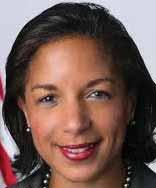
seized the right moment to bomb and finish up the Iranian nuclear programme.
Bolton also said the regime in Iran should be overthrown by the people of Iran for Middle East’s long-term peace.
He stated, “I think this is doable, for the regime is weaker than any point since 1979. I think that we will never have the opportunity this good to remove not just the nuclear programme but Iranian support for terrorism that dates back to 1979 when they seized our embassy employees and then went downhill from there.”
future, all in the name of his re-election bid.
“Onanuga’s declaration is not about food security or economic diplomacy, this is about politics and 2027.”
ADC called on Nigerians not to be swayed by choreographed press releases and sudden awakenings, insisting, “This is not governance. This is desperation.”
Obi: As Nigerian Leader, I Won't Buy N150bn Jet While People Die of Hunger
Obi condemned the wastage in the Tinubu government, stressing that as a Nigerian leader, he would not buy a N150 billion jet when hundreds of Nigerians died of hunger. Obi, who spoke on Channels Television last night, reiterated that he would not borrow for consumption, as it was being done under the current administration. He urged the government
"As we continue to defend the territorial integrity of Nigeria, we have heightened the concentration of personnel on professionalism. To this end I enjoin our law-abiding citizens, especially those living within proximity of our areas of operation to understand that our deployment and activities are designed to protect, defend and not to oppress them."
Oluyede expressed the Nigerian Army's gratitude to Tinubu for his strategic guidance and unwavering support to the army, saying, "Your presence in our midst today did not only add colour and glamour to the celebration but has also emphatically demonstrated your collective support for us."
The event, attended by prominent Nigerians, members of the diplomatic corps, and traditional rulers, featured military parades, tactical drills, and an exhibition of advanced hardware.
Among the dignitaries present were former Head of State, Gen. Yakubu Gowon; Governor Uba Sani of Kaduna State; Minister of Defence, Mohammed Abubakar; and Minister of State for Defence, Bello Matawalle.
Namibia was the only country whose classification moved downward this year, from the “upper-middle income” to the “lower-middle income” category.
In 2024, Namibia’s Gross Domestic Product (GDP) grew 3.7 per cent, a 0.7-point deceleration from 2023, while inflation based on the GDP deflator slowed from 6.6 per cent in 2023 to 3.3 per cent in 2024. One of the main factors behind the slower GDP growth was a sharp deceleration in mining and quarrying, for which growth went from +19.3 per cent in 2023 to -1.2 per cent in 2024 due to weak demand for diamonds.

OPENING CEREMONY OF LAGOS STATE–AFREXIMBANK ACCELERATOR FOR SMES...
Bad Roads: House Commits to FERMA’s
5% User Charge on Petroleum Products
Dangiwa says housing ministry will be performance-driven
The House of Representatives has reaffirmed its commitment to ensuring the full implementation of the 5 per cent user charge on petroleum products as stipulated under the Federal Roads Maintenance Agency (FERMA) Act, 2007.
The House emphasised that enforcing this provision remains a priority for the 10th Assembly as part of its efforts to address Nigeria’s critical road infrastructure needs, a statement by FERMA's Director, Information and Public Relations, Maryam Sanusi, stated.
This commitment, according to the statement, was made during a technical meeting convened by the
ad-hoc committee investigating the collection and remittance of the 5 per cent user charge.
The meeting had in attendance the management team of FERMA and other relevant stakeholders in the petroleum and road sectors, the statement added.
In his remarks, Chairman of the Ad-hoc Committee, Hon. Francis Waive, clarified that the implementation of the user charge was not intended to increase the pump price of petroleum products, but rather to ensure sustainable road maintenance nationwide for the benefit of all Nigerians, including the petroleum industry.
To fast-track this process, the committee announced the
constitution of two sub-committees comprising representatives from FERMA, the Nigerian Midstream and Downstream Petroleum Regulatory Authority (NMDPRA), the Independent Petroleum Marketers Association of Nigeria (IPMAN), the Petroleum Products Retail Outlets Owners Association of Nigeria (PETROAN), the Nigeria Revenue Service (NRS), and other key stakeholders.
Waive charged the sub-committee members to submit practical, realistic recommendations that go beyond paperwork, stressing that actionable outcomes were crucial for national development and the welfare of Nigerian road users.
The inauguration of the sub-
committees is scheduled to hold on Tuesday, July 8, 2025, FERMA added.
The House of Representatives said it remains resolute in its drive to ensure transparency and accountability in the collection and utilisation of the 5 per cent user charge, with the ultimate goal of rehabilitating and maintaining roads across the country.
Meanwhile, the Ministry of Housing has carried out its 2025 Performance Contracts for Directors and Heads of Units of the ministry during a retreat with the theme: “Accelerating Service Delivery through Performance Contracting and Strategic Alignment with the Renewed Hope Agenda.”
NDPC Fines Multichoice N766m for Breach of Subscribers' Data Privacy
Oghenevwede Ohwovoriole in Abuja
National Data Protection Commission (NDPC) has fined Multichoice Nigeria N766, 242,500 for violation of subscribers' data privacy under the National Data Protection Act (NDPA). This was contained in a press statement issued yesterday by Head, Legal, Enforcement and Regulations, NDPC, Babatunde Bamigboye.
The statement said, "The Nigeria Data Protection Commission (NDPC) has fined Multichoice Nigeria the sum of N766,242,500 (Seven-Hundred-and-Sixty-SixMillion-Two-Hundred-and-Forty-
Two-Thousand-Five-Hundred Naira) for violating the Nigeria Data Protection Act (NDP Act).
"The investigation, which commenced in the second quarter of 2024, was triggered by suspected breach of privacy rights of Multichoice subscribers and illegal cross-border transfer of personal data of Nigerians. NDPC found, among others, that Multichoice violated the data privacy rights of subscribers and their friends who are not necessarily subscribers.
"The commission also found that Multichoice carries out illegal cross-border transfer of personal data relating to data subjects in Nigeria.”
NDPCsaid, "The depth of data
processing by Multichoice is patently intrusive, unfair, unnecessary and disproportionate. This is a grave affront to fundamental right to privacy as enshrined in section 37 of the 1999 Constitution of the Federal Republic of Nigeria.
"Nigeria is entitled to protect her citizens, and data sovereignty under both international and extant municipal laws – as these have far-reaching implication for rule of law, national security and economic growth."
The statement added, "In line with its standard remediation procedure, the commission directed Multichoice to carry out appropriate remedial measures.
"However, the commission found the measures undertaken by Multichoice in this regard unsatisfactory. For want of cooperation, the commission has directed Multichoice to pay N766,242,500 for violating the Nigeria Data Protection Act."
NDPC stated that in view of the foregoing, its National Commissioner, Dr. Vincent Olatunji, had directed that all outlets through which Multichoice was collecting the personal data of Nigerian citizens should be investigated for non-compliance.
"Any outlet that processes personal data in violation of the NDP Act is liable to penalty under the Act," the statement said.
NEMA Conducts Flood Simulation Exercise in Kano to Mitigate Emergency Impact
Emmanuel Addeh in Abuja
In furtherance of renewed efforts to mitigate the impact of flooding across the country, the National Emergency Management Agency (NEMA) has conducted a full-scale simulation exercise aimed at raising awareness on flood hazards.
A statement yesterday by Head, NEMA Press Unit, Manzo Ezekiel, said the organisation also clarified
the roles of communities and stakeholders in responding to the 2025 flood prediction, particularly in parts of Kano and the adjoining states of Jigawa and Yobe.
The simulation exercise, codenamed “Ex-Ceton Rayuka,” was held at the weekend, along the riverside in Wudil, Kano State. It was designed to test multi-level response mechanisms and interagency coordination in the event
of a flood scenario arising from potential water releases from the Tiga, Challawa, and Bagauda Dams—that could significantly affect downstream communities across several Local Government Areas in Kano, Jigawa, and Yobe States.
The Director General of NEMA, Mrs. Zubaida Umar, who personally led the exercise, emphasised that it formed part of NEMA’s broader preparedness strategy to strengthen
coordination, communication, and clearly define roles among stakeholders for a more efficient and proactive flood response.
“As we all know, flooding remains one of the most recurrent and devastating natural disasters in Nigeria, with far-reaching impacts on lives, livelihoods, infrastructure, and entire communities. The recent flood incident in Mokwa, Niger State, is a stark reminder of this threat.
Minister of Housing and Urban Development, Ahmed Dangiwa, who declared open the retreat, said he was committed to leading a performance-driven ministry that is focused on delivering real value to Nigerians, describing the gathering as a strategic leadership forum and not just a routine administrative exercise.
He stated that it was a crucial opportunity to align the ministry’s leadership with its core mandate of translating policies into measurable outcomes, in line with President Bola Tinubu’s agenda.
Dangiwa reaffirmed the
importance of performance management in the current context of heightened public expectations and presidential oversight, pointing out that the Presidential Performance Bond signed by all ministers was a binding commitment to the Nigerian people, monitored through scorecards and dashboards developed by the Central Delivery Coordinating Unit (CDCU).
He urged for full Implementation of a Results-Based Performance Management System (PMS), highlighting some of the 2025 deliverables of the ministry
Renewed Hope Agenda: Ex-agitators Applaud Tinubu for Supporting Ogbuku's Niger Delta Vision
Blessing Ibunge in Port Harcourt
Niger Delta ex-agitators have hailed President Bola Tinubu for choosing to support the Managing Director, Niger Delta Development Commission (NDDC), Dr Samuel Ogbuku's vision, which they said was in line with the federal government's Renewed Hope Agenda for the region.
The ex-agitators also lauded the president for ignoring campaigns of calumny sponsored by some alleged enemies of the region to derail the vision of the NDDC boss.
The pioneer Secretary, First Phase Ex-Agitators, Nature Dumale Kieghe, said Ogbuku's administration initiated and executed the Light-Up Niger Delta Project designed to renew the hope of rural dwellers including aged mothers, fathers and grandparents.
Kieghe who is also the immediate past Chairman of the Presidential Amnesty Communication Committee, said Ogbuku was also renewing the hope of the youths in the region through massive youth empowerment programmes including its newly launched Youth Internship Scheme in which 10,000 youths were being paid N50,000 monthly stipends.
He further observed that under Ogbuku the NDDC had approached the infrastructural needs of the region with dexterity speeding up the completion and inauguration of many life-changing projects such as the Ogbia-Nembe Road, electricity, school, health projects as well skill acquisition centers across the region.
He said the region was also happy that Ogbuku was connecting many displaced communities by various road infrastructures in the spirit of the Renewed Hope Agenda, describing the
determination of Ogbuku and the board to complete the Bonny Ring Road and bridges as legendary. He said Ogbuku had also renewed the hope of NDDC workers and other stakeholders of the commission by providing befitting and comfortable accommodations and offices in many member states.
Kieghe said: "As critical stakeholders, we want to appreciate Mr. President for not listening to the enemies of Niger Delta region, who wanted to stop the vision of our leader and brother, Dr. Sam Ogbuku, the CEO of NDDC.
"Today we have proved those Niger Delta people, who felt that he had no plan for the region wrong. We have proved those who felt that Ogbuku was not capable of delivering the vision of NDDC to the Niger Delta people wrong. Just take Ogbuku's project to light up Niger Delta for example. Nearly every community in Niger Delta region today has a solar light in their area and this initiative has brought so much joy to the communities.
Kieghe further said: "This is one project in the history of NDDC that has addressed the needs of our aged mothers, brothers and sisters at the rural areas that don't even know where NDDC office is located. This needs assessment has provided light for them and today they identify with what the NDDC is doing in the region.
"Mr. President, we thank you for listening to us not to allow anybody convince you to stop the vision of Ogbuku. Through him we have the skill acquisition programmes. One of them the Youth Internship Scheme is paying stipends to 10,000 youths monthly.

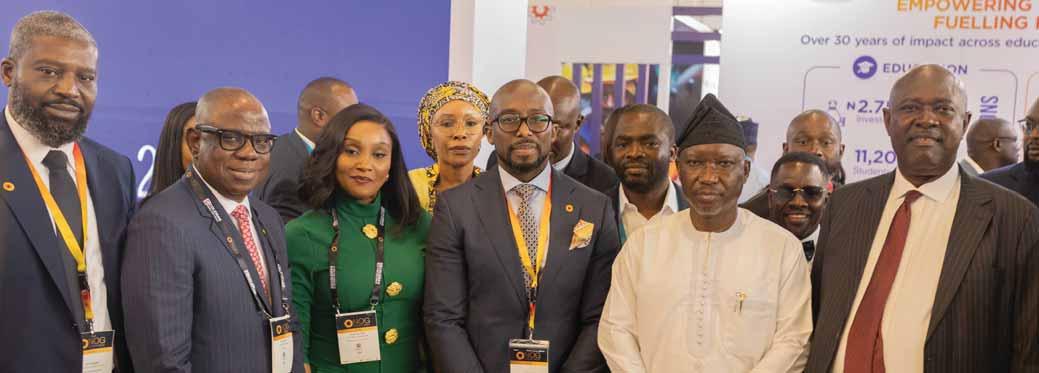
OANDO EXHIBITION BOOTH AT NOG ENERGY WEEK...
L-R- General Manager, Security, Government & External Relations, Oando Energy Resources (OER), Kofo Olagunju; Group Chief Executive Officer (GCEO), NNPC Limited, Bashir Bayo Ojulari; Senior Special Advisor, Communications, Federal Ministry of Trade, Industry and Investment, Ifeoma Williams; Managing Director, Oando Energy Resources (OER), Dr Ainojie ‘Alex’ Irune; Honourable Minister of State for Petroleum Resources (Gas), Rt. Hon. (Obongemem) Ekperikpe Ekpo; and Honourable Minister of State for Petroleum Resources (Oil), Senator Heineken Lokpobiri, at the Oando exhibition booth during the recently concluded NOG Energy Week in Abuja ... recently
Oil Sector Players List Capital, Infrastructure, Integration as Keys to Unlocking Nigeria's Resources
Emmanuel Addeh in Abuja and Peter Uzoho in Lagos
Seplat Energy Plc, Shell Nigeria Gas (SNG) and Nigeria LNG have listed access to capital, integration as well as infrastructure as critical to unlocking Nigeria's oil and gas resources.
Chief Executive Officer, Seplat Energy, Roger Brown, SNG Managing Director, Ralph Gbobo and NLNG’s Managing Director, Philip Mshelbila, spoke in separate sessions at the just concluded NOG Energy Week Conference in Abuja.
Brown stated that currently the sector is thriving and full of incredible talents, which are committed to delivering value and boosting the fortunes of operators and the country at large.
He added: “For us at Seplat Energy, when we completed the Mobil Producing Nigeria Unlimited (MPNU) acquisition last year, we were ready for it. This consolidates the fact that we are here for the long term. The assets are prolific in oil and gas,
and we will continue to develop and optimise these resources.”
Also commenting on the availability of capital to develop the assets, Brown said: “When we look at capital, we consider as many forms of capital that could be accessed. For us, capital is treated as a partner, and in that partnership, everything is told and nothing is held back. It is full disclosure for us. Hence, capital access has been very critical to our success as a company.”
The Seplat Energy CEO alluded to the prevailing situation where capital has become increasingly harder to access, but maintained that stability in business and business spheres will continue to attract capital.
“Beyond committing funds to acquire assets, sufficient money should be set aside to develop the acquired assets. Seplat Energy has been able to redeploy capital and optimise growth of the business. There is indeed capital to develop these assets that were acquired and indigenous energy companies would
Katsina Gov Vows to Revive Cotton Production
many farmers across the state from cultivating cotton in the state.
Governor Dikko Umaru Radda of Katsina State has promised to revive cotton production by providing improved seeds and creating a conducive environment for farmers in the state.
Radda revealed this when he received the Director-General of the National Biotechnology Research and Development Agency (NBRDA), Prof. Abdullahi Mustapha, at the Katsina Government House, Sunday.
Mustapha's delegation was in Katsina to formalize a strategic partnership agreement with Dar Al-Halal Animal Farm, led by its Chairman, Alhaji Muhammadu Dikko Ladan, who accompanied Prof. Mustapha to the Government House.
But Radda said: “Our administration is committed to reviving cotton production in Katsina State by providing improved seeds and creating a conducive environment for our farmers.”
He, however, attributed the decline in cotton production in the state to low-quality seeds, adding the challenge has deterred
The governor explained the inability of the farmers to cultivate cotton in the state due to lack of quality or improved seeds, has resulted in significant reduction in yields.
Radda however said his government is investing heavily in agricultural initiatives, including the distribution of fertilizers and other necessary inputs to support farmers across the 34 local government areas of the state.
He stressed that agriculture remains the most effective means of improving the livelihoods of the citizens, reiterating his administration’s readiness to partner with the private sector to boost cotton production in the state.
He called on the NBRDA to collaborate with the state Ministry of Agriculture and Livestock Development to develop a comprehensive plan for the partnership.
Earlier, Mustapha outlined the agency's vision and its role in advancing Nigeria's socio-economic development through innovative research in biotechnology.
continue to demonstrate this,” he said.
In its remarks at the three-day event, Nigeria’s premier gas distribution company, SNG identified development of infrastructure and regulatory and fiscal stability as key drivers for the development of Nigeria’s gas resources.
“Major investments are required to develop large-scale infrastructure along the gas value chain (pipelines, gas processing plants, gas distribution networks) as well as human capacity development,” SNG’s Gbobo said.
A stable and transparent regulatory and fiscal regime is also essential to creating a predictable and secure operating environment which enhances investor confidence, he said, stressing the need for deployment of technology to enhance “the efficiency, sustainability
and growth of the domestic gas sector.”
He said: “Technology-driven advancements such as remote data gathering systems, remote monitoring, real-time data analytics, digital solutions, autonomous operations systems, smart metering and monitoring, predictive analytics systems will play a significant role in improving the efficiency, sustainability and growth of the domestic gas sector, and enhancing its attractiveness to investors.”
Commenting on the operations of SNG, he said the company, which was established in 1998, is developing new gas distribution networks in Oyo and Bayelsa states, while also expanding its systems to cater for more industries in Ogun, Rivers and Abia states.
He said the milestones recorded by Shell proved the value of partnerships and collaboration towards the development of Nigeria’s gas resources, as this can “aggregate investment capital, facilitate knowledge transfer and capacity building, enhance skills and build expertise, significantly enhancing Nigeria’s domestic gas sector.”
Also, NLNG said that natural gas holds the key to accelerating Africa’s and Nigeria’s development, but only if stakeholders across the value chain embrace a culture of performance and integration to drive real, measurable results.
Speaking at a strategic panel discussion session titled “Accelerating Gas Development for Domestic and Global Energy Needs” during the
24th annual edition of the NOG Energy Week 2025 in Abuja, NLNG’s Managing Director, Mshelbila, underscored the pivotal role of gas in the evolving global energy mix and highlighted the urgent need to build a performance-driven, collaborative ecosystem that can unlock Nigeria’s vast gas potential.
“Nigeria has abundant gas reserves, but having gas is only the beginning. You must be able to find it, produce it economically, transport it to where it will be liquefied, and then ensure there’s a complete value chain to support delivery. That’s what it takes to make LNG work,” he said. He emphasised that performance, not rhetoric, is what will shape the global perception of Nigeria’s gas sector.
Dantata: Northern Govs' Forum Delegation, Atiku, Zulum, Others Pay Condolence Visit to Family in Kano
Segun Awofadeji in Gombe and Ahmad Sorondinki in Kano.
Chairman of Northern State Governors' Forum (NSGF) and Governor of Gombe State, Alhaji Muhammadu Yahaya, led a delegation on a condolence visit to the family of the late business mogul and philanthropist, Alhaji Aminu Alhassan Dantata, in Kano.
Former Vice President, Alhaji Atiku Abubakar; Borno State Governor, Professor Babagana Zulum; and former Minister of Justice and Attorney General of the Federation, Abubakar Malami (SAN), also paid separate condolence visits to Governor Abba Yusuf of Kano State and the family of the late Dantata.
During a courtesy call at the weekend, Atiku described the late Dantata as a remarkable philanthropist and humble
businessman, whose quiet acts of generosity had transformed countless lives, especially in education, healthcare, and community development.
Zulum praised the elder statesman, saying his dedication to societal progress and economic empowerment would serve as an enduring inspiration to current and future generations.
Similarly, Malami emphasised that the late Dantata was not merely a successful entrepreneur but also a national icon whose legacy embodied integrity, modesty, and commitment to humanity.
The governor’s spokesperson, Sanusi Bature, said Yusuf expressed profound gratitude for the visits, stating that the show of solidarity by such respected national figures brought great comfort to the government and people of Kano State during this difficult time.
He assured that the state government would continue to uphold and promote the values and ideals that the late Dantata represented throughout his life.
Yahaya was received by the eldest son of the deceased, Alhaji Tajdeen Aminu Dantata, alongside elder statesman, Alhaji Sani Zangon Daura, and other members of the Dantata family at the family residence in Koki, Kano. This was contained in a press release issued by Director-General (Press Affairs), Government House, Gombe, Ismaila Uba Misilli, which was made available to journalists at the weekend.
While delivering his condolences, Yahaya described the late scion of the legendary Dantata dynasty as a deeply respected elder statesman and a generous philanthropist, whose contributions to commerce, education and humanitarian causes had left an indelible mark not only
in the north, but also across the country. He stated, "On behalf of the Northern States Governors' Forum, the government and people of Gombe State, I extend our deepest sympathies to the Dantata family. We have lost a pillar of integrity, industry, and humility. His life was one of service, generosity, and commitment to the progress of Nigeria."
Special prayers were offered during the visit, seeking Allah’s mercy, forgiveness and eternal rest for the departed elder statesman in Aljannatul Firdaus. Yahaya was accompanied on the condolence visit by an entourage comprising prominent dignitaries, including Arch. Yunusa Yakubu, Dr. Jamilu Gwamna, Alhaji Musa Garba, the Commissioner for Finance and Economic Development, Muhammad Gambo Magaji, and other senior government officials.
Sunbeth Strikes Deal with Dangote Refinery for Distribution of Petroleum Products
Peter Uzoho
Sunbeth Energies Limited, a prominent oil and gas downstream player has signed a landmark agreement with Dangote Petroleum Refinery & Petrochemicals for the purchase and nationwide distribution of refined petroleum products.
Sunbeth announced this in a statement issued yesterday, saying the milestone makes it one of a few downstream companies to secure such a partnership with the Aliko
Dangote-owned refinery, positioning the company among the most trusted energy distributors in Nigeria.
The company added that the deal marks a significant leap for a company just under two years old, signaling both operational credibility and long-term ambition.
“This partnership with Dangote Refinery is not just a deal, it’s a signal. It signals our continued drive to contribute meaningfully to Nigeria’s energy security and long-term economic value.
"At Sunbeth Energies, we are building
for the future, a resilient and responsive supply system that delivers with consistency, earns trust, and serves both industries and communities nationwide.
"This collaboration strengthens our alignment with national development priorities and expands our capacity to adapt and lead in an energy market that is evolving fast and demanding more", Managing Director of Sunbeth Energies, Lateef Abioye, said.
Through the partnership, according to the statement, Sunbeth Energies will distribute Dangote-refined petroleum
products across its service stations nationwide, ensuring availability, reducing supply chain inefficiencies, and enhancing consumer trust.
Head of Retail Sales at Sunbeth Energies, Victoria Awoniyi, added:
“This partnership represents another important step in strengthening our ability to serve the market at scale. It expands the flexibility of our supply network and supports our ongoing efforts to deliver timely, dependable energy solutions to customers across Nigeria.
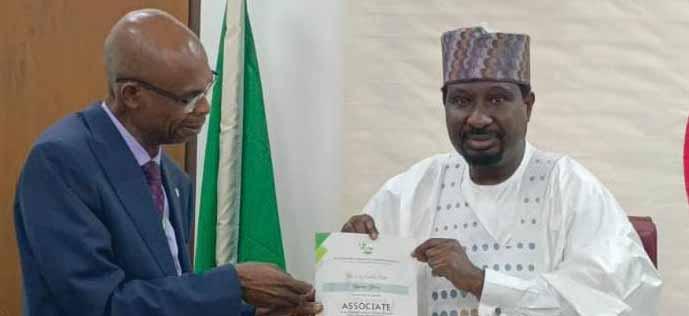
BARAU EMERGES CITN ASSOCIATE MEMBER...
L-R: The President of the Chartered Institute of Taxation of Nigeria (CITN), Mr. Innocent Ohagwa, presents to the Deputy President of the Senate, Senator Barau I. Jibrin, a certificate of admittance as an associate of the institute at the National Assembly, Abuja… recently
FG Moves to End Low Quality Solar Equipment
Use, Gets Testing Devices from Huawei
Emmanuel Addeh in Abuja
Nigeria moved to curb the deployment of substandard equipment in the renewables segment of the power sector at the weekend, with the Rural Electrification Agency (REA) receiving devices from Chinese Company, Huawei, to test the authenticity of products, both local and imported.
At a brief handover ceremony in Abuja, the Chief Executive of the REA, Abba Aliyu, reiterated the role played by President Bola Tinubu, following his recent visit to China, stressing that the equipment will help reduce cases of low quality materials in Nigeria's renewable energy drive.
He stated that sometime in September 2024, the President visited China, explaining that the event was part of the results of the China-Africa initiative, which saw the signing of a Memorandum of Understanding (MoU) at the time.
The MoU, he said, was signed to enable Huawei to support the agency in developing a world-class mini-grid standardisation and simulation centre in Abuja.
“I am happy to say that today
we are witnessing the fulfillment of all the commitments signed under that memorandum of understanding. The importance of this mini-bridge standardisation and simulation centre cannot be over-emphasised.
“Nigeria is working towards positioning itself as the renewable hub of Africa. To achieve that, Nigeria would require to catalyse private sector investment in the manufacturing and assembly of all the renewable equipment in the country. But one key thing that may hinder that, is the proliferation of substandard or used equipment that keeps coming into Nigeria.
“Private sector will require the assurance and the confidence that if they put in their money and build a manufacturing outfit in the manufacturing of photovoltaic panels or assembly of that, they would not be competing with people that import second-hand or substandard PV panels.
“ To address that, the REA sought the support of Huawei and the Chinese government for the development of this simulation and standardisation centre. This centre will
Polytechnic Lecturers Threaten to Withdraw Services Over Salary Delays
Onyebuchi Ezigbo in Abuja
Polytechnic teachers under the auspices of Academic Staff Union of Polytechnics (ASUP) have urged the federal government to end the long delays of payment of their salaries and allowances or face withdrawal of service.
The union said it has observed a trend in the delay in payment of staff salaries across federal tertiary institutions in the country in the last eight months.
In a statement signed by ASUP president, Shammah Kpanja, the union warned it may be forced to direct her members to stay away from duty in all affected polytechnics if the situation does not improve in the coming days. He said: "This call is made in the overall interest of the fragile industrial harmony in the tertiary education sector particularly the polytechnics as no trade union will continue to
watch her members go through these harrowing experiences every month as government continues to undermine her contractual obligations to workers at the end of each month.
"Our union may be forced to direct her members to stay away from all affected polytechnics if the situation does not improve in the coming days and sustain same until the salaries are paid; while adopting same pattern at the end of each month going forward."
The statement titled: "Habitual Delay in Payment of Salaries Across Federal Polytechnics in Nigeria", said the delays is likely due to the transition of the tertiary institutions from the IPPIS payment platform to the GIFMIS platform being handled by the Office of the Accountant General of the Federation.
It said: "Our Union has observed a trend in the delay in payment of staff salaries across Federal Tertiary Institutions in the country in the last eight months.
help REA to sieve out all substandard and second-hand equipment, be it the PV panels or batteries,” Aliyu added.
He listed some of the 18 equipment donated by Huawei as: Power analyser, multimeter , electronic load, AFCI generator, DC power, pyranometer, handler pyranometer, battery analyser, micrometer, screw gauge, barrier caliper, tool kit, computers, idea hub, and printers, among others.
According to him, some of the
equipment that Huawei provided to REA were first of their kind in the country, showing the level of commitment Huawei and the Chinese government have towards supporting REA to address the electricity access challenge in Nigeria.
“What we are going to use this testing and simulation centre for is for us to certify the vendors that we will be using. The country is experiencing an influx of substandard or used equipment. We need to get rid of
that for us to catalyse investment into the country.
“ So, we are going to use this testing and simulation centre to certify vendors that have met the standard of REA for us to continue to buy their equipment and make use of it in the country. That is one. We are also going to use this to ensure the sustainability of our mini-grids infrastructure across the country,” Aliyu added.
In his remarks, the Board Director,
Huawei Nigeria, Zhang Jing, stated that the mini grids systems will help improve Nigeria's power infrastructure, ensuring renewable energy across the country are reliable and efficient.
“They have been designed to handle different environmental challenges and withstand extreme weather conditions. Huawei is very delighted to partner with REA on this great initiative and milestone to make Nigeria have a more sustainable and secure energy future,” he stated.
Independent Oil Producers Laud Tinubu’s Oil Reforms, Designate Falade New Chair
Emmanuel Addeh in Abuja
The outgoing Chairman of the Independent Petroleum Producers Group (IPPG) Mr. Abdulrazaq Isa, has hailed the significant progress made in Nigeria’s oil and gas sector since the inauguration of the current administration in 2023.
In his industry keynote address at the just ended opening ceremony of the 2025 NOG Energy Week in Abuja, Isa, reflecting on the sector’s journey, highlighted the administration’s responsiveness to the industry’s reform wish-list.
He noted that "most of the industry requests have been delivered," a development he described as
"unprecedented."
He credited this success to President Bola Tinubu’s commitment to oil sector reform, particularly the strategic transformation of the Nigerian National Petroleum Company Limited (NNPC) into a commercially driven national oil company.
The IPPG Chairman commended Tinubu for appointing a technically competent leadership team at the NNPC, including the newly appointed Group Chief Executive Officer, Bayo Ojulari.
Isa emphasised that with the conclusion of divestments by International Oil Companies (IOCs), full implementation of the Petroleum Industry Act (PIA), and
fresh leadership across the sector, the industry now stands at a critical turning point.
"The ball is now firmly in our court," he declared, urging industry stakeholders to align with the President’s production target of 3 million barrels of oil and 12 billion cubic feet of gas per day by 2030.
Isa noted that the recently divested onshore and shallow water assets, largely held by IPPG members, would play a central role in achieving these targets. He outlined a call to action for indigenous producers, emphasising the need for structural reforms, increased investment, community engagement, infrastructure expansion, and strengthened collaboration across the sector.
“We must become catalysts for economic transformation, attract strategic investment, and operate with the highest level of social responsibility and governance,” Isa stated.
In a major announcement, Isa revealed that Mr. Adegbite Falade, Group Chief Executive Officer of Aradel Holdings, had been appointed as the next Chairman of the Board of Trustees and Governing Council of IPPG. “Mr. Falade will no doubt build on our legacy and lead IPPG to greater heights,” Isa said.
The effective date of Falade’s appointment is to coincide with IPPG’s 10th Year Anniversary Celebration scheduled for September 11, 2025.
ACPN Seeks More Support for Nigerian Drugs Manufacturers
Onyebuchi Ezigbo in Abuja
The Association of Community Pharmacists of Nigeria (ACPN) has urged the federal government to provide more support for the Nigerian pharmaceutical companies in order to increase access to essential medicines in Nigeria and Africa.
In a statement signed by the National Chairman of ACPN, Pharm. Ezeh Ambrose Igwekamma, the association said government can provide incentives to encourage local manufacturers in the health sector.
“There should be deliberate special incentives for the pharmaceutical industry to aid import of materials and production of pharmaceutical products.
Igwekamma further stated that local manufacturing of pharmaceuticals will also present opportunities for job creation, international trade, economic growth and national security.
“Nigeria needs to position itself in such a way as to maximally benefit from the African Free Trade Continental Area, which is adjudged to be among the largest in the world.”
Ezeh said that local manufacturing would enhance sufficiency, affordable, accessible, good quality, and also reduce the nation’s reliance on imported goods.
ACPN's appeal came ahead of 44th Annual International Conference, scheduled to take place from July 22 to July 27, 2025, in Awka, Anambra State.
This year’s theme, “Technology Integration, Personalized Care: The Future of Community Pharmacy Practice,” highlights the urgent need for community pharmacists to adopt digital technologies, such as
artificial intelligence, telepharmacy, and electronic health records, while embracing personalized pharmaceutical care models. Ezeh said the 2025 ACPN conference is expected to convene over 3,000 delegates, including pharmacists, technologists, researchers, policymakers, and healthcare entrepreneurs from within and outside Nigeria. Key highlights of the conference will include a symbolic walk against fake and counterfeit medicines, technical sessions, innovation showcases, and cultural events.
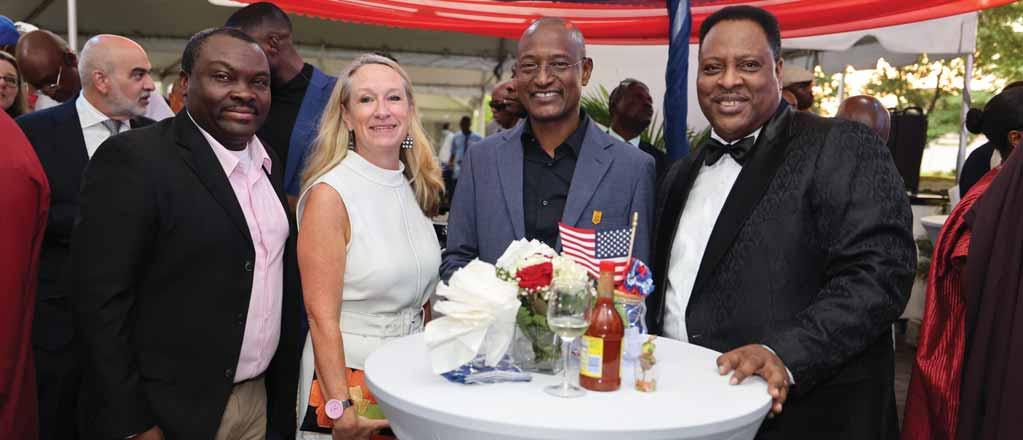
US INDEPENDENCE ANNIVERSARY...
Senate Awaits Certified Judgement Copy Before Action on Natasha Akpoti-Uduaghan's Suspension
Sunday Aborisade in Abuja
The senate, yesterday, said it would not take any immediate action regarding the suspension of Senator Natasha Akpoti-Uduaghan until it received the Certified True Copy (CTC) of last Friday’s judgement by the Federal High Court, Abuja.
The court ruling, delivered on July 4, was in response to a suit filed by Akpoti-Uduaghan challenging her suspension from the red chamber.
In a statement by Chairman of Senate Committee on Media and Public Affairs, Senator Yemi Adaramodu, the upper chamber acknowledged the court's decision,
but maintained that it had not yet been officially served with the full text of the judgement.
Part of the statement read, “Our legal representatives, who were present at the proceedings, confirmed that the complete judgement was not read in open court.
“We have, therefore, formally applied for the Certified True Copy to enable a thorough review and informed determination of the appropriate legal response.”
The senate stressed that until the full judgement was reviewed, particularly any potential directive overturning Akpoti-Uduaghan’s suspension, it would refrain from
any action that could jeopardise its legal standing.
“Since no party to the case has been officially served the enrolled order of the judgement, none can enforce any perceived order or relief,” Adaramodu said in the statement.
He emphasised that the senate remained committed to due process and would act strictly within the provisions of the constitution.
The development came amid growing public interest and political scrutiny surrounding the suspension of Akpoti-Uduaghan, who represents Kogi Central Senatorial District.
Her suspension in May sparked
Report: Nigeria's Social Cohesion Index
The Africa Polling Institute (API) Sunday released its 2025 Nigeria Social Cohesion Survey report, which measured the country's social cohesion index at 46.8% which is below the average threshold of 50%, indicating a weak state of social cohesion in Nigeria, API said.
Key findings indicate low trust in government as 83% of Nigerians have little or no trust in President Bola Ahmed Tinubu's government, while 82% distrust the National Assembly and 79% lack confidence in the judiciary.
The report also added that
despite identity-based differences, Nigerians are united by shared grievances such as inflation, unemployment, and insecurity, with many citing economic hardship and high costs of living.
The report signed by API Executive Director, Prof. Bell Ihua, further revealed that identity indicator shows 53% of Nigerians feel disappointed in Nigeria, while 27% identify more with their ethnicity than with being Nigerian.
"On civic participation, 68% of citizens are willing to sacrifice for the collective good, and 79% are willing to cooperate with fellow citizens from other ethnic groups.
public debate over legislative overreach, rights of elected representatives, and the balance of power between the judiciary and legislature.
Akpoti-Uduaghan, a member of the Peoples Democratic Party (PDP), was controversially suspended in March this year over what the senate described as “unparliamentary conduct”.
The suspension drew criticism from civil society groups and legal experts, who questioned the senate’s authority to bar an elected lawmaker from representing her constituents.
In response, Akpoti-Uduaghan filed a suit before the Federal
Drops to 46.8%
While 61% believe corruption has increased significantly, and 64% rate the government's efforts to tackle corruption as poor."
On gender equity, the report hinted that 71% agree women should lead in politics, corporate entities, and religious organisations, and 73% support equal entitlement to family inheritances.
The API report, however recommends the establishment of a commission to promote unity, trust, and inclusive governance, adding that the Federal Government should forge a new social contract with Nigerians, outlining benefits and responsibilities.
"Nigeria needs a new shared vision and national identity emphasising uniqueness, strength in diversity, and equality before the law."
The report highlights the need for citizen-focused national rebirth, economic empowerment, and civic engagement to rebuild trust and strengthen social cohesion in Nigeria.
Africa Polling Institute (API), with the support of Ford Foundation, conducted the nationwide Citizens Perception Survey (CPS) to measure the state of social cohesion in Nigeria, between the months of January and February 2025.
NSITF Presents Cheques to ECS Beneficiaries in Lagos
The Nigeria Social Insurance Trust Fund (NSITF), has handed over cheques totaling over N33 million to the affected staff at Seplat Energy, Nestle Plc and MedPlus in Lagos as part of their benefits under the Employee Compensation Scheme
According to the statement signed by the NSITF Deputy General Manager Corporate Affairs Alex Mede, a staff of Nestle Plc received a refund of N31 million Naira medical bills from the NSITF while the widow of a deceased
staff of MEDPLUS was presented with a cheque for N1,192,145:25. Mede also said that a cheque of N1,107,660:30 monthly compensation was presented to the family of a staff of the Seplat Energy company who died in the course of duty.
Managing Director of the Fund, Oluwaseun Faleye, who led NSITF team to present the cheques to the beneficiaries said the continuous and prompt payment of claims to beneficiaries of the Employees Compensation Scheme is a demonstration of the Fund's commitment to improved workers
welfare in the country.
Speaking during the presentation at the headquarters of Nestle Plc in Lagos, Faleye commended the company's commitment to workers' welfare and recounted that the benefiting staff was involved in an auto accident along with other colleagues who had all been compensated by the Fund.
He stated that because of the seriousness of the injury sustained by this particular staff, a review became imperative hence the latest payment.
The NSITF MD revealed the family of one of the workers, who
died in the road mishap, had been paid the initial compensation and have started to receive monthly compensation.
He seized the occasion to explain the difference between other insurance policies and the Employees Compensation Scheme of the NSITF, saying the scheme is made mandatory by the Employees Compensation Act 2010.
He said beside compensation for work related deaths, diseases, disabilities and injuries, the fund provides support and rehabilitation.
High Court, seeking to overturn her suspension and reaffirm her constitutional right to legislative participation.
While the court on July 4 reportedly ruled in her favour, details of the judgement, including whether the suspension was expressly nullified, remained unclear.
NDLEA Intercepts Saudi, UK-bound Cocaine in Lipsticks, Property Title Documents
Michael Olugbode in Abuja
Operatives of the National Drug Law Enforcement Agency (NDLEA) have intercepted cocaine consignments concealed in lipsticks and property title documents going to the United Kingdom and Saudi Arabia, respectively.
The spokesman of the NDLEA, Femi Babafemi, in a statement on Sunday, said the illicit drug consignments were recovered from cargos being prepared for shipment at a courier company in Lagos last Thursday by NDLEA officers of the Directorate of Operations and General Investigation (DOGI) attached to the logistics firm.
He disclosed that a total of 420 grammes of cocaine factory-fitted in 84 pieces of female lipsticks heading to the UK were seized, while 280 grammes of the same Class A drug were uncovered in a property title document (Certificate of Occupancy, C of O) being sent to Saudi Arabia.
Babafemi also said a notorious drug kingpin Ajetsibo Emami popularly known as ‘Warri Kinsman’ was on Saturday 28th June arrested in Ikeja Lagos after NDLEA operatives dismantled his drug trafficking network in a three-day operation leading to the arrest of three other suspects.
He said recovered from Emami’s network were 24 jumbo bags containing 681 pouches of Canadian Loud, a strain of cannabis weighing 414.2 kilogrammes, noting that the bust of Emami’s drug ring followed credible intelligence on his attempt to move the shipment to Lekki area of Lagos, from where it will be distributed to other parts of the state and across the country.
He stated that a businessman Ajah Uchenna and his wife Rosemary Uchenna along with their two daughters: Stella Uchenna and
Ngozi Uchenna as well as their family friend Okoro Elijah have been taken into custody after investigation revealed they run a major illicit drug distribution network in Lagos.
He said the couple was first arrested on Friday 13th June by operatives of the Department of State Security (DSS) in Ojo area of the state and transferred to NDLEA along with 277.5 kilogrammes skunk, adding that while they were still being investigated in custody, credible intelligence revealed the family business was going on in his house. He said this led to a raid of their home and a packing store where 231 kilogrammes of same substance were recovered last Tuesday. Three persons arrested during the raid include their two daughters: Ngozi Uchenna and Blessing Uchenna as well as their family friend Okoro Elijah, who were running the family business in the absence of the couple.
NDLEA operatives at the Murtala Muhammed International Airport, Lagos last Wednesday intercepted a frequent flyer Aburemi Hysent who specialises in conveying goods for customers from Nigeria to Italy and vice versa.
He was found to have hidden 7,660 pills of tramadol 225mg and 200mg inside food items packed among other goods he was conveying to Italy. He claimed he was to be paid the sum of 800 euros upon successful delivery of the drug consignment in Italy.
In another interdiction operation at the Lagos Airport, a total of 52 pieces of the travelers’ cheques concealed in children’s books, worth 17,700,000 Australian dollars, going to Malaysia through Istanbul on a Turkish Airlines flight were last Friday intercepted by NDLEA operatives at the export shed of the airport while a freight agent, Bolarinwa Saheed has been arrested.






















NIGERIAN MIDSTREAM AND DOWNSTREAM PETROLEUM REGULATORY AUTHORITY (NMDPRA)
Plot 1012, Cadastral Zone, Central Business District, FCT, Abuja
INVITATION TO TENDER
1.0 INTRODUCTION
The Nigerian Midstream and Downstream Petroleum Regulatory Authority (NMDPRA) is saddled with the statutory mandate of regulating the Midstream and Downstream operations of the Petroleum Industry. To achieve its mandate, the NMDPRA is desirous to procure goods, works and services.
1.1 In compliance with Sections (24)(25) of the Public Procurement Act, 2007 the Authority is therefore inviting experienced and reputable Contractor/Suppliers/ for the following.
2.0 SCOPE /SPECIFICATION
LOTS
DESCRIPTION
Lot Upgrade of Information Technology Network Infrastructure in NMDPRA Head Office.
3.0 ELIGIBILITY REQUIREMENTS
a) Evidence of Incorporation with the Corporate Affairs Commission (CAC).
b) Copy of current TAX Clearance Certificate for the last three (3) Years (2022, 2023 and 2024) valid till 31st December 2025.
c) Copy of current PENCOM compliance certificate valid till 31st December 2025.
d) Copy of current Industrial Trust Fund (ITF) compliance Certificate valid till 31st December 2025.
e) Copy of Interim Registration Report (IRR) with the Bureau of Public Procurement (BPP) valid till 31st December 2025 or valid Certificate issued by BPP.
f) Copy of Nigeria Social Insurance Trust Fund (NSITF) compliance Certificate valid till 31st December 2025.
g) A sworn affidavit disclosing whether or not any officer of the Nigerian Midstream and Downstream Petroleum Regulatory Authority (NMDPRA) or the Bureau of Public Procurement (BPP) is a former or present Director, Shareholder or has pecuniary interest in your company and confirm that all information presented in the bid are true and correct in all particular. For Joint Venture (JV’s), include the Notarized Memorandum of Understanding (MOU)
h) Current Company’s audited account duly stamped and signed by ANAN/ICAN licensed Auditors for the last three consecutive years (2022, 2023 and 2024)
i) Verifiable documentary evidence of at least three (3) similar jobs executed in the last five years (i.e. letters of award, certificates of practical job completion, etc.)
j) Company profile with Curriculum Vitae of key staff including copies of their Academic and Professional Certificates.
k) In addition, the Federal Government Circular Ref No CS.14/T/2014 dated 25th April 2017 mandates all Companies wishing to transact business with the Federal Government to comply with the following requirements:
i. That the Incorporation Number (RC) as issued to the Company by CAC must appear on their Letter Head, with contact telephone numbers, valid e-mail address and official Company address.
ii. That the Letter Head paper must bear the name and the Nationalities of the Directors of the company at the bottom of the page.
l) The hard copies of these documents should follow the order as listed above, appropriately paged and should have a table of content indicating the pages on which these items are to be found.
4.0
SPECIAL INSTRUCTIONS TO BIDDERS
Lot 1
i. Evidence of partnership/Agreement with relevant Original Equipment Manufacturer (OEM).
ii. Evidence of registration for MDOGISP (Midstream and Downstream Oil and Gas Industry Service Permit).
iii. Evidence of Registration/ License with Relevant Information and Communication Technologies Regulators (NITDA, NCC, CPN) in Nigeria.
iv. Average Annual Turnover (AAT) not less than N300,000,000.00 Three Hundred Million Naira only.
5.0 COLLECTION OF
TENDER DOCUMENTS
Interested bidders are to collect tender documents from the Procurement Unit on Ground Floor Wing B of the Authority Headquarters Building between 9:00am – 4:00pm (Monday – Friday) with evidence of payment of a non-refundable tender fee of Twenty Thousand Naira (N20,000.00) only which shall be paid into the Authority’s Treasury Single Account (TSA) domiciled at the Central Bank of Nigeria.
6.0 SUBMISSION OF TENDER DOCUMENTS
Prospective bidders should take note of the following steps for submission of tender documents: -
i. Enclose two (2) copies of the technical bids in a sealed envelope marked ‘’Technical”
ii. Enclose two (2) copies of the financial bids in a sealed envelope clearly marked” Financial”
iii. Enclose both Technical and Financial envelopes into a bigger envelope and write “(Submission of tender) indicating the name of the project.
iv. Furthermore, the name, address and phone number of each company should be written on the front of the envelope after sealing.
v. All Bids should be dropped in the designated tender box at the Procurement Unit on the Ground Floor, Wing B of the Authority Headquarters Building, addressed to: The Authority Chief Executive, Nigerian Midstream and Downstream Petroleum Regulatory Authority (NMDPRA), Plot 1012, Cadastral Zone, C.B.D, Abuja.
7.0 CLOSING DATE
Submission of tender shall end on Monday 28th July 2025 at 12.00 noon.
8.0 OPENING OF TENDER
Tender will be opened immediately after the deadline for submission at 12:00 noon on Monday 28th July 2025 at 12.00 noon at the Procurement Unit on Ground Floor, Wing B of the Authority’s Headquarters Building.
9.0 GENERAL INFORMATION
a) Bids must be in English Language and signed by an official authorized by the bidder.
b) Bids submitted after the deadline for submission would be returned unopened.
c) This invitation for Tender shall not be construed as a commitment on the part of Nigerian Midstream and Downstream Petroleum Regulatory Authority (NMDPRA) nor shall it entitle any company to make any claim whatsoever or seek compensation having responded to the invitation.
d) All expenses incurred in preparing Tenders and all expenses otherwise associated with this exercise shall be borne solely by the prospective bidder.
e) Any Bidder who fails to comply with the instructions shall automatically be disqualified.
f) All pre-qualified bidders will be contacted for financial bid opening, while financial bids of un-successful bidders will be returned unopened.
Signed: Management

Statement to the Nigerian Exchange Limited & Shareholders on








2025 NNPC-SNEPCo

NATIONAL UNIVERSITY SCHOLARSHIP
The Shell Nigeria Exploration and Production Company Limited (SNEPCo) on behalf of itself, Nigerian National Petroleum Company Limited (NNPC) and its co-venture partners hereby invites applications from qualified Nigerian students for the 2025 NNPC - SNEPCo National University Scholarship Programme. The programme aims at promoting academic excellence and improving the skills of young Nigerians. It provides yearly grant to the successful applicants from their second year to the completion of their undergraduate degree programme.
Eligible undergraduate students studying in National Universities Commission (NUC) accredited courses in public Nigerian universities are invited to submit an electronic application at https://candidate.scholastica.ng/schemes/NNPCLTDSNEPCo25.
ELIGIBILITY CRITERIA
Applicant must:
•Be a Nigerian citizen
•Currently be in their second year of full-time study in a public Nigerian University, accredited by the NUC
•Have a minimum CGPA of 3.5 in a 5-grade system or the equivalent in other grade systems; and
•Not be a beneficiary of any other scholarship from an entity in the Oil and Gas industry, National or International
*Female candidates are strongly encouraged to apply
SELECTION CRITERIA
1.Applications must be received not later than the specific deadline via the scholarship portal ONLY.
2.Only candidates that meet the eligibility criteria will be invited for the monitored computer-based test.
3.Only the top 10 candidates will be shortlisted from each of the 36 states and the Federal Capital Territory for academic verification prior to scholarship offer.
4.Candidates with falsified results will be disqualified.
5.Only candidates that have successfully satisfied the above criteria will be contacted to receive the scholarship award.
6.All scholars must maintain minimum of 3.5 CGPA per session, in a 5-grade system or the equivalent in other grade systems, to sustain the award.
HOW TO APPLY
1.Every applicant should have a valid personal email account and phone number.
2.Applications by eligible candidates should be submitted online at https://candidate.scholastica.ng/schemes/NNPCLTDSNEPCo25
3.Candidates should include personal and educational details in the application.
4.Applicants should upload scanned copies of the following as part of the application:
DATA PROTECTION NOTICE
SNEPCo is committed to data privacy. Processing of Personal Data Collected by NNPC-SNEPCo.
•Personal data collected by Shell Nigeria Exploration and Production Company Limited (SNEPCo) on behalf of itself, Nigeria National Petroleum Company Limited (NNPC) and its Co-venture partners will be used exclusively for the purpose of selection of candidates for scholarship award. The information will not be used for an incompatible purpose.
•NNPC-SNEPCo is the Controller for the processing of your personal data and will not use your personal data for direct marketing purposes.
•In the event the personal data needs to be processed by, transferred to, or exchanged with a third party, appropriate contractual safeguards will be put in place to ensure that the third party will take adequate measures to safeguard the privacy of the data.
•Recent passport-sized photograph of the applicant in JPEG format, not more than 200 kilobytes
•University or JAMB Admission Letter
•Unified Tertiary Matriculation Examinations (UTME) Result
•O’ Level Result(s); and; ’A’ Level/ OND/ NCE Result(s) as applicable
•Letter of Identification from State of Origin, indicating applicants local government origin and
•Academic results (CGPA)after completing100 level
DEADLINE
Applications should be submitted on or before August 15th, 2025. Examination details will be communicated to shortlisted candidates only.
NOTE
1.Application for NNPC LTD /SNEPCo scholarship is FREE.
2.SCHOLASTICA is the official platform for the NNPC/ SNEPCo National University Scholarship. Please visit https://candidate.scholastica.ng/schemes/NNPCLTDSNEPCo25 for detailed information on how to apply online
3.Beware of fraudulent websites when applying for the NNPC/SNEPCo scholarship online. Such websites may ask you to make some payments in the course of the application.
4.E-mail applications are NOT accepted.
5.SNEPCo does NOT assign representatives/agents to assist applicants to apply.
6.Any candidate found to have presented false documents will be disqualified or withdrawn at any level of the scholarship process.
7.Only shortlisted candidates will be invited for the proctored computer-based test
8.If awarded the scholarship, you cannot transfer the scholarship to another university or course of study.
TO APPLY
visit: https://candidate.scholastica.ng/schemes/NNPCLTDSNEPCo25
For enquiries: scholastica@dragnet-solutions.com
•As a data subject, you have the right to object to the processing of your personal data on legitimate compelling grounds except when it is processed in order to comply with a legal obligation is to be used for the purpose for which you have given your implied consent.
•SNEPCo will only retain the data for as long as it is necessary to serve the purpose of collection or to the extent necessary to comply with applicable law or to protect the rights of Nigeria National PetroleumCompany Limited (NNPC) and Shell Nigeria Exploration and Production Company Limited (SNEPCo), its Co-venture partners or the data subject concerned.
•We have implemented technology and policies with the objective of protecting your privacy from unauthorized access and improper use. For inquiries or concern on data protection, please contact: SNEPCo-Social-Performance@shell.com
Visit us @: http://www.shellnigeria.com https://www.facebook.com/Shell https://twitter.com/Shell_Nigeria


The People’s House
OPEN WEEK
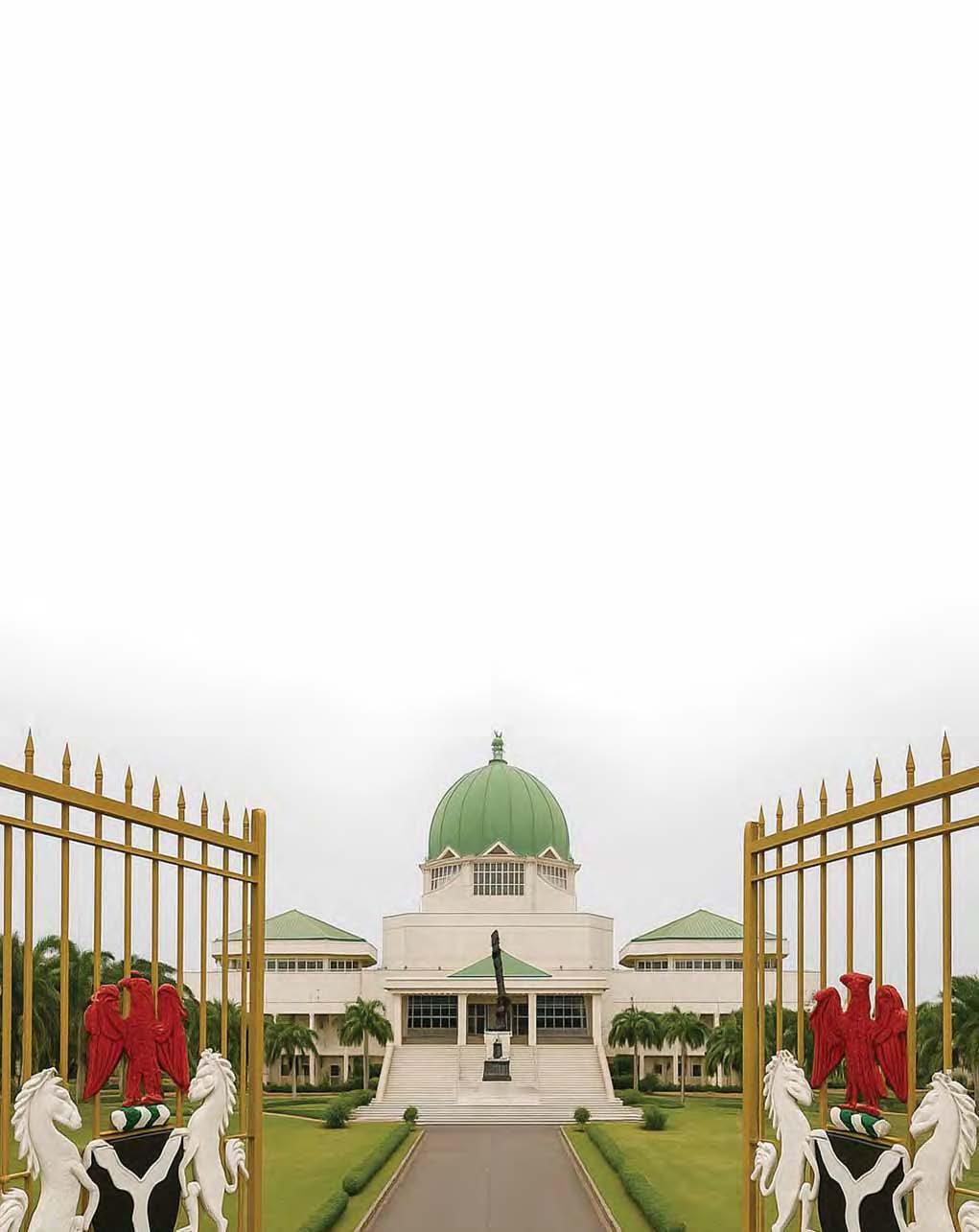
Federal Republic of Nigeria
in collaboration with the Policy and Legal Advocacy Centre (PLAC) with the support of the United Nations Development Programme (UNDP) and the National Assembly Library Trust Fund (NALTF) invites stakeholders and the general public to participate at its Legislative Open Week.
Tuesday 08 - Thursday 10 July, 2025 | 10 AM daily at the National Assembly Complex, Abuja
The Legislative Open Week 2025 is a strategic initiative designed to foster an open parliament and promote citizens' engagement in legislative and governance processes.
With the Support of:






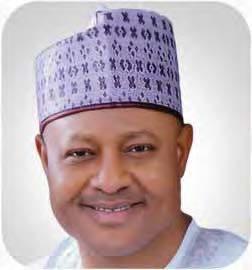






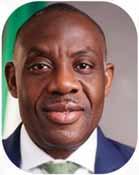
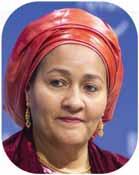





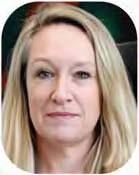




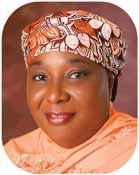




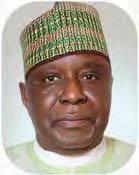



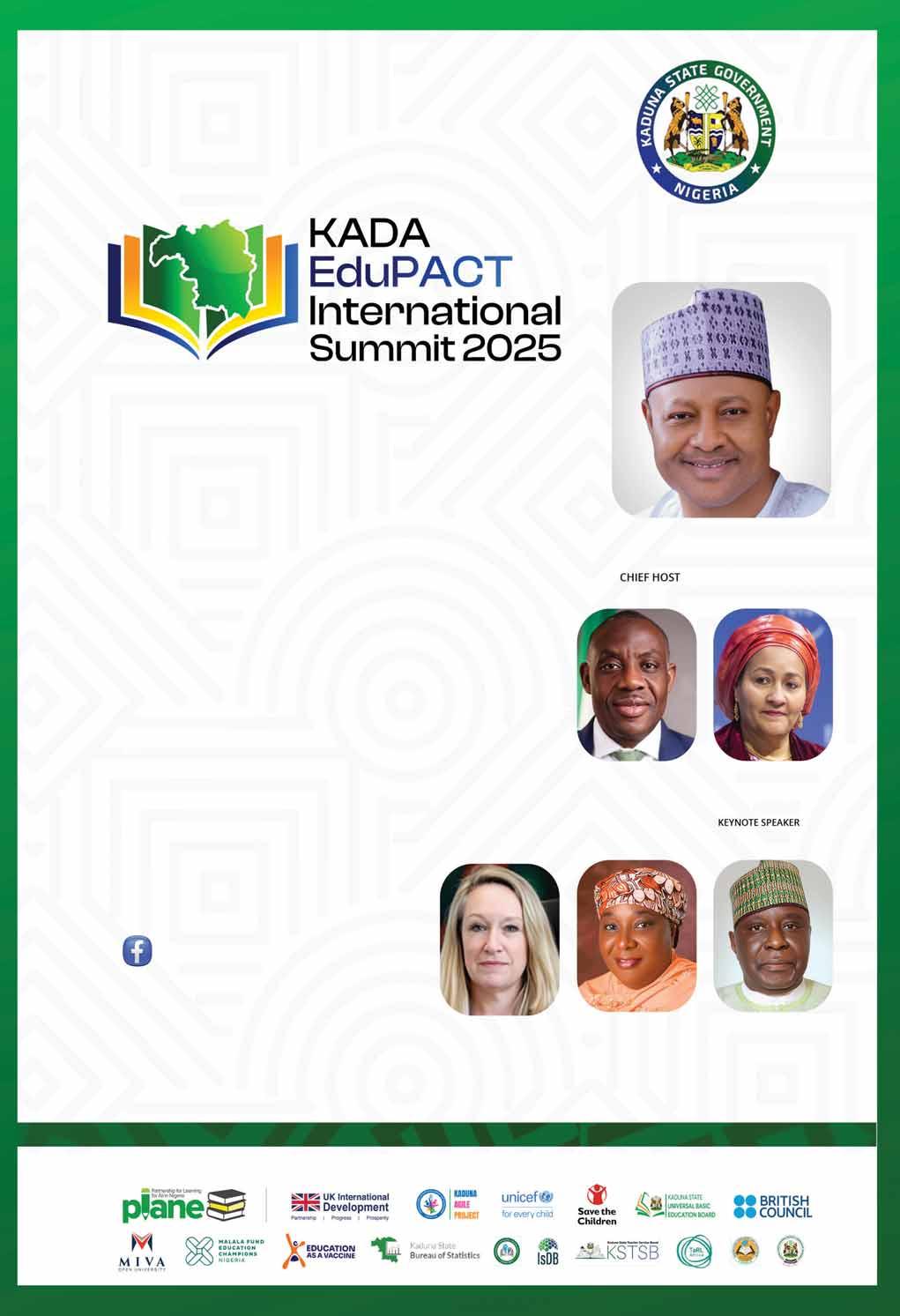
Email: deji.elumoye@thisdaylive.com
08033025611 SMS ONLY
Constitution Review: Senate Leader Leads Inclusive Reform Drive in S’West Zone
Sunday Aborisade in this piece, captures how Senate Leader, Senator Opeyemi Bamidele, is championing inclusive constitutional reform in the South West geo-political zone
In a move that signals a renewed national resolve to confront Nigeria’s persistent governance challenges, the Nigerian Senate, through its Committee on the Review of the 1999 Constitution, has launched an intensive public consultation process across all six geo-political zones.
In the South-West, this effort has gained renewed traction under the able coordination of Leader of the Senate and Vice Chairman of the Senate Constitution Review Committee, Senator Opeyemi Bamidele.
The Lagos zonal public hearing, which held on July 4th and 5th, 2025, in Ikeja, was not just a meeting—it was a microcosm of the constitutional aspirations of the Yoruba people.
Stakeholders from civil society, traditional institutions, professional bodies, and state assemblies came together to make one thing clear: the time for a bold, inclusive, and far-reaching constitutional reform is now.
The hearing began on a candid note. Bamidele, representing the Chairman of the Committee and Deputy Senate President, Senator Barau Jibrin, admitted what many Nigerians have long suspected that previous constitutional amendments have failed to address some of the nation’s most urgent governance challenges.
Despite five rounds of constitutional alterations since 1999, fundamental issues such as state policing, decentralization of power, recognition of traditional institutions, gender inclusion, and electoral reform remain unresolved, largely due to political hesitancy and the inability to secure the two-thirds approval of state legislatures.
Bamidele told the stakeholders that, “several fundamental issues of national importance remain unresolved.”
He also said, “These issues continue to dominate public discourse, with many Nigerians advocating for decisive legislative action to address them.
“We received hundreds of memoranda on these issues, and the Committee has carefully reviewed and drafted them into bills.
“Rather than repeat the mistakes of the past, the 10th National Assembly, through this committee, has pledged to move forward differently—by listening first, acting next, and legislating with the people, not just for them”.
Lagos State Governor, Babajide SanwoOlu, represented by Deputy Governor Dr. Obafemi Hamzat, reinforced the importance of this participatory approach.
The governor called for a Constitution that reflects “the shared aspiration of a fairer, more equitable, and thriving nation.”
He said, “The meeting is not just another chapter in our constitutional history. It is a special and invaluable chance for the people of Lagos and the entire South-West region to have a direct and meaningful say in shaping our nation’s highest law.”
According to him: “Inclusiveness was the spirit of the day. Represented were prominent monarchs such as the Ooni of Ife, Oba Adeyeye Ogunwusi ( jájá II); the Alaafin of Oyo, Oba Abimbola Owoade; the Ewi of Ado-Ekiti, Oba Adeyemo Adejugbe; and several other traditional leaders whose presence emphasized the urgent need for formal recognition of traditional institutions within Nigeria’s governance architecture. Civil society groups, academics, youth organisations, and professional associations also contributed to the discourse. Their memoranda spanned issues ranging from gender equity and state creation to judicial independence and diaspora voting.
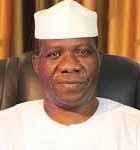
One of the most significant outcomes of the public hearing was the open pledge by the South-West Speakers’ Conference to give full legislative support to the constitution amendment process. Speaker of the Ekiti State House of Assembly and Chairman of the South-West Conference of Speakers, Hon Adeoye Aribasoye, gave firm assurances on behalf of his colleagues.
He said, “When the bills are transmitted to our chambers, we will review them with national interest at heart. We understand the importance of this process and are committed to helping deliver a constitution that reflects today’s Nigeria, not the Nigeria of 1999.”
This commitment addresses a crucial bottleneck. In past attempts, key proposals, particularly on state police and devolution of powers, were defeated at the state level despite federal endorsement.
The assurance of support from state legislators is a strong indicator that this round of review may finally
yield transformational outcomes.
Among the most discussed topics during the hearing were the issues of devolution of powers, state policing, and local government reform, three interconnected concerns that have long plagued Nigeria’s federal structure.
Some of the proposed constitutional bills presented at the hearing included, SB 471 & related bills – Seeking to guarantee democratic existence and autonomy for local government councils and SB 484 –Proposing the establishment of state police to complement national security efforts.
Others were, SB 532 – Calling for the establishment of National, State, and Local Councils of Traditional Rulers; SB 255 –Advocating for diaspora voting rights and SB 440 – Proposing additional legislative seats for women in the National and State Assemblies.
Bamidele said, “These bills are a direct reflection of the people’s concerns. They are not just legal documents; they are a response to real-life challenges confronting our communities, from insecurity to marginalization and inefficiencies in governance.”
Throughout the hearing, the call to consti-
Bamidele’s leadership in the South-West zonal hearings reflects a deeper understanding of the political moment Nigeria is in. At a time when many Nigerians are disillusioned with governance, Bamidele is championing a process rooted in integrity, openness, and inclusiveness.
tutionally recognize traditional institutions resounded loud and clear. For centuries, traditional rulers in the South-West have played stabilizing roles in their communities, often resolving disputes faster than formal courts and maintaining law and order in areas the state finds hard to reach.
The Ooni of Ife said, “The time has come for our roles to be formalized. We are not in competition with the political structure. Rather, we are natural partners in ensuring peace, unity, and development.”
SB 532, the bill to establish structured councils for traditional rulers at the national, state, and local levels, was widely supported across board.
Stakeholders believe this could serve as a bridge between Nigeria’s pre-colonial governance heritage and its modern aspirations.
Under Bamidele’s watch, the SouthWest zonal committee has earned praise for transparency, diligence, and structured engagement.
Unlike previous reviews often criticized for being elite-driven, the current exercise has been decentralized and participatory. The committee has adopted a methodical approach: memoranda were publicly requested, reviewed by technical teams, and converted into draft constitutional bills. These were then presented at zonal hearings for public scrutiny before legislative debates. Bamidele stressed that the committee has no hidden agenda. He said, “We are not here to impose decisions on anyone. We are here to listen, collate, and act on your submissions. The Constitution must be for the people and by the people.”
The hearing also addressed long-standing demands for state creation. In the South-West alone, there were memoranda proposing the creation of Ijebu State from Ogun, Ibadan and New Oyo States from Oyo, and Igbomina State from Osun, Kwara, and Ekiti States.
There were also demands for the conduct of referenda on critical national issues (SB 249), birthright citizenship for persons of African descent (SB 315), and environmental and reproductive rights for unborn children (SB 825)—demonstrating a bold expansion of the civic and human rights agenda.
As the zonal public hearings continue across the nation, the Lagos session has set a high benchmark for citizens’ engagement, legislative openness, and leadership accountability.
The presence of royal fathers, state legislators, executive representatives, and civil society ensured a rich, multidimensional input that other zones would do well to emulate.
The onus now lies on the National Assembly and state legislatures to harmonize public input into constitutional bills and pass them in the spirit of nation-building.
One participant noted.“This is not just a legislative exercise. It is the soul-searching of a nation trying to redefine itself.”
Bamidele’s leadership in the South-West zonal hearings reflects a deeper understanding of the political moment Nigeria is in.
At a time when many Nigerians are disillusioned with governance, Bamidele is championing a process rooted in integrity, openness, and inclusiveness.
If the recommendations and bills generated from this effort are genuinely pursued through the legislative pipeline, Nigeria may well be on its way to a new constitutional order—one that speaks to the dreams of its people and the demands of its time.
As the constitutional review continues, the South-West can look back on this moment with pride. Under Bamidele’s coordination, it did not merely participate, it led.
INTERVIEW
Okwuosa: Successful Crossing of River Niger Milestone for 614km AKK Pipeline
In this interview, the Group Chief Executive Officer of Oilserv Group, one of Nigeria’s engineering powerhouses, Emeka Okwuosa, talks about the complexity of the recent River Niger crossing of the 614km Ajaokuta-Kaduna-Kano (AKK) gas pipeline project. Okwuosa offers insights into the technical challenges, progress made, and the significance of this critical phase in Nigeria’s gas transportation network. Emmanuel Addeh brings the excerpts.
Could you give us an overview of the AKK pipeline project?
A lot of people who hear about AKK may not actually fully understand what it entails. AKK is AjaokutaKaduna-Kano pipeline. It’s a 614-kilometre pipeline. And out of that, Oilserv is building 303 kilometres, approximately half of that, starting from Ajaokuta, all the way to the border between Kaduna state and Niger state. And when we talk about the kilometres or the length of the pipeline, it’s not just about the pipeline. In the pipeline, there are multiple facilities that go with it.
And this is not a normal gas pipeline, this is what you call a transmission line, which means it’s a core pipeline from which you now distribute and build other pipelines to get to different node centres. This is the transmission line, which is the core. And it’s got stations along the line. It’s got terminal gas stations, etc. So, it’s not just a pipeline, it’s a pipeline system with all manners of facilities associated with it. It’s a key part of the Nigerian gas master plan.
And you may be aware that the gas master plan, part of it, is already built. The Escravos to Lagos pipeline is in existence as we speak. The OB3 pipeline, which is a larger diameter, it’s a first stage pipeline. Most of it is in place. Oilserv built half of that. And our own section was completed in the past four years. It’s in use as we speak, and gas is flowing into that pipeline.
So, AKK is a major segment, after which there will be another one that will come again from the south and join Ajaokuta to make up the entire transmission system that constitutes the Nigerian gas master plan. But let me concentrate on AKK.
Why I mention all this is for you to realise that in all these pipelines I’ve mentioned, virtually most of them, Oilserv has been involved in building them at various times. AKK, the 303 kilometres section we’re building, the target is to have mechanical completion by the end of 2025. This pipeline is being built in very difficult terrain.
If any of you have the opportunity to visit this site, you will see that in our own segment, we have to blast rocks to be able to lay the pipeline. Most of the areas around Kogi are all rocks. And you can imagine that if you want to, all these pipelines we built, at the end of welding, we need to lower them more than two metres below the ground.
So the point I’m making is that difficulties have been encountered, and Oilserv has been working closely with NNPC to overcome those, and we are proud to say that with the crossing of River Niger, which is a major obstacle or a challenge, it’s a major milestone. Without crossing the River Niger, you will not have a complete pipeline.
What is the significance of this River Niger crossing?
I did mention a bit about the crossing, but I will elaborate to make sure that it is clear to all. The AKK pipeline we have built, transverses deep-treaded terrains from the deep jungle. There are multiple river crossings, and it’s a long drive away. You’ve got hills and what appear to be cliffs. We have to cross roads.
It may appear simple, but a lot of the time, to cross this without crossing the road physically, you have to trail across. But the significance of River Niger is that River Niger is a huge river, from one bank to the other, in this particular case, where we are, is one or two kilometres. And we had to do this pipeline in a way that we respect the environment. We did not want to disturb the water itself.
Don’t forget, this is a pipeline for so many people, either in terms of fish that is gotten from this river, or in terms of navigation. You don’t want to lay the pipeline by cutting the bottom of the river. So what we did in this case, was to do what we call Horizontal Directional Drilling.
We drilled under the water bed from one bank to the other without disturbing the water. It is something similar to the Channel Tunnel that was built from England to France in order to have train paths. It’s just that the Tunnel is a larger diameter hole that enables transport to go.
It’s a special technology, because in doing this, you have to go through different formations, what we call consolidated formations. You have rock, you have clay, you have gravel, you have all sorts that you have to adapt to. A lot of times it’s difficult to achieve this without breaking down the formation. So crossing a river of that magnitude is a difficult task. We already crossed another river called Pai River, but that is about a kilometre, slightly less than a kilometre.
It’s still the same method, but being that it’s a shorter distance, it’s easier to do. Once you get to two kilometres above, it is difficult because you have a lot of load. You have to have a lot of pull to be able to pull the
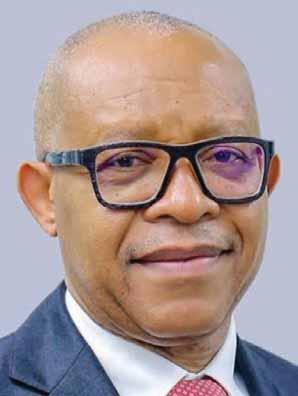
pipe across.
And you have to be extremely careful to overcome all the constraints. So crossing River Niger, such crossings are very scarce all over the world. Whenever you achieve this, it’s actually a very significant achievement anywhere in the world, not to talk of Nigeria.
When people hear about the pipeline, they think you just take a piece of pipe and just go there and put it there. It is a difficult process. It is to deal with security issues that we all know have gotten worse in the past five years.
In the course of executing this project, we have had attacks that I won’t go to elaborate on, and we have even lost lives. When such a thing happens, you have to stop the project, recalibrate it, rework your security protocols, and get the support of the government, which we are glad we are getting. We have a strong support of the military, we have a strong support of police, and we have a strong support of the state security service.
And the NNPC has worked closely with us to support us. If not for that, this project would have taken longer. But this is only one of the challenges. I already talked about the terrain. Sometime of the year, you cannot access some areas because of rain, because of flooding. We have to deal with that.
We also know the difficulties of our logistics. To move these pipes from the ports to the location where we need them, the maximum you can carry in one truck is only three pipes. A lot of times you can only carry two pipes. These are 40 inch diameter pipes. They are huge. So what it means is that if you look at 303 kilometres, the length of each pipe is 12 meters.
You now have to lift thousands of pipes you have to carry from the port and overcome all the road problems. During the rainy season, some parts of the road are not accessible. So there are multiple challenges we have to deal with. And these are the things that create the issues.
As an indigenous company, what key lessons have you learnt from this?
Our experience has been rich. Rich from the point of view of being forward looking. Every challenge that we have encountered as a company, our major purpose and direction has been to take advantage of solving those challenges in developing our capacity even further. I dare say that we are not just an indigenous company, we are run by indigenous management, with the entire staff of Oilserv, we are all Nigerians.
Oilserv commenced activities in 1995 and we have continuously built capacity to the extent that at the height of this project now, we have more than 2,000 people that work for Oilserv in one capacity or the other. And we have thousands more that are our vendors, our subcontractors, and so on and so forth. So it’s not just about Oilserv.
By the existence of Oilserv, Nigeria is being developed. By the existence of Oilserv, many families are able to have their livelihood provided for, directly or indirectly. We are not even talking about the impact of the gas pipeline built that will provide gas, provide energy, and improve
the business outlook and economy of Nigeria. So for us, the challenges have to do more with building capacity as an indigenous company, as a Nigerian company, knowing full well that virtually all the equipment we use are not made in Nigeria. We have to buy them overseas. We have to maintain them. All the spares are purchased overseas. And we know we have to deal with foreign exchange issues. The other one revolves around capacity building from the point of view of human resources.
We have to train our people from scratch, because if we don’t, nobody can do it for us. And we have set up various training programmes that have enabled us over the past decades to develop capacity. And knowing full well also, labour laws, sometimes we lose people to competition, to other parts of the industry or people traveling out of the country. So it’s a continuous challenge to keep training and keep building capacity. But in all this, I can tell you, we have actually achieved a lot of success.
The issue of insecurity is a huge conversation in Nigeria. Given the prevailing security challenges across the country, how has Oilserv been able to sustain progress on the AKK gas pipeline?
We all know the challenges we have. We also know that the government is doing its best to try to contain the situation. It’s not just only about Nigeria. You can see what is going on across West Africa, across the Sahel. It’s a difficult time for everybody. But when you build pipelines, you have to go through every inch of the terrain to be able to lay these pipes. You have to have hundreds of people, if not thousands, along the right of way Inside the forest.
You can see that a lot of times, Nigerians don’t know what is going on because you don’t see the people walking. They’re inside the forest. We don’t build pipelines. Most of the time, we don’t build pipelines along the roads. Sometimes, we cross the road by chance.
We try to avoid built-up areas because you have to safeguard the pipeline and safeguard people from the impact of the pipeline. So what it means is that we’re exposed to these security issues. And for us to execute a project, we have to retain the services of government security agencies. And we’re talking in multitudes.
We have the military giving us very strong support. We have soldiers along the right of way in every location. We have police. We have civil defence in some areas. We even have the local hunters who are very invaluable because they know the terrain. So you can imagine sometimes, we have 100 security personnel in a particular section. So this creates difficulty in logistics. And then, of course, you can imagine the cost impact.
But I dare to tell you that we have a very good support of the Nigerian government on this. The federal government of Nigeria through the security agencies are supporting us. NNPC has done a lot to offer support to make sure that we are able to continue working in the course of this process and make sure that insecurity does not stop us.
Community relations is another very big issue. Given what’s happening in the Niger Delta and how that has impacted the oil industry, how have you been able to engage communities in the course of the project?
Oilserv is a company that has come a long way. We have worked extensively in the Niger Delta. For the IOCs like Shell, like Total. We also worked for Chevron, NLNG and others, So, we have a huge capacity on how to manage the communities. What is important is recognising that the communities have their rights. And we must respect those rights. Over time, we developed procedures and processes on how to engage. Before you get into any location for work, you have to engage with the community. Know their peculiarities. Know what they want. Make sure you know you have the employment opportunities to offer them. And then, most times, we sign MoUs with them that specify how we relate.
Most importantly is that we live up to our agreement with the communities. Because if you don’t, you cannot come back. You will have difficulties. I can say that we’ve maintained a very, very good community relations record. We don’t have any issues with the communities because we follow the rules. We follow the engagement protocols. And we carry them along.
And we make sure that they benefit as they should from the opportunities that exist. We make sure that we respect their environment. We make sure that we respect their tradition. And we make sure that they’re carried along across the board. So, that is why it works very well.
We have multiple people employed in it who understand the communities. They engage them. We work closely with our clients, in this case, NNPC, on this project to make sure that we follow not only our own guidelines, but the guidelines of our clients. And every project has got
community procedures and community plans. So, we follow those. Before the project starts, all these things are developed, approved by our clients.
Funding is usually a key issue in projects like this. The NNPC was supposed to get China Exim bank to sponsor this project. But we now hear of Afreximbank being in the picture. Can you give us some details?
You are aware, and you mentioned it, that when this project was conceptualised, it was on the basis that external finance would be raised. And the NNPC narrowed it to China. And we had a very detailed discussion with China over a couple of years. Unfortunately, it did not materialise to funding. And the NNPC did their best to fund this project internally. You can imagine the difficulty of that, a project of this magnitude. But because of the significance and importance of this project to Nigeria, our country, NNPC had to dig deep and use their internal resources. I will tell you that they have been successful. Of course, there have been challenges. These challenges mean that sometimes we have to, as a company, cover this cost until they are able to make up. But the way the project is run, actually, it is not that NNPC gives us money to go and execute. No, we go and we have what we call milestones. The project is broken into milestones. Each milestone is a scope. Each milestone has a value. So, we go, as Oilserv, raise the money with our banks, and then go ahead and build this section, achieve the milestone, before we can push our invoice for NNPC to pay off. So, really, we fund it, NNPC pays us as we achieve milestones. That’s the process. So, that again gives NNPC some time to be in a position to meet up. But I can tell you clearly that based on the way we have worked with NNPC, we have managed to overcome the challenges of financing. And a lot of credit will go to NNPC for that. And, of course, to our staff for doing what we need to do to make this work. So, that is what it is.
Do you have an arrangement to continue to maintain these pipelines after handover?
It’s quite an important issue. And thank you for raising it. Now, I will tell you very clearly that we build the pipeline in line with very clear procedures. And these procedures and processes are actually internationally recognised.
And what do I mean by that? In engineering, you have standards. These standards are international. It’s not about Nigeria. And every part of the pipeline system is built in line with that. It has a code that we follow. Now, after commissioning, we go into the next stage, which is operations and maintenance. You run the pipeline as it is designed to be run. In this particular case, our scope is EPC, engineering, procurement, and construction.
As soon as we commission the pipeline, we hand it over to our client, the NNPC. NNPC has to arrange how to carry out the operations and maintenance. A lot of times, they will contract an operations and maintenance company.
Yes, oil and gas people can also execute that, but it’s a different scope. So, for the life of the pipeline, this kind of pipeline can last you 50 to 60 years, if maintained properly. So, for the life of this pipeline, NNPC that owns this pipeline has a duty to operate and maintain this pipeline in line with the code of the industry. And there are checks and balances to make sure it’s done.
What about partnership with other banks?
Thank you. We have developed partnerships with different financial institutions, including banks in Nigeria, some international banks, and financial organisations. But Afreximbank is quite a significant one. Afreximbank, as you know, is more of a multilateral finance institution covering activities in Africa. They support and finance and help to develop various capacities, and then various projects and facilities, not only in Nigeria, but across Africa. And for you to qualify, it is very strict. You have to show capacity, you have to also be forward-looking, and they have to be sure, from your management system, your capacity as a company, and your ability to be part of the team for developing Africa. So, it’s not just about Nigeria. So, we went through all those qualifications before we got through. And I dare say that in Nigeria, Oilserv is the only EPC company that is qualified for that. Which means now, we work closely with the bank, even for developing opportunities across Africa.
FEATURES Private Sector as Contributor to National Health Goals
Nigeria's healthcare system is in dire need of transformation, with nearly one in 25 women facing the risk of dying during childbirth. Despite being one of Africa's largest economies, the country's healthcare statistics are alarming, with high maternal mortality rates, underfunded health budgets, and uneven access to quality services. However, in recent years, the private sector has emerged as a vital partner in achieving national health goals. Sunday Ehigiator reports
Once viewed as a peripheral player in public health, Nigeria’s private sector is rapidly becoming a central force in advancing national health goals, bridging systemic gaps, and accelerating progress toward Universal Health Coverage (UHC). The sector’s growing role marks a crucial shift in how health care is envisioned, financed, and delivered in the country.
The Health Crisis We Cannot Ignore
Nigeria’s maternal mortality rate stands at 993 deaths per 100,000 live births, according to the World Health Organisation (WHO). This accounts for almost 20 per cent of all maternal deaths globally.
Fertility rates remain high at 5.0, while contraceptive use lingers at just 18 per cent. Even more alarming is that half of all births happen outside of health facilities, with only 40per cent attended by trained health personnel.
Government health spending is insufficient to stem the tide. Nigeria allocates just about 6 per cent of its annual budget to health, well below the 15 per cent benchmark set by the African Union in 2001.
Per capita public health expenditure hovers around $6 to $10 annually. With only four doctors for every 10,000 people, the system is overstretched, and the consequences are devastating.
These figures underscore why Nigeria’s push toward Universal Health Coverage (UHC) by 2030 is not just aspirational, it’s imperative.
A Renewed National Agenda
Recognising the enormity of the task, Nigeria’s federal government has introduced a robust strategy: the Nigeria Health Sector Renewal and Investment Initiative (NHSRII), spearheaded by the Coordinating Minister of Health, Professor Muhammad Ali Pate, under the slogan ‘One Plan, One Voice, One Goal’.
This national strategy rests on four critical pillars: Effective Governance; Efficient, Equitable, and Quality Health System; Unlocking the Health Value Chain; and Health Security.
The implementation framework is the Sector Wide Approach (SWAp), a coordinated effort involving government, civil society, the private sector, and development partners.
What sets this initiative apart is its whole-ofsociety approach. Government agencies, civil society, development partners, and notably, the private sector, are all called upon to participate actively.
The third pillar, focused on ‘Unlocking the Health Value Chain’, represents a direct invitation for private players to contribute their capabilities to strengthen the health ecosystem.
The National Coordinator of the Presidential Initiative for Unlocking the healthcare value chain, Dr. Abdu Mukhtar, leading this effort, has made tangible strides, particularly in negotiating local production incentives for medical supplies.
Digital technology, another area where the private sector excels, is seen as a cross-cutting tool that will enable smarter, data-driven decision-making and service delivery.
As Prof. Pate emphasised in a 2023 dialogue with the Africa CDC, Nigeria is developing a comprehensive digital health policy to unify efforts and guide all stakeholders, including private innovators.
Financing the Future: Partnerships That Work
In an era of declining international donor funding post-COVID-19, the private sector's role in financing health care is more vital than ever. According to World Bank data, private providers already account for an estimated 78 per cent of total health expenditure and deliver about 60 per cent of services nationwide, according to the WHO.
A shining example of public-private synergy is the Coalition Against COVID-19 (CACOVID), a private sector-led initiative formed in response to the pandemic.
CACOVID mobilised more than 39 billion (approximately $100 million), making it the third-largest private sector health fund globally. The funds established over 100 isolation and treatment centres, added 1,000 ICU beds nationwide, and contributed to a 30 per cent reduction in COVID-19 mortality in hospitals.
This success illustrates how private capital, leadership, and speed can complement public health objectives to deliver transformative impact.
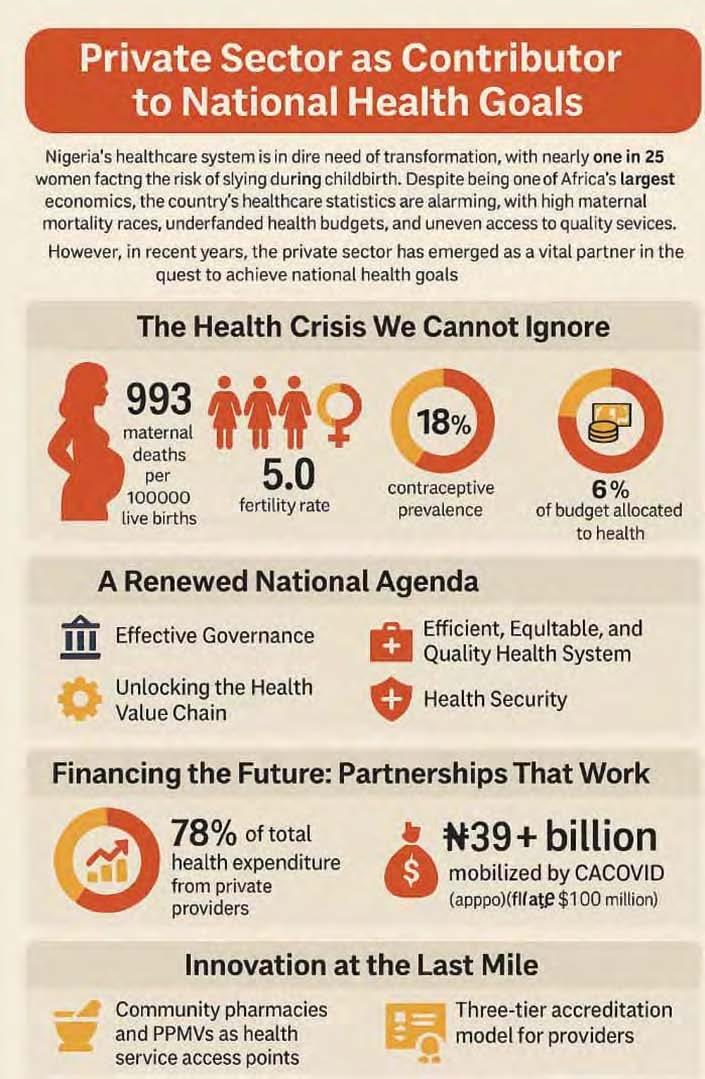
Innovation at the Last Mile
While national-level partnerships draw headlines, some of the most innovative models are unfolding at the community level.
In underserved areas, community pharmacies and Proprietary Patent Medicine Vendors (PPMVs) often serve as the first point of contact for health services.
Recognising their potential, the Pharmacy Council of Nigeria (PCN), in partnership with the Society for Family Health and supported by several stakeholders, developed a three-tier accreditation model to train and supervise these providers.
Initially rolled out in Lagos and Kaduna, this model now spans 11 states, including Bauchi, Borno, and Kano. The results are impressive.
According to PCN, with this initiative, over 700,000 women were reached through community pharmacies and PPMVs. There were over 230,000 new acceptors of family planning, over 192,000 couple-years of protection, about 55,000 unintended pregnancies averted, over 400,000 children under five seen by trained providers, over 6,000 presumptive TB cases identified, with over 700 confirmed and receiving care. These figures highlight the power of community-based, private-sectorsupported initiatives in reaching marginalised populations, especially in a country grappling with a shortage of trained health workers.
State-Level Success Stories
Another compelling example of a successful public-private partnership is found in Delta State.
In 2018, the Delta State Contributory Health Commission (DSCHC) partnered with the PharmAccess Foundation and other stakeholders to revitalise 15 non-functional primary health centres (PHCs).
Using a financing model that empowered
private providers while guaranteeing payment through state-backed insurance, this partnership achieved remarkable outcomes by December 2021, including, zero maternal deaths in target PHCs (compared to the state average of 188 per 100,000 live births); under-5 mortality rate dropped to 0.7 per 1,000 live births (from 83 per 1,000); over 200 million in private investment, and 24/7 service delivery across all target facilities.
The lesson is clear: strategic, well-financed PPPs can transform the delivery and quality of care at the grassroots level.
Scaling for National Impact
Another successful model is the Private Sector Health Alliance’s (PSHAN’s) AdoptA-Healthcare-Facility-Programme (ADHFP), which seeks to revitalise one PHC in each of Nigeria’s 774 LGAs through private sector support.
So far, 215 PHCs have been adopted and 52 refurbished. In project LGAs, antenatal care attendance rose by 200 per cent, skilled birth attendance by 38 per cent, and immunisation coverage by 55 per cent. Overall facility attendance increased by 300 per cent, improving access and utilisation of healthcare.
To achieve Nigeria’s health goals, including universal health coverage and reduced maternal mortality, public-private collaboration is essential. Health sector leaders have recognised this; the next step is scaling models like the three-tier accreditation model and PPPs.
The Path Forward: Urgency and Opportunity
Despite the progress, achieving Nigeria’s health goals remains an uphill battle. Yet the path forward is clearer than ever. The NHSRII provides a comprehensive blueprint, and the examples above demonstrate that success is not only possible but it is
replicable. The next frontier is scale. That means expanding community-based initiatives like the PCN thr ee-tier model to more states. It means formalising partnerships across sectors to revitalise hundreds more PHCs. It means using digital technologies to ensure that health care data g uides decisions at every level. And above all, it means maintaining political will to ensure that health remains a top national priority.
But this isn’t solely a government task. Nigeria’s private sector, pharmaceutical companies, banks, telecom firms, logistics providers, fintech startups, and large corporations must view health as part of their core business strategy, not just corporate social responsibility.
Investing in health is not only a moral obligation; it also makes economic sense. A healthier workforce is a more productive one. A stable health system strengthens national resilience and investor confidence.
Call to Action
A nation’s prosperity is deeply tied to the health of its people, especially the women who give birth to future generations. If Nigeria is to build a society where no woman has to die while giving life, the country must continue to foster a health ecosystem where public and private interests align around common goals.
This is not just about policy; it is about partnerships. Not just about infrastructure, but innovation. And not just about funding, but shared responsibility.
With strong leadership, community-level engagement, and private sector collaboration, Nigeria can make significant strides toward universal health coverage and drastically reduce maternal mortality. Together, we can build a future where every woman, child, and family has access to the care they need and deserve.
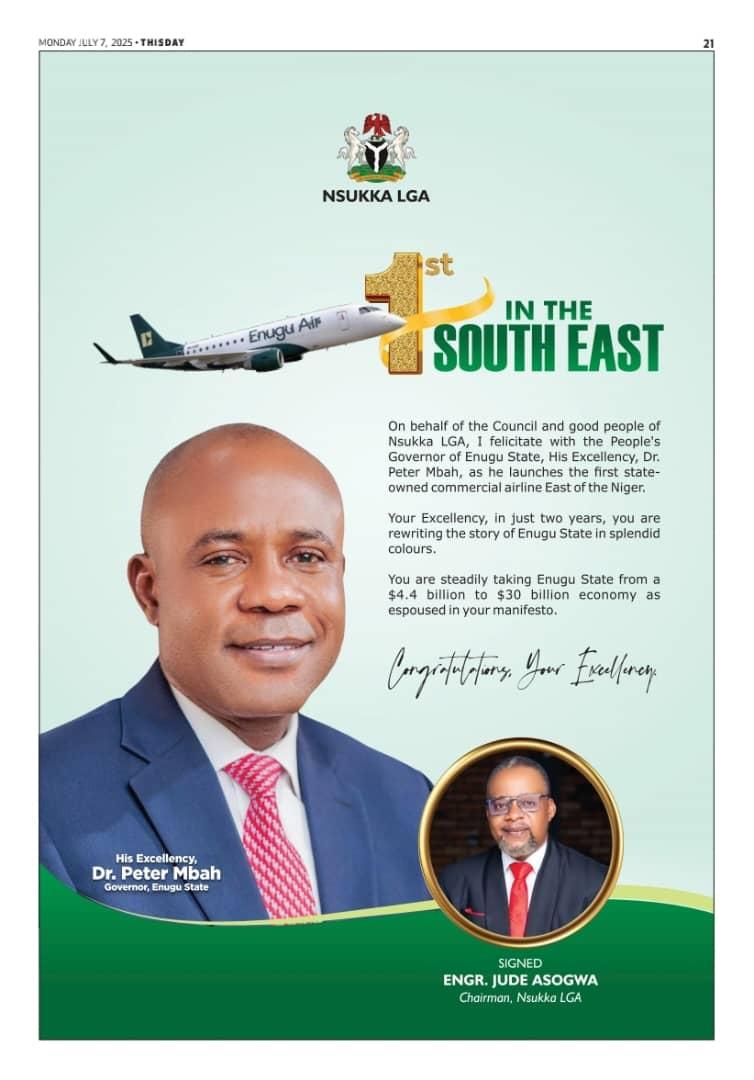
POLITY
At UNGA 80, TND/GGC Dissect Gulf of Guinea’s $800bn
Maritime Investment Prospects
Leveraging the 80th Session of UN General Assembly (UNGA 80) in New York, holding September 2025, The New Diplomat/Gulf of Guinea Commission, GGC, convene a High-level Roundtable on the sidelines to address peace, security, $800bn hydro-carbon and maritime prospects in the gulf region. Louis Achi reports
Against the backdrop of searing global political and economic dynamics stemming from various factors including geopolitical tensions, climate change, energy streams, hydrocarbon pricing swing, natural disasters, trade instability, emerging blue economy potency and inter/intra state insecurity, the 80th Session of the United Nations General Assembly (UNGA 80), will convene under the overarching theme “Building our Future Together,” from 9-23 September 2025
UNGA 80 will address pressing global challenges, including peace and security, business and investment, sustainable development, and economic resilience. In alignment with these global priorities, a high-level roundtable on the sidelines of the 80th Session of the UN General Assembly, has been put together, focusing international attention on the Gulf of Guinea (GoG) - a strategically vital region on account of its cruciality to regional and global energy, oil and gas, airlifting logistics, infrastructure and maritime capabilities.
The top-notch roundtable themed: “Unlocking Energy, Oil & Gas, Minerals and Maritime Opportunities in the Gulf of Guinea: A Roadmap for Peace and Security,” is convened by The New Diplomat, a nonpartisan policy think tank based in Abuja, Nigeria, in collaboration with the Gulf of Guinea Commission (GGC) headquartered in Luanda, Angola.
This collaborative forum - The New Diplomat and GGC - builds upon the inaugural event held during the 70th UNGA. It seeks to deepen international engagement on peace and security imperatives and catalyze investment and business in the region’s energy, oil and gas, mineral, aviation and maritime sectors.
The roundtable will hold on Thursday, 25th September 2025, at the 22nd Floor, Permanent Mission of Nigeria to the United Nations, 828, 2nd Avenue, New York, US. The pre-roundtable welcome dinner will hold 24th September 2025, 7:00pm-8pm, with the main sessions kicking off 25th September 2025.
The roundtable will extensively highlight and dissect the strategic importance of the Gulf of Guinea and
illuminate the region’s peace, security, $800billion energy, oil/gas, infrastructure, and maritime business prospects.
For context, according to the OECD, the African coastal economy is projected to reach $3 trillion by 2030, with the GoG contributing $300 billion and creating over 49 million jobs.
Strategic Importance of the Gulf of Guinea
Spanning from Nigeria to Angola, the GoG produces nearly 50% of Africa’s oil and holds an estimated 10% of global reserves. The region also serves as a vital shipping corridor and a source of abundant natural resources - from hydrocarbons and minerals to fisheries - making it integral to regional and global economic architecture. It is a nexus for global trade, logistics and transportation.
However, it remains a hotspot for transnational threats including piracy, illegal fishing, smuggling, oil theft, and maritime terrorism. These security challenges jeopardize economic growth, affect investment, and undermine regional integration.
Current Challenges, Regional Responses
The Yaoundé Code of Conduct, adopted in 2013 by 25 coastal states, provides a foundational framework to address maritime threats. However, it has yet to evolve into a binding regional agreement. While efforts by ECOWAS, ECCAS, and the GGC continue, implementation gaps persist, particularly in harmonization, enforcement, and operational capacity.
Recent developments, such as Nigeria’s decision to host the Combined Maritime Task Force (CMTF) in Lagos under the African Union’s African Standby Force (ASF), signal renewed momentum. Yet, the ASF still faces readiness challenges, including political coordination, funding, and strategic airlift capabilities.
The September 25, 2025 roundtable provides a timely opportunity to revisit/illuminate regional frameworks, galvanize multilateral support, and align peace and security architecture with economic, business and development aspirations.
Strategic Benefits to the Private Sector,
Diplomatic Stakeholders
The GoG is emerging as a critical gateway for investment, trade, and security cooperation, with over $800 billion in energy and infrastructure opportunities. This high-level roundtable provides a rare platform for public-private engagement to unlock the region’s full potential.
The associated key benefits for stakeholders include unparalleled market access and partnership building. Investors/participants will engage with high-level government representatives, business leaders, and investors from across 38 African coastal states. Leverage the GGC as a strategic platform to align business priorities, strengthen networks, and foster cross-sectoral collaboration - public, private, and multilateral. Others include:
Promoting Financing Architecture for Projects in the GoG
The roundtable will promote the creation of financing architecture for effective exploitation and channelization of the Gulf of Guinea’s energy, oil & gas, minerals and maritime resources for regional economic growth, private sector development, and the benefits of citizens of member states.
Catalyzing Blue Economy, Blue Diplomacy
It will play up regional collaboration on transnational projects in energy, oil & gas, maritime logistics, airlifting logistics and minerals. The roundtable will also harness emerging opportunities in the Blue Economy, supported by the African Continental Free Trade Area (AfCFTA).
Showcasing Innovation, Corporate Vision
In showcasing innovation, corporate vision, CEOs, captains of industry, and leaders of state-owned enterprises will have a global platform to present their innovations, brands, and development models to a targeted international audience.
Driving Economic Growth, Job Creation
According to the OECD, the African coastal economy is projected to reach $3 trillion by 2030, with the GoG contributing $300 billion and creating over 49 million
jobs. The Roundtable helps position stakeholders at the forefront of this transformation as well as strengthening regional security for investment stability.
The New York roundtable will significantly support Nigeria’s leadership in hosting the Combined Maritime Task Force (CMTF) in Lagos under the AU-led African Standby Force (ASF) - a pivotal step to address piracy, oil theft, and maritime crime, which cost the region over $2.8 billion between 2020-2025 (IMB).
Shaping Regulatory, Security Frameworks
With little question, the roundtable will contribute to the evolution of the Yaoundé Code of Conduct into a binding legal framework. Promote harmonized enforcement mechanisms and operationalization of the ASF/CMTF to safeguard regional assets and reduce investment risks.
Positioning for Intra-African Trade Growth
As AfCFTA removes trade barriers, investments in coastal infrastructure and maritime security will facilitate up to $560 billion in additional trade, including $450 billion in oil, gas, and maritime commerce over the next decade.
Technical Cooperation, Logistical Innovation
Besides enhancing technical cooperation and logistical innovation, the roundtable will accelerate regional business synergies through exploration of joint ventures and policy dialogues on aviation, strategic airlifting, and supply chain resilience - critical to peacekeeping, commerce, and regional response capabilities. Consequentially, it will forge alliances between established and emerging energy-producing countries. Enable peer learning, private sector matchmaking, and knowledge-sharing that catalyze regional business flows and prosperity.
For nearly half a century, Nigeria’s vast economic promise has been crippled by pipeline vandalism and oil theft. The country lost billions of dollars every year as critical oil infrastructure was repeatedly sabotaged by criminal syndicates and local collaborators.
Yet in a remarkable turnaround, the Nigerian National Petroleum Company Limited (NNPCL) has declared 100% crude oil pipeline availability for June 2025, a milestone once unimaginable at the height of rampant sabotage.
But this victory is not NNPCL’s alone. At its heart is a transformative partnership with Pipeline Infrastructure Nigeria Limited (PINL), whose community-focused approach has undercut the sabotage economy and shown that real security must have local ownership at its core.
Nigeria’s 5,000-kilometre pipeline network was once notorious for leaks and attacks. At its worst, the country lost about $700 million monthly to theft. Pipelines like the Trans Niger Pipeline (TNP) sometimes delivered as little as 5% of the crude pumped through them, as relentless attacks crippled output.
Between 2019 and 2022, NNPCL spent an estimated N147 billion (about $100 million) on repairs and security, with daily spending peaking at N123 million. By early 2025, crude production had fallen to just 1.35 million barrels per day—far below the 2.02 million bpd budget target and OPEC quotas.
This crisis turned a corner when PINL introduced its community first security blueprint. Unlike the military-heavy tactics of the past, PINL embedded itself within the Niger Delta’s social fabric, shifting host communities from suspicion to stakeholding.
Across Rivers, Abia, and Imo States, PINL launched scholarship schemes for 645 youths
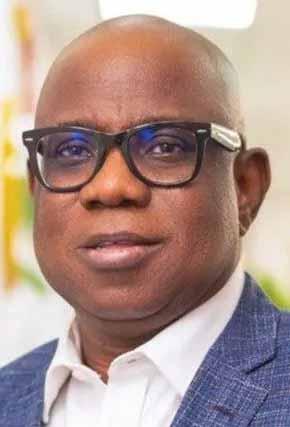
Office of the National Security Adviser (ONSA) built deeper local investment in pipeline safety. Intelligence-driven ground operations swiftly dismantled illegal bunkering networks.
In just one week in January 2025, PINL teams uncovered 39 illegal refineries and 12 unauthorized pipeline connections. By supporting ONSA’s clampdowns, military and joint forces task,PINL helped prosecute more than 100 pipeline vandals, sending a clear message that even well-connected actors would face justice.
While PINL’s local security operations held the line, NNPCL pressed on with infrastructure upgrades and reforms. The milestone of 100% pipeline availability came alongside progress on major projects like the AKK Gas Pipeline. The challenging River Niger crossing, a key segment of the $2.8 billion, 614-kilometre pipeline, has been completed, paving the way for expanded gas supply to Northern Nigeria.
NNPCL’s new centralized Command and Control Center now coordinates security for Nigeria’s biggest pipelinesincluding Trans-Niger, Forcados, Escravos, Brass, and Ramos—working closely with operators like Shell and PINL.
The impact reaches beyond pipelines alone.
The Forcados Terminal, once operating at just 10% capacity, is now approaching its full 400,000 bpd throughput, which could generate about $1.2 billion monthly at current prices. In Lagos, improved stability on Escravos pipelines has added 300MW to the grid, easing chronic blackouts. Renewed confidence in energy security is drawing investors back; at the recent Lagos Energy Summit, midstream players pledged $3.8 billion in new investments. However, while pipeline flows are stable, Nigeria’s broader production ambitions face hurdles. Underinvestment in onshore fields, stalled projects, and funding constraints mean billions of barrels remain untapped. NNPCL’s inability to fund its 55% share in joint ventures with international oil
companies could require an extra $2 billion yearly to maintain output.
Moreover, the sabotage economy has shrunk but not disappeared. Criminal syndicates are adopting new tactics, including subsea drones and encrypted communications, pushing PINL to constantly innovate as it expands into new regions like the AKK corridor. Key reforms are still incomplete. Disputes over the Petroleum Industry Act (PIA), royalty structures, and lingering fuel subsidies especially for kerosene and diesel, which still drain over N200 billion each month highlight the need for decisive policy action. Refinery rehabilitation also lags behind schedule: the Port Harcourt Refinery missed its Q2 2025 restart target, while Warri operates below capacity due to crude supply gaps.
To truly hit the 2 million bpd mark, Nigeria must lock in lessons from PINL’s success: embed community equity participation, strengthen legal deterrence, boost upstream investment, and guarantee steady funding for vital oil and gas infrastructure. A national framework that adopts PINL’s model into law backed by a dedicated Pipeline Protection Trust Fund, financed by recovered stolen crude could give this breakthrough staying power. PINL’s triumph over saboteurs proves that Nigeria’s deepest challenges can be tackled with local solutions rooted in trust. As NNPCL’s Group CEO Bayo Ojulari said at the Lagos Energy Summit, “We have secured the pipes. Now let us fill them.”
The milestone of 100% pipeline availability shows what’s possible when community, intelligence, and infrastructure work together. But to transform Nigeria’s energy story, stable pipelines must be matched by growing production—and prosperity for the communities that protect them.
The sabotage economy has been dwarfed; the task now is to bury it for good while unlocking Nigeria’s full energy potential.


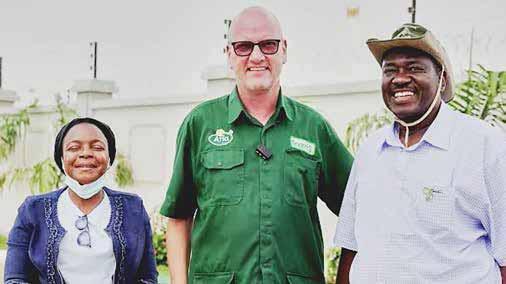
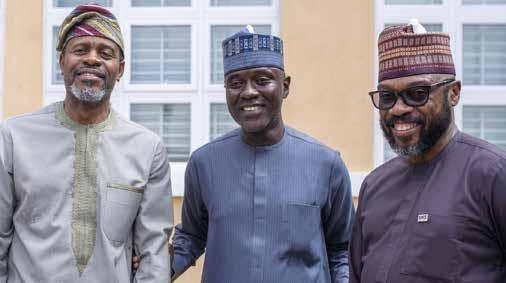
inauguration of the restored Kano Digital Industrial Park, refurbished in collaboration with IHS Nigeria in Kano… recently
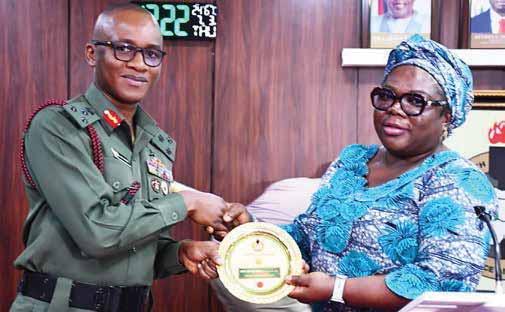
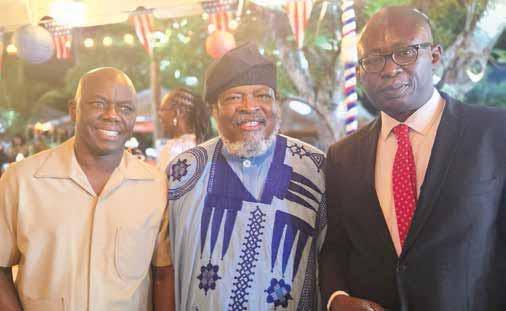
www.thisdaylive.com


opinion@thisdaylive.com
FCT INFRASTRUCTURAL TRANSFORMATION
The FCT Administration is committed to providing vital infrastructure, writes RACHEL USMAN
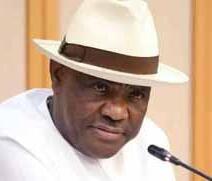
ENERGY SECURITY: POWERING
NIGERIA’S FUTURE NMDPRA is driving Nigeria’s transition to a gas-powered economy, reckons AWAAL GATA
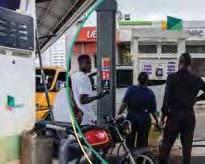
EDITORIAL THE STRIKE OF FCT TEACHERS
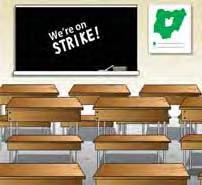
ACTION: THE LANGUAGE OF LEADERSHIP
Greatness does not lie in the plans made, but in the action taken, argues LINUS OKORIE
Words have power, but without action, even the most inspiring plans fade into oblivion. Ideas spark innovation, push boundaries, and inspire transformation. However, without action, even the most ground-breaking ideas remain more than daydreams. Consider the ambitious goals and plans left unfulfilled simply because they never moved beyond words. A motivational speech can momentarily inspire but lack the transformative impact that real, concrete actions achieve. The truth is simple: action is the language of leaders, and it is this that differentiates dreamers from achievers.
Our modern world is filled with words; social media posts, motivational quotes, and endless advice on how to reach our goals. We are constantly absorbing content that encourages us to aim higher, dream bigger, and do Nevertheless, words alone do not lead to change. Why, then, do we often struggle to act on our ideas?
Studies reveal that humans are wired to feel satisfaction even when they merely plan or talk about a goal. This phenomenon, known as “intention satisfaction,” can make us feel as though we have accomplished something simply by expressing it. Yet this illusion of progress fades when reality fails to meet the promise. As Jim Rohn once said, “What is easy to do is also easy not to do.” It is easy to talk about aspirations, and equally easy to avoid the difficult task of one’s hands dirty to realise them.
found that fear activates the part of the brain associated with the fight-or-flight response, which can cause paralysis, making one shy away from actions that feel risky or uncertain. Failure, though uncomfortable, is a natural part of the journey. When leaders reframe failure as feedback, it no longer feels like a stopping point but a tool for improvement.
Two, Procrastination: Even with clear goals, many delay taking action because they do not perceive it as urgent, so they push it aside. This tendency to avoid can trap one in a cycle of delay and regret. To overcome procrastination, experts
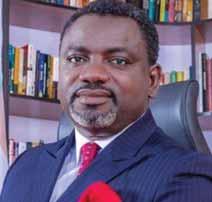
mentor, or accountability partner who can help keep you on track. Share your goals and the steps you plan to take. Knowing someone else is invested in your progress can motivate you to follow through. Great leaders and innovators are not simply thinkers; they are doers. Elon Musk exemplifies relentless action in the face of scepticism. From Tesla to SpaceX, his business ventures were risky ideas that transformed into revolutionary industries. His willingness to act decisively, despite criticism, shifted the technology and energy sectors. After surviving an by the Taliban, Malala Yousafzai spoke out and took global action by creating the Malala Fund to support education for girls worldwide. Her actions transformed personal resilience into a worldwide movement for girls’ education.

recommend “micro-deadlines” or timeblocking, where a leader allocates specific, uninterrupted times to take action on each aspect of a project.
Beyond implementation, action helps to test, refine, and make ideas adaptable to the real world. This is particularly true in leadership, where decisive steps often show people that a vision is not only possible but within reach. A 2021 study from McKinsey found that companies whose leaders acted quickly and decisively saw 25% higher success rates in achieving growth targets. The lightbulb did not illuminate the world because Thomas Edison merely conceived the idea or talked about it; it took countless adjustments, and failures. Each action he took moved him closer to making his idea a reality. This shows that leaders who take action propel themselves, their teams, and their organisations toward real results.
Despite understanding the importance of action, leaders often face internal and external challenges that make followthrough difficult. Fear, procrastination, overthinking, and perfectionism are frequent culprits.
One, Fear: Fear can paralyse even the most capable leaders. This is one of the biggest inhibitors of action, encompassing fear of failure, fear of judgment, and even fear of success. Psychologists have
Three, Overthinking: Leaders can become trapped in analysis paralysis, weighing every potential risk until the opportunity has passed. Action does not require perfection; it requires progress. Harvard Business Review emphasises that “good enough” is often good enough, and immediate steps are than waiting for the ideal time to act.
Four, Perfectionism: This is the enemy of progress. Perfectionism feeds on the fear that any flaw will negate the entire effort, and it can be incredibly limiting. The need to get everything “just right” can stall action. Leaders who hold themselves to impossible standards end up delaying decisions and, ultimately, their teams’ and organisations’ progress. Shifting focus from “perfection” to “excellence” allows leaders to make informed decisions faster, balancing high standards with achievable goals. As author Elizabeth Gilbert rightly
The good news is that each of these obstacles can be overcome with deliberate strategies and a shift in mindset. Recognise that done is than perfect. Greatness does not require perfection; it requires consistent progress. Start by completing small, manageable tasks. By doing so, you build confidence and demonstrate to yourself that action, not perfection, is what truly Seek out a friend,
These examples show that a series of deliberate steps turn possibilities into realities. When leaders take decisive action, it sends a powerful message to those around them. Action creates momentum, a “compounding effect” that transforms small steps into substantial achievements. Think of it like pushing a boulder: the initial movement requires effort, but once it is rolling, it gathers energy and becomes unstoppable. Moreover, this momentum does not just benefit the leader; it inspires teams to believe in the vision and feel a part of something larger than themselves. Action signals to others that their efforts will yield results, motivating them to commit to the collective goal. As the saying goes, “Success breeds success.” Teams become more engaged, motivated, and willing to invest in a vision when they see it unfolding in real-time.
In every field, action is the mark of true leadership. It means moving from words to deeds and turning ideas into impact. Leaders who commit to action are those speaking the language of leadership. These are the ones who continuously shape industries, inspire movements, and leave legacies. Leaders understand that greatness is not about waiting for the perfect plan or the flawless execution but taking small, meaningful steps and empowering your team to do the same.
In summary, to be a leader whose impact endures, remember: greatness does not lie in the plans made or the words spoken. It lies in the actions taken. The path from good to great is paved by leaders who act decisively and courageously.
• Okorie MFR is a leadership development expert spanning 30 years in the research, teaching and coaching of leadership in Africa and across the world. He is the CEO of the GOTNI Leadership Centre.

The FCT Administration is committed to providing vital infrastructure, writes RACHEL USMAN
FCT INFRASTRUCTURAL TRANSFORMATION
In the capital of a country that often forgets to finish what it starts, Abuja, Nigeria’s federal capital these past few days witnessed not a spectacle but stewardship, with the unveiling of completed infrastructure projects within a two-week period to celebrate President Bola Ahmed Tinubu’s second anniversary.
Over two weeks, the strength of policy met the power of personality, and perhaps more than any other in recent memory, exposed the depth of FCT Minister Ezenwo Nyesom Wike’s political magnetism and the breadth of his economic reform impact.
Without doubt, and despite varying shades of opinion, Wike has excelled in the area of infrastructure. As FCT minister, he has completed some abandoned projects and initiated new ones,
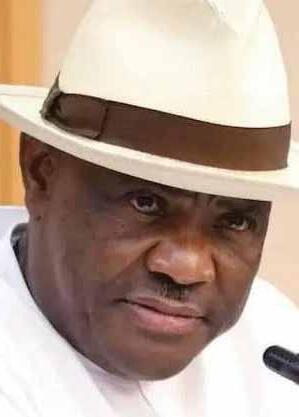
thus fulfilling the promises he made.
Of FCT’s �1.81 trillion Statutory Budget for the 2025 fiscal year, which has been passed, the Minister had explained that N1.31 trillion was earmarked for capital projects, representing 72.3 per cent.
The minister’s aim was to achieve a realistic budget performance, and said that the N1.31 trillion of the proposed capital budget was for the development of infrastructure, with emphasis on completion of ongoing projects, as well as other counterpart-funded related projects aimed at enhancing socio-economic activities in the territory.
If infrastructure here is the narrative, the FCT Minister set out to prove that indeed leadership must be backed with proof of performance and not noise. Thus the incredible amount of work that’s been done on the road network since Wike came on board as minister remains the most poignant.
On Tuesday, 10th June 2025 Nyesom Wike hosted President Bola Tinubu to commission the newly rehabilitated International Conference Centre, Abuja.
Swiftly following, the next day, the Arterial Road N16 (Shehu Shagari Way), from Ring Road 1 (Nnamdi Azikiwe Way) to Arterial Road N20 (Wole Soyinka Way), Gishiri and other roads in Katampe District were flagged-off.
This unrelenting drive and passion for results threw many off-guard and earned Wike the respect and admiration of friends and foes alike, proving even to critics, that what sets him apart is his unwavering commitment to delivering on his
Same week in June also saw the President commissioning the newly constructed LeftHand Service Carriageway of Outer Southern Expressway (OSEX) Stage II, by Efab Sunshine Estate, from Ring Road I (RRI) Junction to Wasa Junction.
On Monday, 16th June, 2025, the newly constructed Arterial Road N5 (Obafemi Awolowo Way), from Life Camp Junction to Ring Road 3 (RR3), was commissioned, and followed the
day after with the flag-off of the design and construction of a new Independent National Electoral Commission (INEC) Headquarters, Maitama, Abuja. Wednesday the 18th saw the commissioning of the newly constructed RightHand Service Carriageway of Inner Northern Expressway (INEX), from Ring Road 3 (RR 3) along INEX by Bridge over Railway Lines, to Outer Northern Expressway (Murtala Mohammed Expressway).
Then came the commissioning of the newly constructed Collector Road CN2 (Zakari A. Kyari Street), from Arterial Road N11 (Ahmadu Bello Way) in Mabushi, to Judges quarters in Katampe. Wike’s vision and commitment, unlike any other minister in the recent past, to delivering such quality projects in record time, are no doubt hallmarks of bringing his signature style of leadership to the forefront, driving projects that will have a lasting impact on the lives of residents and visitors alike.
Since August 21, 2023, when Wike assumed office, it has been from one significant achievement to another such that even the blind can see that change is enveloping residents, and it is one aspect of infrastructural development that can be felt by all.
The projects inaugurated cut across the Abuja city centre, the satellite towns and the rural areas, reflecting the FCTA’s commitment to inclusive development, and further highlighting the magnitude of development achieved so far.
We should not forget the opening up such rural communities, like the commissioning of newly constructed access roads by EFCC Academy Site in Giri District Abuja, and the newly rehabilitated Aguma Palace – Radio Nigeria – New Market Road, Gwagwalada Area Council as well as the newly constructed Collector Road CN8 (Asuquo Okon Street), by Police Service Commission, from Arterial Road N5 (Obafemi Awolowo Way) to Arterial Road N1, and other connecting roads in Dakibiyu District, and the commissioning of the newly constructed road from A2 Junction (Abuja – Lokoja Road) to Pai Town are clear indications that its not all about urban centers.
Other projects commissioned within the period include the newly constructed Road, in Abuja Municipal Area Council (AMAC), the dualized and upgraded Ushafa to War College/ Army Check Point roads, and other ancillary roads in Bwari Area Council, as well as the newly constructed interchange bridges of Arterial Road N20 (Wole Soyinka Way) over Outer Northern Expressway (Murtala Mohammed Expressway).
Exiting these projects from the budget cycle thus paves way for new projects, and further reiterates the commitment of the FCT Administration to provide the necessary infrastructure and ensure their sustainability in the FCT. The priority is to improve the quality of life for all FCT residents, and Wike says he’s dedicated to delivering projects that meet their needs and expectations. This is the first time such is happening.
With the commissioning of the Greater Abuja Water Supply Network, Loops 1, 2, 5 & 6 of the Federal Capital City, Abuja, and the two bus terminals, at Mabushi and Kugbo, transportation as well as other critical areas such as health, education are being touched.
Wike’s trajectory on the FCT is undeniable. The numerous ongoing projects, through firstclass infrastructure, are a testament to his tireless efforts to transform the nation’s capital into a hub of development and growth.
A visionary leader and a paragon of excellence, the FCT Minister is leaving an indelible mark on FCT’s socio-economic landscape, and an enduring narrative under his stewardship.
Love him or hate him but you cannot ignore him, the opportunity to deliver the dividends of democracy to FCT residents is a testament that Wike is a character that shines through hard work, diligence, as well as commitment to service and humanity.
• Usman writes from Katampe, Abuja
NMDPRA is driving Nigeria’s transition to a gas-powered economy, reckons AWAAL GATA
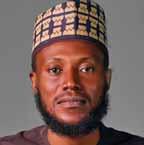
ENERGY SECURITY: POWERING NIGERIA’S FUTURE
There are moments in a nation’s history when a single bold decision rewires the entire system and restores sanity to an industry long ruled by chaos. For Nigeria, that moment arrived in May 2023, when President Bola Ahmed Tinubu made the daring choice to remove the petrol subsidy. That decision, painful as it was for many, did not just free up fiscal resources. It catalysed the most transformative era in Nigeria’s energy sector since independence.
But while the headlines focused on the end of fuel queues and rising pump prices, a quieter revolution was unfolding, with the Nigerian Midstream and Downstream Petroleum Regulatory Authority (NMDPRA) at the centre of it. The authority has become one of the most effective regulatory institutions in post-PIA Nigeria. Together, the President’s political will and Farouk Ahmed’s technocratic clarity have redefined what energy security means for Nigeria.
When the Petroleum Industry Act (PIA) was signed into law in 2021, it was widely celebrated as a legislative landmark. But laws are only as powerful as the hands that enforce them. The PIA merged three erstwhile regulatory bodies—the Department of Petroleum Resources’ downstream division, the Petroleum Equalisation Fund, and the Petroleum Products Pricing Regulatory Agency—into a single streamlined agency: the NMDPRA. It was a necessary consolidation to untangle decades of bureaucratic overlap, but its success hinged on leadership. This paved the way for the emergence of Engr. Farouk Ahmed.
Armed with over three decades of industry experience, Farouk didn’t just inherit a new regulatory agency; he repositioned one. From licensing to market surveillance, every touchpoint has been automated. This is not the old petroleum regulatory playbook of backroom deals and selective approvals. This is the rule of law, encoded in software and policy.
Yet perhaps the Authority’s most significant achievement has been restoring credibility to Nigeria’s energy market. Under the subsidy regime, energy security was a myth—a politically convenient mirage. Products were hoarded, smuggled, or subsidised into oblivion. Refineries were inactive. Marketers were cartelised. And the average Nigerian bore the brunt of an inefficient and manipulated system.
President Tinubu’s removal of the subsidy did more than unshackle the budget. It provided NMDPRA with the space to do what institutions dream of: reform without interference. And to the President’s enduring credit, he gave Farouk Ahmed the autonomy—and the political cover—to act without fear or favour. That autonomy is paying off.
Since deregulation, Nigeria’s downstream sector has blossomed into a competitive, liberalised marketplace. The number of marketers sourcing and distributing petroleum products has risen, and monopolies once entrenched by opaque practices are being dismantled. New refineries—from the 650,000 BPSD Dangote facility to smaller modular plants—are coming online, with the NMDPRA ensuring rapid licensing and compliance oversight.
But perhaps most crucial is how this revolution touches the lifeblood of every industrial society: energy security. Energy security isn’t a buzzword; it’s the foundation on which nations rise or fall. No economy can function—let alone industrialise—
without reliable access to petroleum products, gas, and electricity. The NMDPRA understands this. That’s why it developed the National Strategic Stock framework, a forward-looking buffer to prevent future supply disruptions. It’s why the Authority has invested heavily in gas infrastructure, issuing distribution licences, boosting CNG conversion centres, and commissioning processing plants that collectively add over three billion standard cubic feet of gas per day. For Nigeria, gas is no longer the fuel of the future—it is the fuel of the present. Through initiatives like the Decade of Gas, PiCNG, and the Midstream and Downstream Infrastructure Fund (MDGIF), the NMDPRA is driving Nigeria’s transition to a gas-powered economy. Whether for vehicles, industries, or households, natural gas now represents Nigeria’s best shot at clean, affordable, and abundant energy. And while the old cartel may have hoped to frustrate this shift—launching lawsuits, sponsoring malign media and pulling familiar strings— the Authority has remained undeterred. Farouk Ahmed, with the full support of President Tinubu, has stood his ground. Regulatory frameworks are now enforced without bias. Market pricing is transparent. And no company, no how powerful, can hold the nation to ransom.
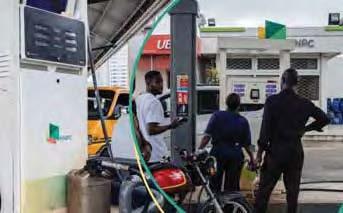
This is what happens when visionary reform meets fearless execution. When a President refuses to be held hostage by vested interests, and a regulator is protected from interference. Nigeria’s energy sector is not only stable—it is now investable. And the benefits are already rippling across the economy, from jobs in refining and pipeline construction to lower emissions from CNG vehicles.
Of course, challenges remain. Energy poverty is still widespread. Infrastructure deficits linger. And the global transition to renewables looms large. But for the first time in decades, Nigeria has built a credible foundation for progress. That foundation is anchored in energy security, regulatory certainty, and the courage to do what is hard. It is tempting to measure leadership in speeches and slogans. But true reform is quiet. It happens in boardrooms, in data centres, in policy drafts, and enforcement notices. It happens when a President backs his technocrats. And when technocrats, in turn, rise to the moment. With NMDPRA, Nigeria has found that rare thing: a regulator that regulates. The result? A sector once defined by dysfunction is now humming with activity. That, more than anything else, is how nations rise. One policy, one agency, one free hand at a time.
•Gata, public affairs analyst, writes from Abuja
THISDAY MONDAY JULY 7, 2025

Editor, Editorial Page PETER ISHAKA
peter.ishaka@thisdaylive.com
THE STRIKE OF FCT TEACHERS
Primary education is fundamental to learning. It’s time to end the strike
schools.”
For the past four months, the teachers of over 400 public schools in the Federal Capital Territory (FCT) have been on strike. Primary school education is the bedrock of learning. The rot in the sector is basically because of the collapse of sound learning at those crucial early stages of life. The best practice at that level is to ensure that schooling is strengthened and not weakened as it is now the case in the FCT. With learning activities paralysed in the six area councils, the strike has further exposed deeper systemic issues within Nigeria’s educational sector. This is a stalemate that bodes ill for the country, and we urge all the parties to the dispute to ensure a quick resolution so that the children can return to school.
The strike was sparked by failure of the chairmen of the area councils to implement the N70,000 minimum wage agreement signed in a tripartite Memorandum of Understanding on 11 December 2024. It is therefore difficult to find any justification for the refusal of the council authorities to enter a meaningful dialogue on the issue. This disruption will have long-term consequences, particularly on the pupils.


Policymakers and administrators must work together with teachers and communities by increasing funding for education
and improving their welfare and working conditions
T H I S D AY
EDITOR SHAKA MOMODU
DEPUTY EDITOR WALE OLALEYE
MANAGING DIRECTOR ENIOLA BELLO
DEPUTY MANAGING DIRECTOR ISRAEL IWEGBU
CHAIRMAN EDITORIAL BOARD OLUSEGUN ADENIYI
Many stakeholders, including the National Association of Nigerian Students (NANS) have waded in by pointing attention to the class dimension of the crisis since children of the affluent no longer attend public schools.
“This unacceptable situation continues to deny thousands of children—particularly those from low-income families—their fundamental right to basic education,” its President, Olushola Oladoja, stated while promising a mass protest.
“Despite multiple appeals, correspondences, and calls for constructive dialogue with the relevant authorities, no meaningful steps have been taken to resolve the impasse or reopen the affected
EDITOR NATION’S CAPITAL IYOBOSA UWUGIAREN THE OMBUDSMAN KAYODE KOMOLAFE

T H I S D AY N E W S PA P E
EDITOR-IN-CHIEF/CHAIRMAN NDUKA OBAIGBENA
GROUP EXECUTIVE DIRECTORS ENIOLA BELLO, KAYODE KOMOLAFE, ISRAEL IWEGBU, EMMANUEL EFENI
DIVISIONAL DIRECTORS SHAKA MOMODU, PETER IWEGBU, ANTHONY OGEDENGBE
DEPUTY DIVISIONAL DIRECTOR OJOGUN VICTOR DANBOYI
SNR. ASSOCIATE DIRECTOR ERIC OJEH
ASSOCIATE DIRECTOR PATRICK EIMIUHI
CONTROLLERS ABIMBOLA TAIWO, UCHENNA DIBIAGWU, NDUKA MOSERI
DIRECTOR, PRINTING PRODUCTION CHUKS ONWUDINJO TO SEND EMAIL: first name.surname@thisdaylive.com
Letters to the Editor
While the administration of the primary schools falls under the purview of the six area councils and their respective Local Education Authorities (LEAs), the Minister of Education, Tunji Alausa, has already intervened. He needs to sustain the momentum in the mediation efforts and end the disturbing situation among stakeholders. This will help reaffirm government's commitment to the welfare and dignity of teachers, as well as foster constructive dialogues and prevent any disruption to children’s education arising from unresolved administrative sabotage. It is also heartwarming that the Minister of the FCT, Nyesom Wike has reached an agreement to end the strike with leaders of the NUT and the chairmen of the six Area Councils. The minister reportedly had resolved to withdraw 10 per cent of the Area Council’s internally generated revenue (IGR) for the next six months to pay the teachers. We urge that this should be implemented immediately.
A government that allows primary school teachers to go on strike for months is inadvertently saying that education is not important. Even if the responsibility for primary schools lies with the councils, Wike must appreciate the fact that in the long run, the blame will come to him.
The FCT teachers' strike is another wake-up call for the nation's leaders to reevaluate their priorities by recognising the value of the educators. By investing in teachers, the nation is investing in its future and in the potential of its children. Without teachers, we cannot build a functional society. Policymakers and administrators must work together with teachers and communities by increasing funding for education and improving their welfare and working conditions. But the immediate challenge is to end the current strike by the FCT teachers so that the children can return to school.
Letters in response to specific publications in THISDAY should be brief (150-300 words) and straight to the point. Interested readers may send such letters along with their contact details to opinion@thisdaylive.com. We also welcome comments and opinions on topical local, national and international issues provided they are well-written and should also not be longer than (750- 1000 words). They should be sent to opinion@thisdaylive. com along with photograph, email address and phone numbers of the writer.
ADC COALITION: OLD WINE, NEW BOTTLE WITH FRIENDS LIKE THESE, WHO NEEDS ENEMIES?
As Nigeria edges closer to the 2027 general elections, the familiar ritual has begun: political realignments, strategic defections, and coalition building. The most recent manoeuvre is the emergence of a bloc under the banner of the African Democratic Congress (ADC), a coalition of major political figures now presenting themselves as an alternative to the ruling All Progressives Congress (APC). On the surface, this might appear to bode well for democratic competition. After all, democracy thrives on choice. The emergence of a credible opposition or the appearance of one lends the electoral process a veneer of vibrancy. Yet, scratch beneath the surface and the gloss begins to fade.
This so-called alternative is not new. It is merely the familiar repackaging. Many of the actors behind this latest alliance have, at various times, been stalwarts of the APC or the Peoples Democratic Party (PDP). They have governed before. They have been in the corridors of power. Their antecedents are known and, in many cases, underwhelming. To that extent, this coalition is hardly a rupture from the past. It is, in effect, old wine in a new A rebranding, not a reinvention. The leopard has not changed its spots. Nigerians would do well not to be swept away by the theatrics. In the 2023 general election alone, there were 18 presidential candidates. And yet, national discourse remains shackled to the same
familiar names, the so-called political heavyweights who re-emerge every four years cloaked in the promise of reform. What Nigeria needs is not recycled ambition but a deeper civic discernment. If a candidate has held office before, interrogate their record. If they haven’t, examine their private and professional integrity. What values have they lived by? What have they built outside politics?
Our future will not be shaped by political choreography, but by the vigilance and judgement of the electorate. Let us not mistake motion for progress. Democracy must be more than a revolving door of yesterday’s men.
•Kesiena Igho Oghoghorie, Lawyer & Public Policy Analyst, Abuja
As NKde.
Russia is thought of as an international bully ruled by a despot and now it is working to confirm that. The on Ukraine are unforgivable, unjustifiable and have led to so many deaths in both countries but that was just the start.
The latest act of international defiance was to recognise Afghanistan's Taliban government, so far the only ones that have. The people of Afghanistan are mostly the same as in any country but the religious based government repress their people in so many ways although women are repressed in all ways.
If Russia wants new friends they could withdraw from Ukraine and this would be so appreciated that other countries would look to re-establish contact. Hang with some of the good guys, not the worst of the worst.
Melbourne, Australia
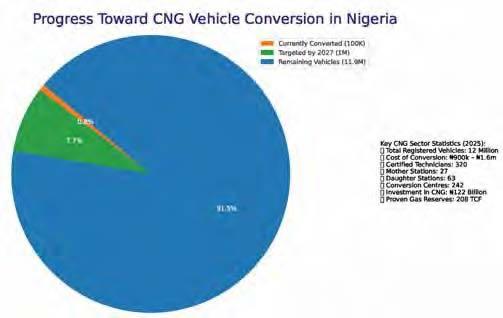
Sunday Ehigiator
A report by Agusto & Co. has revealed that the cost of converting a vehicle to run on CNG in Nigeria, which ranges from N900,000 to N1.6 million, depending on engine type and vehicle specifications, forms big hindrance to the full uptake of Nigeria’s CNG, despite N122 billion investment, and 208 Trillion Cubic Feet (TCF) gas reserves.
This represents a significant financial hurdle for most private motorists and small-scale commercial operators, especially in the absence of scalable consumer financing options, with the adoption rate still below 1 per cent.
According to the report, “The economic logic for CNG adoption in
Nigeria is compelling. As of April 2025, a standard cubic metre (SCM) of CNG costs N230, powering a vehicle for approximately 10 kilometres, whereas the same journey would have required an estimated N891 worth of petrol.
“This 74 per cent cost saving is particularly attractive for commercial operators, who dominate the current conversion base. By the first quarter of 2025 (Q1 2025), the Presidency asserts that not less than 100,000 vehicles, primarily taxis, buses, and tricycles, had been converted, supported by government incentives and concessional gas pricing.
“However, this figure represents less than 1 per cent of Nigeria’s estimated 12 million registered vehicles, highlighting the considerable journey ahead for
best performing index, attributable to reforms by the federal government.
The Nigerian Exchange Limited (NGX) Oil & Gas Index depreciated by 10.12 per cent in its half year (H1) 2025 performance, becoming the only index remain south amid the NGX All-Share Index advancing by 16.57 per cent in H1 2025. As the NGX All-Share Index advanced to 119,978.57 basis points in H1 2025, about 16.57 per cent increase from 102,926.40 basis points it opened for trading. The Oil & Gas index opened this year at 2,712.06 basis point, about 10.12 per cent YtD decline to close June 30, 2025 at 2,437.47 basis points. On the flipside, the NGX Consumer Goods Index gained 52.21 per cent YtD to lead others as the
A review of stocks that constitute the NGX Oil & Gas index showed that TotalEnergies Marketing Nigeria Plc and Etern Plc, out of seven listed OIl & Gas companies appreciated in stock price.
For instance, the stock price of Eterna closed June 30, 2025 at N43 per share, gaining 76.95 per cent YtD from N24.30 per share it closed for trading in 2024. On the other hand, TotalEnergies Marketing Nigeria advanced by 1 per cent to close June 30, 2025 at N705.00 per share from N698.00 per share it closed for trading in 2024. In the period under review, the stock price of Conoil recorded the highest decline by percentage points,
meaningful market penetration. In addition, Nigeria’s CNG infrastructure remains heavily concentrated in the South-West and South-South, reflecting the location of pipelines and compression hubs.”
The report added, “As of April 2025, the network comprised 27 mother stations, 63 daughter stations, and 242 certified conversion centres. The North and South-East lag significantly, relying on expensive virtual pipeline solutions due to limited pipeline access and high logistics costs.
“Government intervention has been a crucial catalyst. The Presidential Compressed Natural Gas Initiative (PCNGI), inaugurated in 2023, embodies this policy-driven momentum. It has articulated ambitious targets, including the
dropping by 39.44 per cent YtD to close June 30,2025 at N234.50 per share from N387.2 per share it closed for trading in 2024.
This was followed by MRS Nigeria with a decline of 28.42 per cent to close June 30, 2025 at N155.90 per share from N217.80 the stock opened for trading this year.
Aradel Holdings’stock price plunged by 13.96 per cent to close N514.50 per share as of June 30, 2025 from N598.00 per share it closed for trading in 2024.
While the stock price of Oando dipped by 16.74 per cent to N54.95 per share, Seplat Energy Plc’s shares declined by 4.39 per cent to close June 30, 2025 at N5,450.00 per share.
Analysts attribute the performance of the sector to late filing of 2024
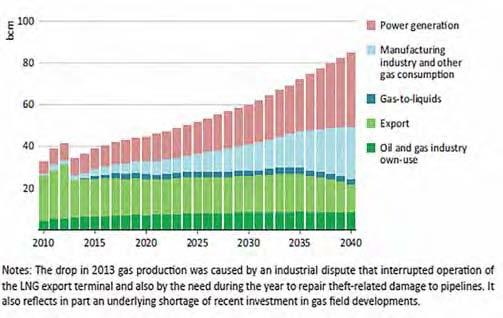
establishment of 150 new refuelling stations and facilitating one million CNG vehicle conversions by 2027.
“To de-risk private investment, the Midstream and Downstream Gas Infrastructure Fund (MDGIF) authorised N122 billion in October 2024 to co-finance critical gas infrastructure projects, thereby encouraging greater private-sector participation. In response, major industry players are spearheading expansion.
“Leading operators such as NIPCO Gas, Powergas, and BOVAS Group have adopted vertically integrated models, spanning compression, distribution, and inhouse conversion services. Others, including Tetracore Energy and Green Fuels, are investing in mobile refuelling units (MRUs) and regional
result and accounts and declaring dividend payout to investors.
Speaking, the National Coordinator Independent Shareholders Association Of Nigeria (ISAN). Mr. Moses Igbrude, attributed the NGX Oil & Gas -.10.12 per cent YtD performance to late filing of 2024 audited result and declaration of dividend payout.
He noted unstable global oil prices over President Donald Trump policies has sent a signal to investors to trade the OIl & gas stocks with caution.
He added the current dwindling performance in the Oil & gas sector on the NGX is a reflection of price correction.
On his part, the Vice President, Highcap Securities Limited, Mr. David Adnori, said, “The OIl &
partnerships to expand access.”
It added that the lack of a robust maintenance ecosystem (only 320 certified technicians nationwide) poses risks to service reliability, especially compared to markets like Argentina, which boasts over 5,000 certified CNG technicians.
Despite evident progress, the report said Nigeria’s CNG industry continues to grapple with significant systemic challenges that constrain its expansion.
“Foremost among these are economic and financial barriers: the upfront conversion cost of N900,000 to N1.6 million per vehicle ($580 - $1035) at $1,545/$ remains prohibitive for most private motorists and small commercial operators. This is higher than in India ($300 – $500), Pakistan ($400 – $600) and Egypt
Gas sector was propelled in recent times by Oando.
“However, since the beginning of the year, Oando and Aradel Holdings have taken a serious beating. Totalenergies also lost momentum as the released 2024 unaudited result and accounts was not impressive, leading to investors pulling out.
“The NGX Oil & Gas Index performance has to do with listed companies not with the industry itself. Investors’ confidence around Oando dropped and Aradel Holdings could not sustain the high tempo which it migrated from NASA to NGX. Totalenergies did not perform well in the fourth quarter of 2024.
All these have impacted on the NGX Oil & Gas Index in its YtD
($500 – $800). Although financing initiatives such as the Credit Access for Light and Mobility (CALM) Fund have been introduced, their penetration and impact remain limited.
“The industry’s exposure to exchange rate volatility further complicates affordability. While feedgas is priced concessionally at $1.57/MMBtu, transactions are settled in naira, leaving downstream prices vulnerable to depreciation. This risk is exacerbated by reliance on imported conversion kits and refuelling infrastructure, which are subject to global supply chain disruptions and foreign exchangedriven cost inflation.
performance, “ he added. But the Managing Director, Globalview Capital Limited, Mr. Aruna Kebira, attributed the downward movement in the NGX Oil & Gas index to profit-taking in Oando, among other stocks. He said, “The management of Oando proposed a bonus of one new ordinary share for every 12 existing ordinary shares and other listed companies’ bonuses have a terminal date of 90 days. The management put a bonus for three years, which is to be credited for 36 months. Investors felt the management of Oando was taking them for granted and opted to take profit.”
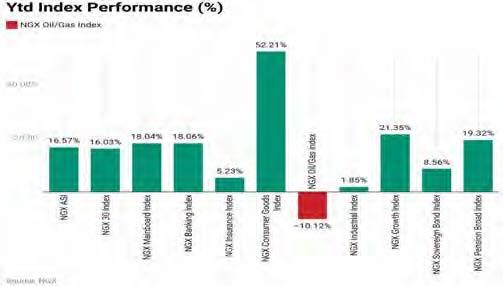
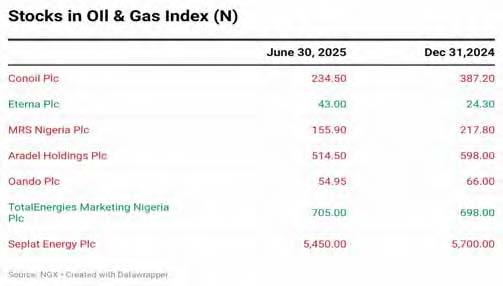
H2: Analysts Forecast Stronger Capital Inflows, Bond Market Gains, FX Stability
Nume Ekeghe
Nigeria’s investment climate is showing signs of renewal, as analysts at FSDH Capital and Cordros Capital forecast improved capital inflows, stronger bond market performance, and gradual exchange rate stability in the second half of 2025.
Their optimism follows the data showing a sharp recovery in foreign portfolio investment (FPI), which surged to $5.46 billion in Q1 2025, up from $1.05 billion in the same period last year. The rebound, they said, reflects growing investor confidence spurred by recent FX reforms and tight monetary policy.
According to FSDH, “Foreign capital inflows have gradually improved, particularly in Q1 2025, where foreign portfolio investment increased to $5.46 billion compared to $1.05 billion in Q1 2024. “Foreign inflows were driven by improved investor sentiment on the back of FX market reforms, and attractive fixed income yields, particularly from the CBN’s OMO bills.
Cordros Capital, in its 2025 Mid-Year Outlook, echoed similar views, stating: “We expect that sustained FX reforms, monetary policy tightening, and favourable yields will continue to support foreign investors’ participation in Nigeria’s capital markets.”
Fixed-income securities particularly sovereign bonds and OMO bills have become the most attractive assets for both local and foreign investors.
FSDH noted that elevated real interest rates following successive rate hikes by the Central Bank of Nigeria (CBN) have helped Nigeria stand out among frontier markets.
Cordros affirmed: “We maintain a bullish outlook on the fixed income market, driven by anticipated yield moderation and relatively stable inflation in H2 2025.”
The firm projected a total market return of 20.6 per cent for the year, underscoring the strength of the fixed-income rally.
The analysts also highlighted a gradual stabilisation of the naira,
Registration Open for Regions Leading Manufacturing Exhibition
Returning to Lagos for the 12th edition, Propak West Africa will bring together over 5,500 attendees for three action packed days in Lagos. With 250 global brands exhibiting, this years edition will be the largest yet and professionals from across the supply chain from industries
Group Business Editor
Eromosele Abiodun
Deputy Business Editor
Chinedu Eze
Comms/e-Business Editor
Emma Okonji
Asst. Editor, Energy
Emmanuel Addeh
Asst. Editor, Money Market
Nume Ekeghe
Correspondents
KayodeTokede(CapitalMarkets)
James Emejo (Finance)
Ebere Nwoji (Insurance)
Reporter
Peter Uzoho (Energy)
working in the packaging, plastics, printing and processing industries will be in attendance.
As Propak has grown over the years it has continued to attract the biggest names in the industry from all corners of the globe, including BBM Maschinenbau, Danfra Soluions, Krones AG, Milacron India, Neofyton, Piovan Group, Reifenhauser Blown Film, Sacmi, Snetor and Windmoeller & Holscher among many others internationally.
The Organisers are also delighted to welcome back many Nigerian exhibitors including Adeco Project Engineering, Ankan Group of Companies, Beaumont Industrial Services, E-One Machinery, JMG Ltd, Proxima, SBA Nigeria, Stav Ltd and Veepee Group among the largest contingent of Nigerian companies to date. This September will also see the highest number of machines on display ever at the exhibition, with more than fifteen live in action including various forms of injection and blow mould machine, sachet, packing and weighing machines including some new to the West African market.
Speakers on these stages come from the likes of Guinness Nigeria, Unilever Nigeria Plc, UAC Foods and FrieslandCampina to name just a few.
supported by increased CBN intervention, rising autonomous inflows, and improved liquidity in the official market.
FSDH added: “The return of
‘Reliance
James Emejo in Abuja
The Director-General, Budget Office of the Federation, Dr. Tanimu Yakubu, has warned that the country’s continued reliance on external donors exposes its immunization programmes to fiscal instability.
He said despite Nigeria’s dedicated efforts, only 59 per cent of children aged 12-23 months are fully immunised, far from the 90 per cent target by the World
the CBN to the FX market as a regular supplier, in addition to improved diaspora remittances and autonomous inflows, has supported FX liquidity.”
Health Organisation (WHO) with 3.1 million children lacking any doses of vaccines.
Yakubu stated this in a statement he issued after the inaugural session of the Immunization Financing Policy Roundtable Series in Abuja.
Stakeholders at the roundtable included the Budget Office of the Federation, National Primary Health Care Development Agency (NPHCDA), with support from the World Bank, Gavi, Results for Development (R4D), and the Vaccine
The narrowing spread between the official and parallel market rates, they said, is a sign that reforms are beginning to take root.
Though challenges persist
Network for Disease Control.
He stressed that the huge vaccine gap highlighted the urgent need for a resilient financing structure to ensure consistent vaccine access across the federation.
He said the meeting which focused on “Sustainable Vaccine Financing in Nigeria’s Federal Arrangement,” aimed to address the systemic challenges threatening the sustainability of the country’s immunization programmes.
Participants included
especially inflation, fiscal pressures, and global volatility—analysts agree that Nigeria is beginning to see the early rewards of difficult but necessary reforms.
policymakers, international development partners, and health sector stakeholders who sought to strategize on innovative, domestically-driven vaccine financing solutions. The roundtable emphasised that policymakers must prioritise creating a robust domestic funding system that leverages national and subnational resources, integrates immunization programmes into health sector planning, and aligns with global best practices.
Blue Economy: Oyetola Canvasses Collaboration, Innovation to Achieve Sustainability
The Minister of Marine and Blue Economy, Mr. Adegboyega Oyetola, has harped on the need for collaboration and innovation to guide efficient implementation of the National Policy on Marine and Blue Economy and drive long-term sustainability for the industry.
He noted that this is critical to improving Nigeria’s marine governance, building public trust, ensuring regional competitiveness, and attaining standardisation at par with global best practices.
This was the focus of his address at the second quarterly Citizens and
Stakeholders Engagement themed “Strengthening Collaboration for Effective Implementation of the National Policy on Marine and Blue Economy,” which held in Lagos.
Oyetola explained that as the ministry moves towards implementing it’s ten-year National Policy, there exist a need for cross fertilization of ideas with industry practitioners, the academia and policy makers to ensure efficient implementation and sustainability.
He said: “The approval of the National Policy on Marine and Blue Economy by the Federal Executive Council marks a critical turning point providing a comprehensive
framework to unlock value across our marine ecosystems. The transition to a sustainable blue economy model is not automatic; it requires innovation, investment, policy coherence, and human capital development.
“The effective rollout of this Policy must be cross-sectoral, collaborative, and data-driven. Global trends have shown that effective citizen engagement and shared ownership of public policies yield better development outcomes.
“In a world facing complex, interconnected challenges, the voices of citizens and stakeholders are essential for driving innovation, ensuring transparency, and
enhancing the legitimacy of government action.”
Oyetola stated that the policy which cuts across port infrastructure, maritime security, aquaculture, ocean governance, marine biotechnology, renewable energy, coastal tourism, and climate resilience, places strong emphasis on capacity building, research, and the promotion of local content across the entire marine and blue economy value chain. He called for strategic contributions to further enhance industry efficiency, close existing gaps and improve coordination at all levels across the industry.
The Managing Director, APL Electricity Distribution Company(Aba Power), Ugo Opiegbe has said that the ongoing mass metering project has turned out to be a huge mutual blessing for the Disco and its customers.
The free mass metering estimated to cost N33 billion, was rolled out in May and is being implemented in partnership with four meter manufacturing firms.
It has a set target of covering no fewer than 100,000 customers in the Aba ring-fenced area comprising nine of Abia’s 17 Local Governments
before the end of last quarter of 2025.
Opiegbe said in a statement made available via e-mail that the metering project “is a win-win for both the company and customers, all critical business metrics considered”.
He explained, “more and more customers are coming daily to all our physical offices and online platforms from morning to night to express satisfaction and to pay their bills with greater enthusiasm.”
According to the Aba Power MD, customers were now happy because they arehetting value for their money and they have been freed from the entanglements of estimated billings.
“What the Aba Power Free Smart
Meter rollout has demonstrated is the immense value of transparency and integrity in business operations,” he said, adding that “customers always pay when it’s self-evident that what they are billed is what they have consumed.”
Opiegbe noted that, “customers are reluctant to pay for estimated bills even when they are billed less than the actual consumption. Transparency and integrity have no replacements either in personal or business relationships.”
While he did not disclose the revenue benefits that has accrued to Aba Power following the smart meter rollout, a source within the utility company said that it has
recorded considerable improvement. The source, who is a manager, and asked not to be named as he was not authorised to speak to the media on the issue, estimated the increase in revenue to up to 15 percent even though the meters are free.
He said that “what is so important is not so much the increase in revenue as the satisfaction on the faces of customers despite the general economic and social difficulties in the country. People come on their own to pay their monthly bills and commend us for the speed at which the meters are given out free of charge and installed daily.”
Uzoma: Value Addition, Market Access Key to Innovation in Cassava Sector
James
Emejo in Abuja Senior Special Assistant to the
President on Agribusiness and Productivity Enhancement (AgPE), Dr. Kingsley Uzoma,
Firm Wins Travel Management Company World
Chinedu Eze
Major Nigerian travel industry player, FCM Nigeria has secured the coveted title of Nigeria’s Leading Travel Management Company at the World Travel Awards 2025.
The announcement was made during the Africa & Indian Ocean Gala Ceremony held in Dar es Salaam, Tanzania, where the continent’s most distinguished travel professionals, industry leaders, and hospitality pioneers gathered to celebrate excellence across the travel and tourism sector. Receiving the award on behalf of the organisation, Group Managing Director of Finchglow Holdings, Mr. Bankole Bernard, reflected on the significance of this achievement:
“This award represents far more than recognition, it’s a powerful
validation that our unwavering commitment to innovation and customer-centric service resonates on a global scale. Throughout our journey, we’ve consistently approached travel management through the lens of relevance, responsiveness, and continuous reinvention.”
Managing Director of FCM Nigeria, Adejoju Olutimayin, attributed the company’s success to the exceptional dedication of its team and strategic partnerships that have enabled sustained growth and innovation.
“Our remarkable journey has been fundamentally shaped by our willingness to make bold decisions, forge authentic partnerships, and build a team culture where excellence is not just expected but actively cultivated every single day,” Olutimayin explained.
has said though the country remains the largest producer of cassava in the world, the real opportunity lies in value addition, agro-industrialisation, and market access.
He said production alone was not enough without processing the raw materials for exports, and job opportunities. He spoke at the opening of the World Cassava Day 2025 conference in Abuja.
He said the current focus is to reposition cassava as a strategic industrial raw material—one that powers industries, substitutes imports, creates jobs, and strengthens local supply chains.
Uzoma said achieving the needed revolution in the sector
requires that the country must empower smallholder farmers, expand processing infrastructure, and ensure quality standards across the board.
He commended the administration of President Bola Tinubu for its steadfast commitment to transforming agriculture into a cornerstone of national economic resilience.
He said through bold reforms, strategic investments, and an increasing embrace of public–private partnerships, the administration is “redefining how we address complex development challenges”.
He also noted that the Office of the Vice President, under Kashim Shettima’s leadership, had provided the
high-level coordination and political will needed to drive innovation, unlock private sector capital, and scale impact across agricultural value chains.
He said, “As part of this commitment, the federal government is taking deliberate steps to unlock the potential of cassava through improved access to finance, de-risked investment, and accelerated enterprise development.
“Institutions such as the Bank of Agriculture, the Bank of Industry, and the Nigeria Agribusiness Development Fund are supporting these efforts and helping to position cassava as a priority sector for inclusive growth.”
In his remarks, Director of
Strategy, Cavista Holdings, Mr. Kabir Shagaya, said the company was a headline sponsor of this year’s celebration, not only because cassava lies at the heart of its agricultural investment strategy, “but because we believe in its power to transform lives and strengthen national food security.
He said the entity remained a diversified investment holdings company operating across Africa, North America, and Asia, with strategic interests in technology, agriculture, financial services, and hospitality. In Nigeria alone, the company has made significant investments that are driving economic inclusion, job creation, and national development.
Ebere Nwoji
The National Insurance Commission (NAICOM)
South Africa Airways Extends Flight Service to Mauritius
Chinedu Eze
In line with repositioning itself as a network carrier promoting routes beyond Johannesburg, South African Airways (SAA) has added Mauritius to its destination.
The airline recently organized a networking lunch with top CEOs of the travel industry and showcased Mauritius as a potential holiday and special events destination for Nigerian travellers.
Speaking at the event, SAA’s Country Manager stressed, Mrs. Leke Bamtefa, said, “Today’s event is about exposing our top travel trade partners to the various opportunities that abound in Mauritius as a vibrant destination for leisure, weddings, honeymoons, and outdoor activities.
SAA has the best connections into Mauritius, and we have partnered with Emotions DMC as an experienced destination management company to provide you with expert handling services to cater for your
Africa’s Creative Industries Get a Boost with ACM 2025
Mary Nnah
In a move poised to reshape the continent’s creative economy, the Africa Creative Market (ACM) 2025 promises to empower talent, unlock access to markets, and connect creative professionals to global ecosystems, marking a significant breakthrough for Africa’s creative industries.
According to the Convener of Africa Creative Market, Dr. Inya Lawal, “Creative Bridge is more than a theme, it’s a blueprint for Africa’s creative future. This year, we are intentionally connecting the dots between talent and trade, providing the tools, insights, and exposure that creatives need to thrive in a fast-changing global landscape.”
Scheduled to take place in Lagos, ACM 2025 is expected to attract influential global voices, rising African talent, and cultural entrepreneurs poised to lead Africa’s creative industries into their next chapter. The event will serve as a launchpad for creators and investors alike, focusing on data, innovation, funding, and export readiness.
One of the key highlights of ACM 2025 is its emphasis on connecting talent and trade. The event will provide a platform for creatives to showcase their work, connect with potential clients and partners, and gain insights into the latest trends and technologies shaping the industry.
clients’ requirements on ground.”
She added that based on the performance of the route, the airline also hopes to organise a familiarization trip for members of the travel trade to Mauritius in order to have a first-hand experience of the destination.
The Managing Director of Emotions DMC, Mr. David Collard, remarked, “Emotions Destination Management Company provides inbound ground handling services
in Mauritius. We are partnering with SAA to develop Mauritius as a potential market in Nigeria and we are passionate about welcoming customers to the country to enjoy the many land and sea activities it has to offer.
Travel to Mauritius is visa free provided you have the requisite travel documents including travel insurance, air ticket and spending money of $100 per night with prebooked tour activities or proposed on arrival.”
has given new licenses to SanlamAllianz Life and General Insurance Nigeria Ltd.
The commission in a brief ceremony held in Abuja handed over the licenses to the management of the companies.
Speaking during the Ceremony, the Commissioner for Insurance, Mr. Olusegun Ayo Omosehin, emphasised the Commission’s commitment to supporting the growth of insurance entities in the country, while ensuring strict compliance with regulatory requirements. He urged the companies to prioritise good corporate governance, stability, and
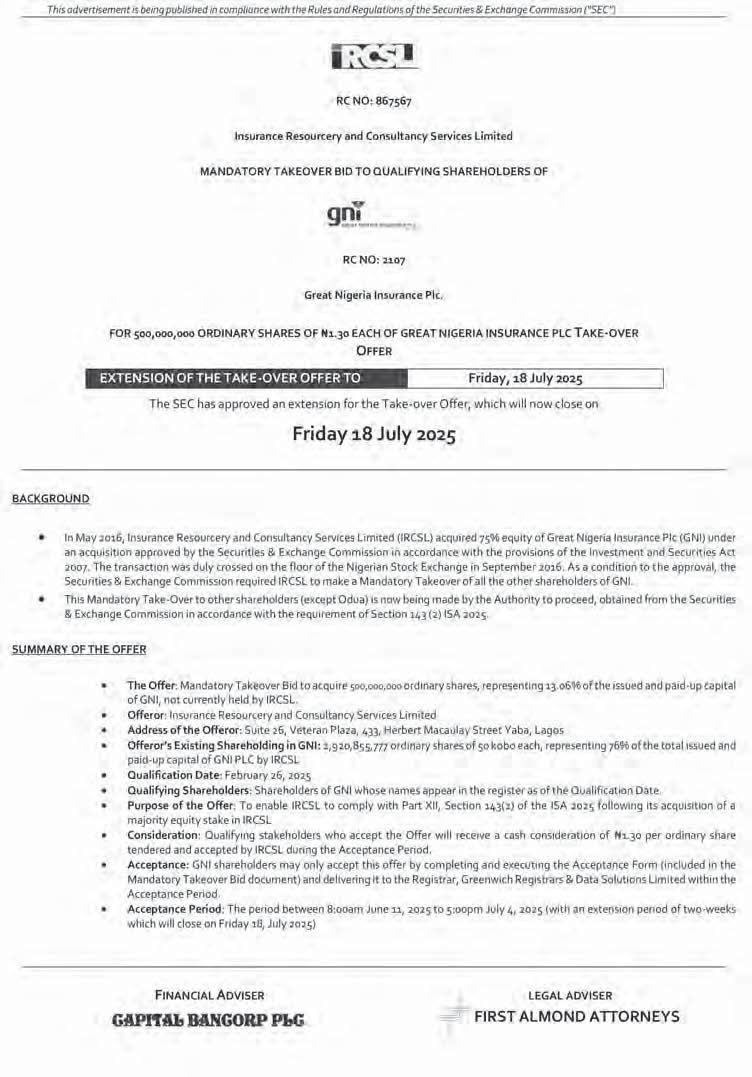
timely claims settlement processes.
He reiterated NAICOM’s dedication to removing unnecessary bottlenecks and improving the insurance industry’s overall performance. He expressed confidence that the merger would enhance the companies’ capabilities and contribute to the industry’s growth.
Just a few weeks ago, Africa’s biggest non-banking financial services powerhouse, Sanlam and Allianz,one of the world’s well recognised global insurer, had announced a significant milestone in their Pan-African expansion strategy with the successful merger of their operations in Nigeria, Managing Director of SanlamAllianz Life Insurance Nigeria, Tunde Mimiko, said the event marked a transformative chapter for Sanlam and Allianz but, even more importantly, the
Nigerian insurance industry. According to him, Our joint venture, SanlamAllianz, is the fusion of complementary strengths, global expertise, rich underwriting heritage, and local insights designed to expand access to world-class insurance solutions for millions of Nigerians.”At a time when Africa’s economic evolution demands more than traditional products. He noted that SanlamAllianz was committed to empowering individuals and businesses to build resilience, plan confidently, and drive inclusive growth. by embedding innovation and collaboration . He said the firms by coming together aim to navigate the complexities of Nigeria’s market with integrity and excellence, setting a new benchmark for the insurance industry and securing the future of our people and businesses.


































































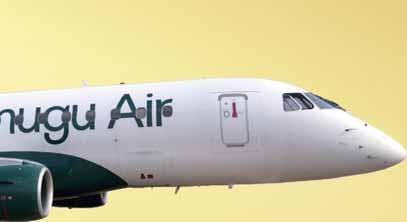






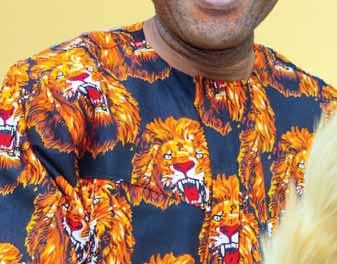




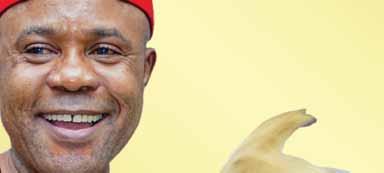
























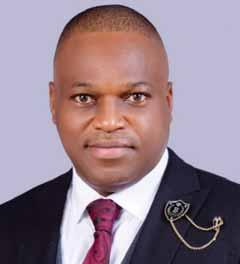



DIGITAL ASSET MARKETS
with Nicky Okoye ( digitalassets@anabelgroup.com
)

Population as an Asset
Nicky Okoye discusses the strategic impact of digital asset markets in the growth and dynamics of the global markets and dives deep into the monumental forces that are driving the growth of the next hundred trillion dollars in global GDP. In this series of essays, policy makers, legislators, enterprise executives and investors can gain strategic positioning variables as they unfold in real time.
Some very significant statistics have been released in recent times which may force a new way of understanding national populations and how these population figures are treated in economics and in national development. Recently, Goldman Sachs, the United States Investment Bank, provided a Nation by Nation projection for what they believe will be the GDP ranking of global economies by the year 2075. The Goldman Sachs’s ranking was based on empirical research, Labour force growth, investment rates, productivity convergence, Purchasing Power Parity (PPP) based exchange rate adjustments as well as projections of GDP growth in line with population growth, and population demographics. It is interesting but not surprising to me, that their ranking placed Nigeria’s economy as coming in at 5th place right behind China, India, the United States, and Indonesia, by the year 2075. What is even more inspiring is that the 2075 Nation state GDP projections placed Nigeria significantly ahead of the economies of Germany, United Kingdom, France, Canada, Italy, Spain and most of European Union Nations. Most significant on the list of Nations that were beaten, by Nigeria, in this ranking are those Nations that some Nigerians are currently spending fortunes to migrate to, in a process now known as “JAPA”. Whereas I am not trying to comment on the positive or the negative effects and fortunes of population migration, I am making an attempt to show that Nigeria’s fortunes in the future are much more well defined than people seem to realise and the best we can do for our future, today in 2025, is to strategically position our people effectively for this inevitable outcome which will usher in an era of robust economic prosperity for all Nigerians .
There is an old African saying that goes like this: “It is the greatest of men that plant Iroko trees, knowing fully well that he will not enjoy the shed from that tree”. In this respect, as we plan for the positioning the Nigerian economy and by definition the Nigerian people to benefit from the Next One Hundred Trillion Dollars (N1HTD) in global GDP and for a possible thirteen trillion ($13 T) US dollar economy, according to Goldman Sachs, by 2075, we can rest assured that we will be working, not for ourselves, but for future generations of Nigerians and that should be okay for all who term themselves to be Nation builders.
Strategic Positioning
In order to strategically position Nigeria and Africa on the required path to be active players in the global economy which will ensure that Goldman Sachs’s projections are fully realised, we must be prepared to carry out some very deliberate actions.
Strategic Human Capacity Building:
It is only when we have positioned ourselves as a productive population, then we can expect our large population to be an asset to Nigeria and subsequently Africa. Whereas the most valuable asset for Nigeria has always been its people, these human capital assets can only be enhanced when our people are very well educated. In this respect, a strategic human capital capacity strategy must be designed and implemented at all levels of our education and training value chain. Skills in Sciences, Technology, Engineering and Mathematics (STEM), must be made a priory in this respect. Efforts to expose our young people to receiving an education from the very best in the World must be implemented. I strongly advocate we design special programs that will ensure the most promising students are sent on educational exchange programs to some of the most reputable STEM institutions in
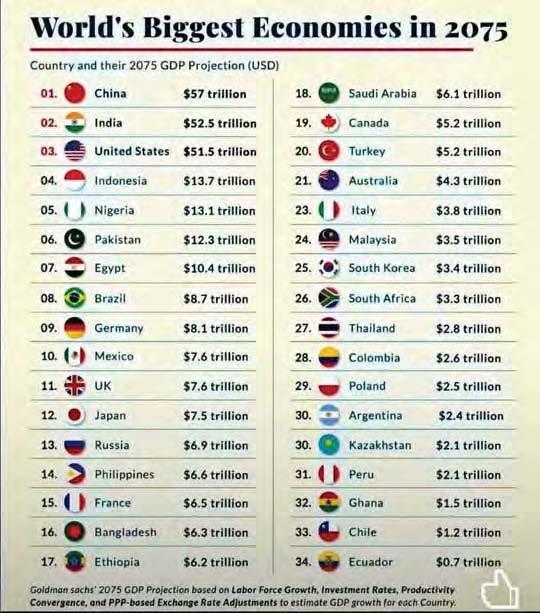
the World. Needless to say China currently has some of the World’s most prestigious STEM institutions. These include but are not limited to “The Chinese Academy of Sciences”, “The University of Science and Technology of China”, “Zhejiang University”, the “Peking University” and many more. In addition to educating our young people in the technologies and sciences of the future, we also need to expose them to work ethics and global experiences that would redefine their work culture in line with global best practices. Investment Infrastructure: In many conversations, when the word “infrastructure” is mentioned, it is most likely a reference to roads, bridges and power plants. However the infrastructure that is required for a 21st century economy, especially if we hope to grow into a $13 trillion in GDP by 2075, we will need much more than just roads, bridges and energy. For instance the digital transformation going on across Nigeria and Africa, requires extensive investment in investment infrastructure. Investment Infrastructure in the 21st century includes fiber optic connections, earth stations, data centres, satellite support, blockchain hubs, special connected server farms and the telecommunications support infrastructure that enables seamless financial transactions and secure connectivity etc. In other words, as we invest in new roads and new power plants we must also invest in the infrastructure that drives our entire investment ecosystem, which in turn will ensure the growth of the national economy in line with the projections as detailed by Goldman Sachs. In effect, every sperate industrial segment must have its own investment infrastructure requirements which must form a part of the strategic planning and implementation for economic growth, investment and positioning. Let’s take the medical industry for instance, the healthcare
ecosystem requires extensive diagnostic heavy equipment which can be termed the infrastructure of the medical industry, in this respect, special strategies and funding are required to fill the gaps if this infrastructure is missing. I will address this in details when I go deeper into the digital asset markets strategies for project finance and funding.
To be very honest, as Nigerians get more affluent, it will look a bit odd if our elite continue to go abroad for medical treatment. Therefore if Nigeria expects to compete with medical tourism locations such as Turkey, Dubai and India, we must implement a very comprehensive medical investment infrastructure framework. In this same way, the maritime, aviation and even the educational industries, all have specific requirements for investment infrastructure which we must be put in place to service, maintain and position those industries for a 21st century economy. In the artificial intelligence area, the demand for extensive power and datacentres will be monumental. That datacentre bandwidth demand can be defined and calibrated now and then we can engage private and public sector institutional investors to start taking positions in this respect. This is not rocket science.
Implementation of Nicky Okoye’s Nine Pillars of National Development Strategy:
I will address the Nicky Okoye’s Nine pillars of National Development Strategy in detail, in a subsequent article, however due to its importance, I will give it a mention here:
1. Leadership: The first pillar of National Development Strategy is Leadership. We must be strategic regarding how leadership is developed and how leaders are chosen. And subsequently we
must monitor how leaders lead. Every thing rises and falls on the back of Leadership.
2. Education: From the basics, all the way up to tertiary education, is considered a pillar of National Development Strategy. The 21st century has become more of a sophisticated system of variables for which the uneducated just cannot compete fairly in such an environment.
3. Capital and Investment: Access to capital, capital formation and the structures that are required to distribute capital efficiently in a national or subnational environment is a major pillar of national development. Capital formation as defined by the Capital Markets have been extremely strategic to the rise of the western Nations. Unfortunately, African Nations have not used this strategic platform to boost economic funding and finance for enterprises. The entry of the digital asset markets presents an opportunity for African Nations to leap frog the years lost due to poor capital markets’ structures.
4. Human Capacity: Access to skilled personnel goes far beyond the education of young people. In fact, if the truth be told the education of young people in STEM areas are only considered the first key steps. Building a work force of highly trained, highly capable and very healthy people is key to National Development Strategy. The work force must be trained in specific and strategic 21st century skills and the local environment must have the healthcare facilities as well as the medical expertise to keep the working population alive, healthy and active.
5. Energy: Energy and Power has always been on the cutting edge of National Development Strategy. Once energy demand is met, great things can happen in a Nation State. On the other hand, without energy and power, nothing much can happen. Nigeria has found this out the hard way.
6. Systems: The systems for effective and efficient commerce, financial transactions, trade and so on, are imperative for National Development Strategy. In this regard, a Nation state with effective cashless financial flows for instance will grow much faster than a Nation state with old cash based transactions underlying its systems.
7. Markets: Access to markets is without question the ultimate goal of all commercial activity. It does not matter whether these markets are local or international, what is key is that an effective and sustainable National Development strategy implementation framework must be sort and be put in place for markets to operate efficiently. The entire global geo-political landscape has been over stretched recently, in terms of actions to block market access to certain nations. We saw this recently with the “2025 tariff wars” that was initiated by the United States, which affected almost every Nation on earth. Ensuring that you nation has access to global and local markets is key to National Development Strategy.
8. Government Policy: The policy of the administration of a Nation State is as important as its laws, legislation and regulatory environment. Providing a direction for growth and development can be achieved by Government policies, however in many cases this must be followed by legislation and regulation for measurement, monitoring and sustainability.
9. Risks: National Development Strategists must take into account the risks that are inherent in all attempts to implement development strategy. Risks in the geo-political space for instance, may effect a Nation’s ability to export its most valuable products due to sanctions or high tariffs being imposed by its largest trading partner. Other kinds of risks a National Development Strategy must be mindful of include Political Risks, Economic Risks, Markets Risks, Supply Chain Risks, Execution Risks etc.
•Dr Nicky Okoye Global
Investment Advisor





























































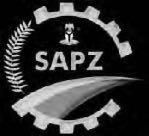
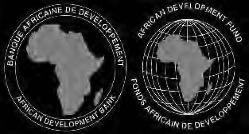




BUSINESS SPECIAL
Global Ratings Report Recognises Wema Bank’s Excellence in Banking
The recent Wema Bank’s global rating reports by Fitch Rating and others, have shown the lender’s improving business risk profile driven by better and more sustainable profitability, writes Kayode Tokede
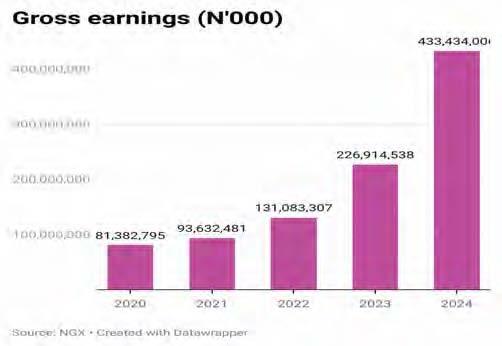
In middle of 2017, Wema Bank’s retained earnings was estimated at N36.7 billion that reflected an accumulated negative balance in its equity section of its balance sheet. The Central Bank of Nigeria (CBN) prudential policy (and many global frameworks) bars companies with negative retained earnings from paying dividend to shareholders in a move to protect creditors and ensure financial soundness. The deficit had limited Wema Bank’s capacity to distribute profits and raise fresh capital, thereby restraining growth & shareholder return on their investment.
However, around October 2017, the management called an Extraordinary General Meeting (EGM) to implement a capital reorganisation scheme aimed at wiping out the accumulated deficit.
Post-cleanup, Wema Bank moved to restart dividend payments, signaling a stronger financial footing. The restructuring also positioned the bank to issue new equity, support growth, and improve shareholders return more sustainably.
For instance, Wema Bank’s profit before tax(PBT) in 2017 was around N3.01 billion, but has increased significantly by 3,306 per cent to N102.52 billion in 2024, while its profit after tax(PAT) moved to N86.28 billion in 2024, a growth of 3,725per cent as against N2.26 billion declared in 2017.
From the balance sheet position, Wema Bank’s total assets moved from N388.15 billion in 2017 by 825.7per cent to N3.59 trillion in 2024.
In May 2017, the bank launched ALAT, Nigeria’s first fully digital bank. ALAT has played a critical role to drive financial inclusion and digital adoption- customer deposits increased to N2.52 trillion in 2024 from N254.46 billion in 2017, while loans and advances to customers grew to N1.2 trillion in 2024 from N215.84 billion in 2017. After years of not paying dividends due to negative retained earnings, Wema Bank resumed dividend payments in April 2019 distributing N0.03 per share-its first in 14 years.
In the 2024, the management paid a final dividend of N1.00 per share, marking a 100 per cent increase over N0.05 per share declared in 2023. The dividend payout in 2024 reflected Wema Bank’s robust 2024 performance, including a 135 per cent PBT to N102.3 billion.
Amid robust financial strength, the lender has been able to raise fresh capital and witnessed oversubscription. The growing fundamentals of Wema Bank over the years has continued to attract the attention of the global community, highlighting the bank’s enhanced financial stability and growth prospects.
FITCH REVISES WEMA BANK’S OUTLOOK TO POSITIVE
Fitch Ratings revised Wema Bank’ outlook to Positive from Stable, while affirming its Long-term issuer default rating (IDR) at ‘B-‘. The bank’s Nationaal Long-term rating has been upgraded to ‘Á-(nga)’ from ‘BBB(nga)’. Fitch in its report said: “The revision of the outlook reflects our expectations that the bank’s core capital buffers will continue to strengthen over 2025-2026, supported by capital raisings and sustained higher internal capital generation, which is benefitting from higher interest rates and a shift in the deposit structure away from expensive time deposits.”
“The two-notch upgrade of the National Long-Term
Rating captures the improved deposit structure, stronger core capital buffers and increased profitability metrics.
“The upgrade of the National Short-Term Rating to ‘F1(nga)’ from ‘F2(nga)’ follows the upgrade of the National Long-Term Rating.”
According to Fitch, Wema’s IDRs are driven by its standalone creditworthiness, as expressed by its ‘b-’ Viability Rating (VR). It stated that the VR takes into consideration the concentration of Wema’s operations in Nigeria, its small franchise and balance-sheet size, and high credit concentrations.
“This is balanced against healthy asset quality and capitalisation, moderate but strengthening profitability, and an improved deposit structure. The VR is one notch below the ‘b’ implied rating due to the bank’s business profile, reflecting its small franchise,” the American credit rating agency explained.
Fitch noted that Wema Bank had a small market share, representing two per cent of domestic banking system assets at end-2024, which constrains its revenue generation, stressing that the financial institution has a leading position in digital banking, which has reduced its reliance on term deposits.
On improving capital ratios, it explained that Wema Bank’s FCC ratio improved to 18.6 per cent at end-2024 from 14.5per cent at end-2023, supported by its N40 billion rights issue and stronger internal capital generation.
“We expect the bank’s FCC ratio to reach almost 30 per cent by end-2025, supported by N200 billion capital increases (14 per cent of end-Q1 2025 RWAs) and strong internal capital generation. We expect Wema Bank to comply with the N200 billion minimum paid-in capital requirement for banks with a national licence by end of 2025,” Fitch noted.
GCR RATINGS UPGRADED WEMA BANK’S NATIONAL SCALE
GCR Ratings (GCR) upgraded Wema Bank ’s national scale long and short-term issuer ratings to BBB+(NG) and A2(NG) from BBB(NG) and A3(NG) respectively.
Concurrently, GCR upgraded the national scale long-term issue rating on Wema Funding SPV Plc’s N17.675 billion Series 2 Fixed Rate Unsubordinated Bonds to BBB(NG) from BBB-(NG). Outlooks on the ratings remain Stable.
The ratings agency said the upgrade is supported by the bank’s strengthened capitalisation, driven by equity injection, and improved earnings generation and retention.
The ratings also balance the bank’s stable funding structure, sound liquidity, modest competitive position, and weakening asset quality metrics, exacerbated by the macroeconomic challenges. GCR maintained that Wema Bank’s competitive position is largely enhanced by its strong digital presence, which continues to support a growing customer base of over 5 million and increased transaction volumes.
“With a balance sheet size of N3.6 trillion ($2.5 billion) as of December 31, 2024, the bank accounted
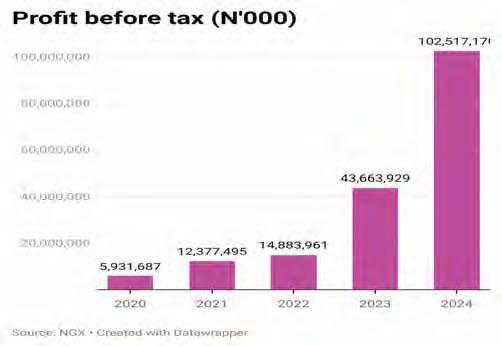
for c.2.0per cent of the Nigerian banking industry’s total assets, customer deposits, and gross loans.
“Operating revenue grew by 48 per cent to N255.8 billion ($161.4 million) in 2024, with the relatively stable net-interest income contributing a sizable 69.2per cent of the total operating revenue.
“Looking ahead, Wema Bank’s expansion drive, increased deployment of technology, and strategic partnerships could support its operational scale and earnings generation capacity over the next 12-18 months,” GCR said in its report.
GCR said Wema Bank’s capitalisation assessment improved over the review period, following the successful N40 billion ($27.6 million) capital injection in 2024 and the strong earnings generation and retention.
As a result, GCR said Wema Bank’s core capital ratio improved to 19.2per cent as of December 31, 2024 (December 2023: 15.5per cent).
“Looking ahead, the bank’s ongoing capital raise of c. N150 billion through a rights issue and the planned private placement is expected to further strengthen the GCR core capital ratio above 20per cent over the next 12-18 months, barring any major naira devaluation. However, we view negatively the loan loss reserve coverage of stage 3 loans at 55.1per cent as of 31 December 2024, considered to be low,” the largest rating agency in Africa, added.
AGUSTO & CO. UPGRADED WEMA BANK PLC TO “A-” FROM BBB+.
Agusto & Co. underpinned Wema Bank’s upgrade to improved business risk profile driven by better and more sustainable profitability, improved operating efficiency, good liquidity profile and strong shareholders’ support as reflected in the successful rights issue exercise.
According to Agusto & Co. Wema Bank in 2024 continued its growth trajectory despite the raging macroeconomic headwinds.
The firm in its 2025 final entity rating report said:
“The loan book grew by 49.9 per cent year-on-year to N1.2 trillion and remained relatively diversified by sector. Partial pay down by an oil exploration and production company moderated the foreign currency (FCY) loans by 15.8per cent with FCY loans representing a conservative 18.3per cent (FYE 2023: 22.9per cent) of the loan book.
“Thus, reducing the vulnerability of the bank to further naira depreciation. However, the loan book is concentrated as 20 customers accounted for 33.9 per cent (2023: 29 per cent) as at December 31 , 2024. This makes the bank susceptible to the financial performance of a few obligors; which we consider a rating negative. The impaired loans ratio improved to 3.9per cent (2023: 4.4per cent) as at 31 December 2024, below the five per cent maximum threshold largely on the back of the N885.9 million write off and loan growth.
“The impaired loan ratio would have been higher at 5.9per cent without the write-off and loan growth. However, the cumulative loan loss provisions (including additional provisions in the regulatory risk reserves) covered the impaired
loans by 96.8per cent as at FYE 2024, which we consider acceptable (FYE 2023: 107.1per cent).
“We believe the prevailing headwinds will continue to test the resilience of the bank’s credit risk management framework.”
“Wema Bank’s shareholders’ funds was bolstered during the year under review by the regulatory approval of the N40 billion rights issue exercise concluded in December 2023 and the reserve accretion emanating from the improved profitability.
“As a result, the shareholders’ funds expanded by 84.1per cent to N256.5 billion as at 2024. Capital adequacy ratio (CAR) improved to 19.7per cent (2023: 16 per cent), surpassing the 10 per cent regulatory minimum. However, the proposed N200 billion minimum paidup capital directive depicts a potential N132.9 billion capital shortfall. A N150 billion rights issue exercise is ongoing and a N50 billion private placement is scheduled for June 2025.
“Thus, management expects compliance with the minimum paid-up directive before December 31, 2025, ahead of the March 2026 31, deadline. The outcome of the rights issue is yet to be determined as at the time of this review.”
It noted that the bulk of the deposits 80.8per cent in 2024 from 69.6per cent in 2023 is from the South-west region of the country reflecting a skewness in the bank’s coverage.
“Management has mentioned ongoing plans to diversify geographically and deepen its presence in regions where the Bank has a low coverage.
“The contractionary stance of the monetary authority, which raised the prevailing interest rate, resulted in a 130 basis points increase in the weighted average cost of funds to 6.1per cent in 2024. Tenored deposits continue to be a sizable portion of the deposit mix at 30.5per cent as at December 31, 2024 despite its commercial banking heritage.
“As at December 31, 2024, the bank’s liquidity ratio stood at 33.4per cent (2023: 35.2per cent) and the liquidity coverage ratio was 135.1per cent(2023: 135.5per cent). We consider Wema Bank’s liquidity profile to be good and the ability to refinance is satisfactory in our view. Wema Bank’s profitability has shown marked and consistent improvement in the last three years. Profitability stood better with pre-tax return on average assets (ROA) of 3.1per cent (2023: 2.1per cent) and 51.8per cent (2023: 39.3per cent) pre-tax return on average equity (ROE).
“We consider Wema Bank’s profitability good relative to its peers and in addition, the ROE exceeded the 33.2per cent annual average inflation rate in 2024. In the near term, we expect the profitability ratios to be upheld by the planned loan growth, expanding investment securities portfolio and high yield environment.
“Though we note that the initial expansion in capitalisation from the rights issue might be a drag on profitability in the near term,” it added.
Agusto & Co. noted that Wema Bank occupies a modest position within Nigeria’s competitive banking landscape, despite its legacy as the country’s oldest indigenous bank.
NGX Chairman Strengthens Capital Market Ties with Dubai Financial Market
Kayode Tokede
In a strategic move to deepen cross border capital market integration, the NGX Chairman and founder & CEO of Petralon Energy, Ahonsi Unuigbe, has concluded a working visit to the Dubai Financial Market (DFM).
During high-level discussions, Ahonsi joined Chief Executive Officer of DFM, Hamed Ahmed Ali and AVP of Business Development for Africa, Joel Tilly to explore opportunities for strengthening the existing MOU between NGX and NASDAQ Dubai, with a special focus on supporting Nigerian corporates that are evaluating dual-listing structures. Speaking on the opportunities ahead, Ahonsi noted; “The UAE presents a
APMT
compelling case for African corporates, especially in the energy sector, with its advanced regulatory frameworks, deep capital markets, and strong sector expertise. At NGX, we are committed to leveraging these cross-border synergies to drive real value for both markets.”
DFM’s strategic vision of building institutional capacity across regions aligns with NGX’s ambition to position Nigerian companies on the global stage. By providing increased access to capital, the collaboration aims to support indigenous companies in scaling operations, improving governance, and enhancing investor confidence.
Ahonsi also added, “By bridging the information and access gap between Nigerian
enterprises and international markets, we are laying the foundation for a stronger economic growth, investor participation, and long-term value creation”.
While there was enthusiasm about the potential opportunities for value creation, the parties also acknowledged the need for significant improvement in UAE-Nigeria bilateral relations. Strengthening these relations is seen as a critical enabler to fully realize the opportunities by reducing barriers that currently hinder seamless collaboration and integration between the two countries. This engagement underscores NGX’s commitment to forging meaningful global partnerships that elevate the visibility and competitiveness of African markets in the global financial landscape.
Presents Container Transport Electrification White Paper to Shettima
APM Terminals joined key industry leaders and government stakeholders at the Decarbonizing Infrastructure in Nigeria Summit where it presented a white paper on container transport electrification to Vice President Kashim Shettima titled: “A pragmatic roadmap to unlock transformational benefits well beyond decarbonisation.”
Organised by the office of the Vice President at the State House, Presidential Villa, the summit, themed, “Unlocking Climate Finance for Sustainable Development,” convened decision-makers, private sector players, and development partners to accelerate efforts toward low-carbon infrastructure and green investment in Nigeria.
APM Terminals underscores Nigeria’s opportunity to leapfrog fossil-powered logistics by electrifying its containerised
trade, potentially unlocking $830 million in investments by 2030, creating skilled jobs, reducing 390 ktCO e emissions, and improving power reliability and public health.
At the opening of the Decarbonising Infrastructure in Nigeria Summit in Abuja, Shettima emphasised that sustainability and productivity must no longer be treated as separate pursuits. He noted that the summit was the result of months of consultations, regional dialogues, and technical deep dives. Shettima assured that Nigeria is on course to phase out diesel dependency and reduce carbon emissions through an integrated hybrid energy system, stressing that the country’s climate ambitions must align with its development realities to remain competitive globally.
APM Terminals operates two
container terminals in NigeriaApapa in Lagos and WACT in Onne – as well as a container depot in Kano, says CEO of APM Terminals Nigeria, Frederik Klinke: “Containerised trade is a vital backbone of economic development in Nigeria, and we view the country as a key growth market. We believe that electrification plays an integral part of bringing operations into the globally most advanced level. This white paper outlines a clear roadmap for how public-private partnerships can unlock electrified and decarbonised operations. From our global experience as a terminal operator, we know that beyond lowering emissions, electrification improves the working environment, reduces air and noise pollution, and delivers tangible benefits to neighbouring communities.”
RMB Nigeria Leads N148bn Stanbic IBTC Rights Issue to Successful Close
Nume Ekeghe
Rand Merchant Bank Nigeria (RMB Nigeria) has announced the successful completion of the N148 billion rights issue by Stanbic IBTC Holdings PLC, reinforcing the bank’s capital position ahead of new regulatory thresholds set by the Central Bank of Nigeria (CBN).
In a statement issued by the firm, RMB Nigeria disclosed that it worked closely with Stanbic IBTC to structure, coordinate, and execute the transaction delivering what it described as a seamless capital raise process.
Speaking on the transaction,
Executive Director & Head of Investment Banking at RMB Nigeria, Chidi Iwuchukwu, said:“We are proud to have led the successful and oversubscribed rights issue for Stanbic IBTC Holdings Plc, a landmark transaction that underscores the market’s strong conviction in the Group’s strategic direction and long-term fundamentals. The enthusiastic participation by existing shareholders is a powerful endorsement of Stanbic IBTC’s growth trajectory and resilience. This transaction also affirms RMB’s leadership in delivering bold, value-accretive capital market solutions at a defining moment in Nigeria’s banking sector recapitalisation.”
Also commenting, Chief Executive Officer of RMB Nigeria, Bayo Ajayi, said: “The successful close of the Stanbic IBTC Holdings PLC rights issue marks a significant milestone in Nigeria’s ongoing banking sector recapitalisation. We are proud to have partnered with Stanbic IBTC on this important transaction, which not only strengthens their capital position but also reinforces investor confidence in their long-term strategy. This outcome reflects the strength of our capital markets platform and our continued focus on delivering impactful financial solutions that support the growth and resilience of Nigeria’s leading institutions.”
Beta Glass Doubles Dividend as Profit Soars 112% in 2024
Sunday Ehigiator
Beta Glass Plc, West and Central Africa’s leading glass packaging manufacturer and a member of the Frigoglass Group, has announced a stellar financial performance for the 2024 fiscal year, culminating in a doubled dividend payout of N1.76 billion to shareholders.
The announcement was made during the company’s 51st Annual General Meeting (AGM) held in Lagos.
The AGM brought together shareholders, institutional investors, and regulatory stakeholders
to review the company’s financial results and strategic direction for the coming year.
In his opening remarks, Chairman of the Board, Dr. Vitus Ezinwa, praised the company’s resilience in navigating Nigeria’s challenging macroeconomic terrain.
“Despite inflationary pressures, exchange rate fluctuations, and rising costs, Beta Glass’ 2024 performance exceeded expectations,” Dr. Ezinwa stated. “This N1.76 billion dividend represents a 111 per cent increase year-on-year, reflecting our commitment to creating long-term value for our shareholders.”
The company posted an 87 per cent increase in revenue, largely driven by a 61 per cent increase in product pricing and a 16 per cent growth in sales volume. Profit after Tax (PAT) rose by a staggering 112 per cent, closing the year at N13.63 billion, up from N6.44 billion in 2023.
Speaking on the company’s performance, Beta Glass CEO, Alexander Gendis, attributed the impressive results to strategic operational decisions, improved capacity utilisation, and a strong focus on customer service.
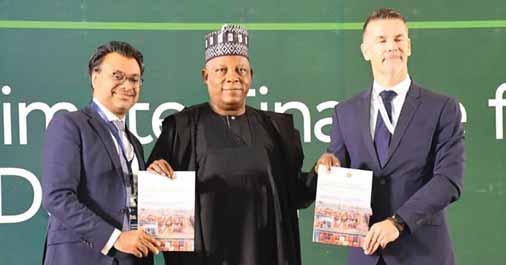
H2: Analysts Predict Positive Momentum in Nigerian Equities Market
Kayode Tokede
Capital market analysts have expressed that the stock market section of the Nigerian Exchange Limited (NGX) is expected to maintain its positive momentum in the second half (H2) of 2025.
They noted that the stock market growth in H1 2025 is expected to be driven by improved macroeconomic sentiment, favorable market conditions, and increased investor interest.
According to them, the H2 2025
performance depends largely on the Central Bank of Nigeria’s (CBN) policy direction, clarity on banking recapitalisation efforts, inflation trends, and global commodity price movements, while investors remain focused on dividend declarations and the H1 2025 earnings season to shape market sentiment.
The stock market delivered a strong performance in the first half of 2025, closing at 119,978.57 basis points, representing a year-to-date (YtD) gain of 16.57 per cent from
its opening level of 102,926.40 basis points. Consequently, the market capitalisation gained N13.2 trillion from N62.763 trillion at the beginning of the year to close at N75.96 trillion at the end of June 30, 2025.
On market performance for H2 2025, a group of analysts at Afrinvest Limited noted that, “looking ahead in H2, we maintain our market projections as most of the current market dynamics still align with our prognosis at the beginning of the year.
“For full year 2025, we still project a
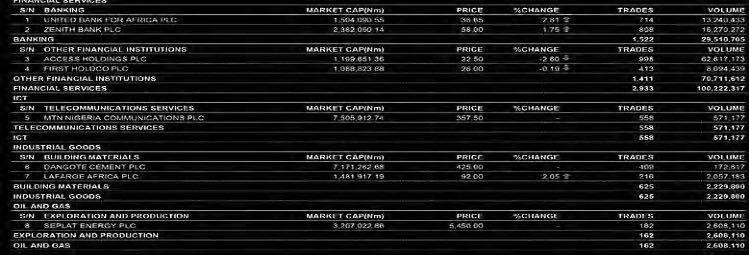

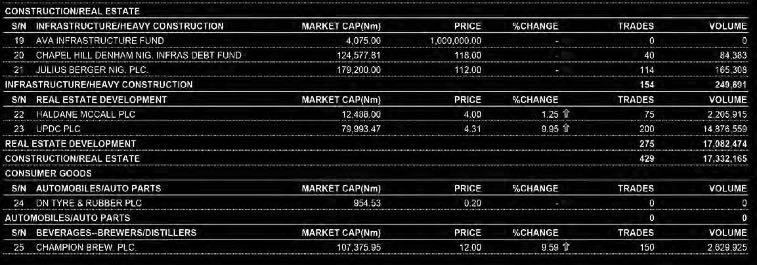
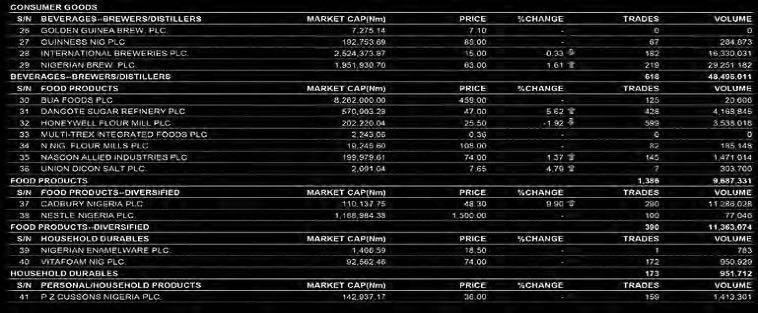
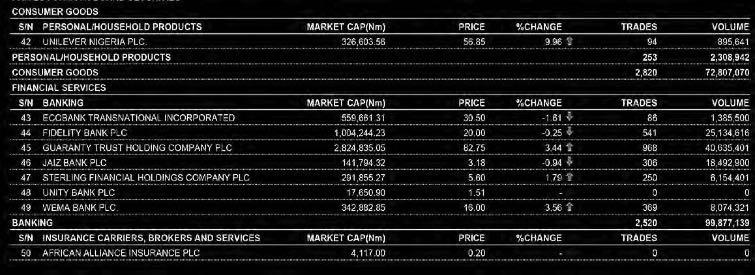
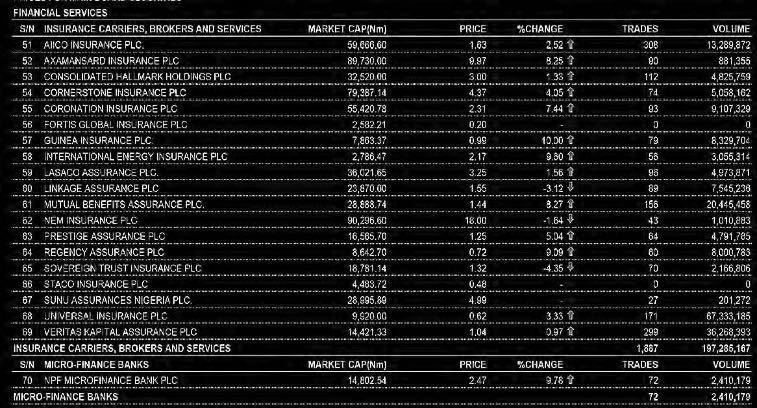
30.4 per cent gain in our base-case scenario, driven by expectations sustained pace of banking sector capital raise, fixed-income yield moderation, fiscal policy reforms & accelerated CAPEX spending, improved FX stability, and the possibility of some major corporate listings on the NGX.”
The chief operating officer of InvestData Consulting Limited, Mr. Ambrose Omordion said, “we expect mixed sentiments on bargain hunting and sector rotation, as traders wait
to confirm direction after Doji chart pattern formation. Investors buying into value as they digest dividend payout of March year end and others in the midst of portfolio reshuffling, even as few audited accounts are expected to hit the market with dividend announcement.”
He added that “sector rotation and portfolio rebalancing continued in the market with investors taking advantage of price correction to buy into value. This is amid the volatility and pullbacks that add more strength
to upside potential. Consequently, investors should take advantage of price correction. Also looking at the trends and events across the globe and domestically.”
A group of analysts at Cardinalstone in its report titled ‘2025 Mid-Year Economic Outlook’ said, “improved macroeconomic sentiment, driven by faster-than-expected GDP growth, a downward trend in inflation, and early signs of currency stability, has set the stage for renewed investor confidence.
TRADED ASOF JULY/03/25

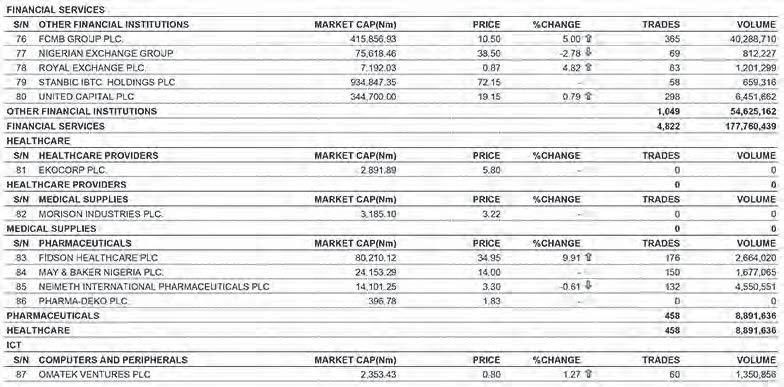


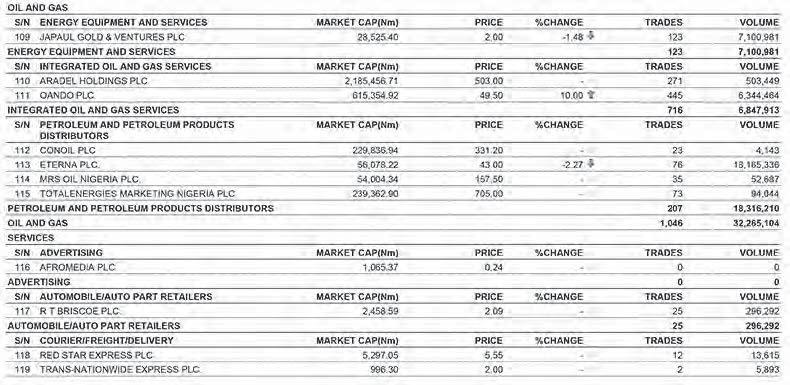
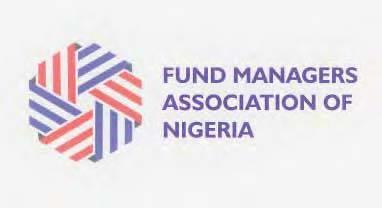
A Mutual fund (Unit Trust) is an investment vehicle managed by a SEC (Securities and Exchange Commission) registered Fund Manager. Investors with similar objectives buy units of the Fund so that the Fund Manager can buy securities that willl generate their desired return.
An ETF (Exchange Traded Fund) is a type of fund which owns the assets (shares of stock, bonds, oil futures, gold bars, foreign currency, etc.) and divides ownership of those assets into shares. Investors can buy these ‘shares’ on the
floor of the Nigerian Stock Exchange.
A REIT (Real Estate Investment Trust) is an investment vehicle that allows both small and large investors to part-own real estate ventures (eg. Offices, Houses, Hospitals) in proportion to their investments. The assets are divided into shares that are traded on the Nigerian Stock Exchange.
GUIDE TO DATA:
Date: All fund prices are quoted in Naira as at 02 Jujy-2025, unless otherwise stated.
DAILY PRICE LIST FOR MUTUAL FUNDS, REITS and ETFS
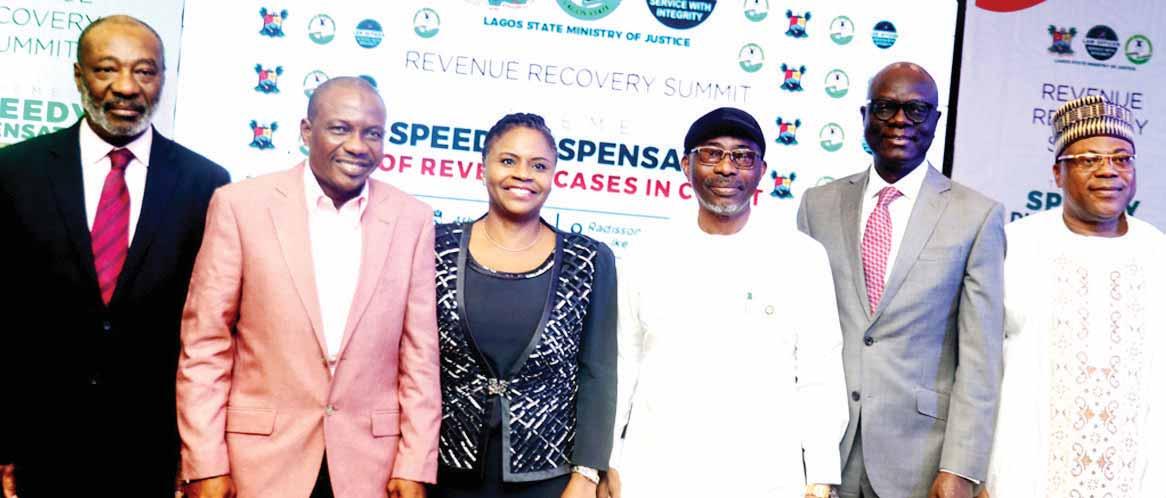
FG Moves to Consolidate Health Reform
Gains, Engage Officials from States
In a bid to further sustain progress already made in health sector reforms, the federal and state governments have commenced efforts to ensure alignment of health budgetary plans to reflect priority areas of healthcare.
To this end, the Federal Ministry of Health and Social Welfare has commenced capacity building programme for healthcare managers in the states.
While speaking in an interview with THISDAY at flag-off of the National Health Sector Renewal
Investment Initiative (NHSRII) Health System Strengthening Workshop in Abuja, Technical Assistant to the Coordinating Minister of Health and Social Welfare and the Governance Coordination and Subnational Engagement Lead at the SWAP Office, Dr. Ashiru Adamu Abubakar, said the programme will have a multiplier effect on the health sector.
He said: "This year, the coordinating minister directed that we assemble and develop a plan that will see to the strengthening of capacities of individual programme managers across all levels in terms of their
leadership capacity and health system strengthening capacity, so they can understand the issues and plan well.
The workshop was meant to ensure capacity building for healthcare managers to improve health outcomes for Nigerians.
This initiative is expected to enhance the leadership and technical capacities of healthcare professionals.
According to Ashiru, the plan will inform the budget, and this year's annual operational plan is crucial.
"We have a central theme for it: to have a rational, realistic, pragmatic, and comprehensive plan that aligns
with the health budget."
Ashiru explained the government is working with states to identify top program officers and managers to build their capacity.
"We knew how far we have gone in 2025: and we are now trying to up our game to make sure that in 2026 we consolidate on the gains we have made in 2025 and to add more," he said.
He said the focus this year is on channeling resources to result-yielding areas, knowing the problem areas and not just throwing money at every point.
SERAP Urges Tinubu to Probe Alleged Obstruction of NDDC Audit Report
Chuks Okocha in Abuja
The Socio-Economic Rights and Accountability Project (SERAP) has called on President Bola Tinubu to order an immediate investigation into allegations that senior government officials and politicians named in the Niger Delta Development Commission (NDDC) forensic audit report have obstructed its publication.
The Minister of the Federal Capital Territory, FCT, Nyesom Wike had last threatened to report to President Bola Tinubu over the obstruction and to urge him to release the forensic report of the NDDC audit.
The report, which covers the period between 2000 and 2019, was commissioned to examine alleged financial misconduct and structural
inefficiencies within the NDDC.
SERAP expressed concern that the findings of the audit have yet to be made public and that recommendations for accountability and reform remain unimplemented.
In a statement issued on Sunday, SERAP described the obstruction or suppression of the report as an effort to undermine justice.
“Obstructing the release of the forensic audit report or hiding it is a grave and willful attempt to obstruct, prevent and pervert the course of justice for the allegations of corruption in the NDDC,” the organisation said.
SERAP further warned that delaying publication of the report has allowed those suspected of wrongdoing to avoid prosecution, and denied affected communities
in the Niger Delta access to justice.
“The continued failure to publish the audit report undermines public trust and confidence, particularly of victims of corruption in the Niger Delta who have waited far too long for justice and accountability,” the group said.
SERAP noted the Nigerian government has a constitutional and international obligation to act on the findings of the audit, even if the contents may be politically or personally uncomfortable for those implicated.
“While the audit report may make uncomfortable reading for the indicted officials and politicians, your government has a constitutional responsibility to publish it and act upon its recommendations,” SERAP stated in a public message addressed
to President Tinubu.
Citing Article 25 of the United Nations Convention Against Corruption (UNCAC), SERAP argued that any act interfering with the initiation or outcome of a corruption investigation is a punishable offence under international law.
“The forensic audit report of the NDDC can no longer be left to gather dust,” the organisation said, urging the Tinubu administration to publish the report in full and take steps toward prosecuting those named.
As of the time of this report, the presidency had not issued a formal response to SERAP’s statement.
The forensic audit of the NDDC was first ordered in 2020 and submitted to the federal government in 2021, but its contents have not been made public.
Momodu: Those Abusing Drugs Are Sick, Need Help, Not Punishment
Linus Aleke in Abuja
Retired Deputy Commander General of the National Drug Law Enforcement Agency (NDLEA), Sule Momodu, said that those abusing drugs need help and not punishment because they are sick.
The ex-Director of Technical Services at the National Drug Law Enforcement Agency revealed that
Cannabis Sativa contains close to 4,000 toxic chemicals, stressing that a normal person would not take it.
Responding to a question on whether the nation's legal instruments are stringent enough to deter citizens from drug and substance abuse during an interview with THISDAY, Momodu said, "Someone who is abusing drugs is sick, so you don't need
to punish the person. Take, for instance, Cannabis Sativa contains close to 4,000 toxic chemicals, so a normal person would not take it to the point of you even arresting them.
"Again, if you want to punish those who are using drugs, how many of them will you punish?"
He stated there are so many persons abusing drugs that the NDLEA facility cannot contain them.
"If you go to areas where they smoke, you see 50 to 100 persons. If you pick them up like that every day, where will you keep them?"
he queried.
Stating this is why he is advocating for an NDLEA drug integrity test for most Nigerians, the retired top cop concluded that once the country starts doing drug tests, it will drastically reduce all these habits.
"We've worked with the state to identify their top three program officers and managers that we will build their capacity, and those three will go back and cascade this training into an army of program managers in the states, between 40 to 80, depending on the state."
He added the goal is to reach nothing less than 25,000 program officers and managers across the country, who will serve as change agents.
"The Nigerian Governor's Forum Secretariat said that these three individuals we are bringing are the seeds of hope that we have for the health sector of Nigeria because if they get this right and transfer it right, it translates into a lot of efficiency gains and improvement in health outcomes for Nigerians."
Ashiru noted the government is working closely with all states and development partners to ensure the success of the initiative.
"In this journey, we are working very closely with all the states and our development partners to make sure that we get it right."
The government is also
addressing issues of timing, partner inclusion, and complexity. "There are also issues of timing. Last year, as of June, only 22 states in Nigeria had their annual operational plans. This year, we are starting two months earlier to make sure that we finish the process, and that process informs the health budget across all levels."
Ashiru further emphasized that the reform agenda is designed to respond to the needs of Nigerians, adding, "as for Nigerians, what we are really saying at the center of the reform agenda and the blueprint is that we are making sure that our plans are responsive to the needs of Nigerians."
The incentives, according to Ashiru, will focus on revitalizing primary health care facilities, increasing health insurance coverage, and ensuring access to essential medications.
"It's all about making sure 2,000 primary health care facilities are revitalized to provide full services, including basic emergency obstetric care. It's ensuring the facilities have a full complement of essential medications. It's ensuring we increase health insurance coverage."
Police Deploy Seven CPs to State Commands, Departments to Enhance Operational Effectiveness
Linus Aleke in Abuja
The Nigerian Police Force have deployed seven Commissioners of Police to state commands and departments to ensure professional leadership in critical areas and enhance the operational effectiveness of the Force.
Announcing the deployment in a statement on Sunday, the Force Spokesperson, Olumuyiwa Adejobi, an Assistant Commissioner of Police, stated that these postings take immediate effect.
According to him, "Following the recent approval of postings for Commissioners of Police to Commands and Formations across the country, the Inspector-General of Police, Kayode Egbetokun, has charged them to uphold the principles of professionalism and quality leadership towards ensuring their various states are rid of criminal elements that threaten national security.
"The newly posted senior police
officers include CP Naziru Abdulmajid to Borno State Command; CP Bello Rasheed Afegbua to Cross-River State Command; CP Dahiru Mohammed to Jigawa State Command; CP Adebowale Lawal to Ondo State Command; CP Ibrahim Gotan to Osun State Command; CP Eloho Edwin Okpoziakpo to the Department of Training and Development, Force Headquarters; and CP Olusegun Eyitayo Omosayin to the FCID Annex, Gombe State as CP General Investigation."
He stated these strategic deployments are aimed at leveraging the vast wealth of policing experience of the senior officers to drive effective policing and ensure the safety and security of citizens within their respective jurisdictions.
Reassuring the public of the Nigeria Police Force's commitment to ensuring a safer and more secure nation, the IGP called for the continued support and collaboration of citizens in the collective fight against crime and criminality.
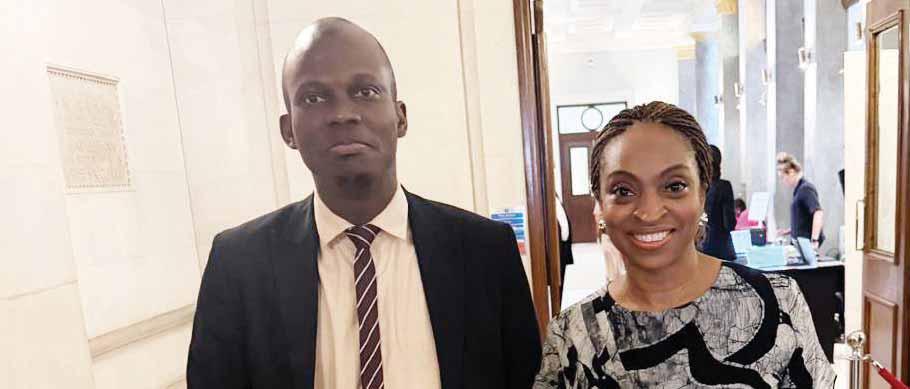
AT SIDELINES OF INVEST AFRICA CONFAB...
Baba-Ahmed: APC’ll Easily Defeat Atiku, ADC Needs Unpredictable Choice in 2027
The vice presidential candidate of Labour Party (LP) in the 2023 general election, Yusuf Datti Baba-Ahmed, has urged the coalition-backed African Democratic Congress (ADC) to
present a presidential candidate that the ruling All Progressives Congress (APC) would not be able to defeat in the 2027 election.
Amid speculation that ADC might present former Vice President Atiku Abubakar, who played a major role in the formation of the
coalition,as its 2027 presidential candidate, Baba-Ahmed maintained that President Bola Tinubu and the ruling APC were familiar with Atiku’s political game.
“The APC knows how to work against Atiku, having defeated him in two presidential elections,”
the former lawmaker said in a television interview.
According to him, “If you bring out Atiku, they know how to work against Atiku, and he is welcome to win, if he wins we will support him. You need that candidate they can’t understand, they don’t know
Former NILDS DG Leads Advisory Council for Nigeria ICONS Project
Former director-general of the National Institute for Legislative and Democratic Studies (NILDS), Prof. Ladi Hamalai, has been appointed to lead the project advisory council established for the ICONS of the Fourth Republic project.
The ICONS (Initiative for Celebrating Outstanding National Statespersons) is a flagship initiative of OrderPaper Nigeria, the country’s foremost independent parliamentary think-tank and legislative accountability platform.
It is dedicated to documenting and celebrating the legacies of distinguished public officials who have served in both the legislature and executive arms of government since 1999.
A statement signed by Uko Etuk, programmes manager at OrderPaper, said the council will oversee and guide the delivery of the ICONS project with integrity as a national legacy initiative and comprises eminent professionals, charged
with providing strategic direction, editorial oversight, and validation of the ICONS book of records and accompanying digital archive, to ensure credibility, accuracy, and pan-national non-partisan outlook.
The council comprises leading figures from academia, public policy, journalism, civil society, and legislative research, all of whom have been selected for their demonstrated expertise, professional accomplishments, and integrity.
The statement said members of the council include Dr. Otive Igbuzor, a renowned civil society leader; Abiodun Adeniyi, a professor of mass communication at Baze University, Abuja, and a prominent political analyst; Prof. Abba Sadique, deputy vice-chancellor at the University of Abuja; and James Akpandem, a veteran journalist, public affairs analyst, and former editor of the Daily Independent newspaper.
Others include Dr. Uche Igwe, a visiting Fellow at the London School
of Economics (LSE); Dr. Halima Gaya, a lawyer; and Mr. Mathew Coker, a research and strategy advisor at the National Assembly Library Trust Fund (NALTF).
The statement said Oke Epia, chief executive of OrderPaper, expressed delight at the rich quality and varied experiences of the council's members, stating that such a combination will “guarantee that the ICONS project meets the highest standards of objectivity, scholarship, gender inclusion, nationalistic and nonpartisan delivery, and historical accuracy.
“By appointing this diverse and distinguished advisory council, OrderPaper affirms its commitment to ensuring the project is guided by inclusive, impartial, and evidencebased principles, whilst promoting democratic values and institutional memory for future generations.”
The ICONS initiative is based on the pioneering FLEX framework - the Facility for Legislative Executive
Exchange, which was established by OrderPaper to critically examine the movement of political actors between Nigeria’s two main branches of government.
The FLEX principle recognises the significant crossover of leadership roles and seeks to assess the long-term democratic and governance effects of such transitions.
The ICONS project is built on three core pillars: a book of records - a high-quality, research-grade and limited-edition publication profiling the lives, service records, and democratic impact of selected ICONS; an interactive digital archive, which will feature sub-portals for each ICON with curated historical content and public-facing multimedia documentation; and a high-profile celebratory gala night and public unveiling event, scheduled to hold later in 2025 in Abuja, where the first edition of the book of records and digital repository will be officially launched.
Odu’a Group Expands Property Optimisation Programme with Redevelopment of Odu’a Court in Lagos
Sunday Okobi
In its effort to grow its Property Optimisation Programme, Odu’a Investment Company Limited (OICL) has commenced the Odu’a Court Redevelopment Project in Ikoyi, Lagos.
At the groundbreaking ceremony of the grand project, which took place yesterday in Ikoyi, the Group Chairman of OICL, Otunba Bimbola Ashiru, expressed the delight of OICL and the significance of the project to the Odu’a Group and its affiliates. He described it as another strategic
step in the ongoing transformation and repositioning of the real estate portfolio, and indeed the group of companies, for the present and the future.
According to him, “Today’s event clearly shows our commitment to maximising the value of our legacy assets and developing sustainable, income-generating investments that align with current market realities and customer expectations.
“This redevelopment project is important because it demonstrates the renewed strength and strategic focus of Wemabod Limited, one of
our key subsidiaries under the Odu’a Group.
“Through this project, Wemabod further reaffirms its evolution into a competitive, full service real estate company with the ability to develop high-end luxury properties.
“This is in keeping with the Odu’a Investment Company Limited’s vision to create agile, financially strong, and innovation-driven subsidiaries that add significant value to our Group.
“This remarkable project has been made possible through a strategic joint venture partnership between Wemabod Limited and Transfortress
Global Resources Limited, a forwardthinking and capable real estate developer.
“The partnership between Wemabod and Transfortress will ensure the delivery of a world-class asset on this site, strategically situated in a choice location within Ikoyi.”
While lauding the Joint Venture model, Ashiru stated that it “provides us with the opportunity to accelerate the development of properties within our real estate portfolio and has helped attract significant capital to our property development programme.”
where to catch, that is how to win an election.”
The 55-year-old Kaduna politician advised ADC to realise how powerful Tinubu could be, stressing that he (Tinubu) patiently schemed for 16 years and eventually achieved his presidential ambition in 2023.
He added that he had not seen any politician in the coalition who could plan for 16 years or shelve their political ambitions for another person, as Tinubu did for former President Muhammadu Buhari in 2015.
Baba-Ahmed said, “Any coalition that is coming together has to realise how powerful this individual called Tinubu is. Somebody who schemed for 16 years to take it one day. He has done what nobody has done, and I don’t see among our own coalition now somebody who is able to plan or schemed for 16 years.
“With due respect to Atiku, Atiku consistently contested all the last six, this will be the seventh one, without let or hindrance, tell
me who from across the divide would stand up and say it must be that other individual that must be the president and I will take over from him after eight years.
“I’m yet to see that person. Others are also interested in their own candidacy, in their own presidency, but what did Tinubu do?” Baba-Ahmed asked, stating that LP’s 2023 presidential candidate, Peter Obi, should not run as a vice presidential candidate for the coalition.
Baba-Ahmed said with Obi’s performance in the 2023 election, the ex-governor of Anambra State was deserving of ADC’s presidential ticket.
“The position of vice president is very big. Anyway, I wanted to be, and I was rigged out. But I think Peter Obi shouldn’t be a vice president, having gotten an undisputed 10 million votes,” he said.
Baba-Ahmed also disagreed with the narrative that only a coalition of opposition politicians could defeat Tinubu and APC.
Navy Gunboat reportedly Capsizes in Delta, Kills Three Officers, Two Corps Members
Sylvester Idowu in Warri
Three serving Naval Officers, two National Youth Service Corps (NYSC) members and a boat driver died last Thursday night when their Epenal gunboat capsized near Escravos in Warri South West Local Government area of Delta State.
Two other Naval Officers and another NYSC member have been declared missing since the incident which occurred at about 7.45pm directly in front of Chevron Nigeria Limited (CNL).
Search and rescue team deployed to the scene recovered seven personnel and five civilians who were rushed to Chevron Clinic for first aid treatment where three naval officers and three civilians were confirmed dead.
THISDAY learnt the Epenal gunboat was conveying 15 people comprising nine Navy personnel and six civilians from Forward Operating Base (FOB) Escravos to their hotel accommodation in Arunton community when the incident occurred.
The team was part of the Nigerian Navy Ship Delta (NNS Delta) Warri deployed for a Medical Rhapsody at Okerenkoko community, also in Warri South West Local Government area of the state.
The victim of the boat mishap, it was gathered, included Navy Commander JO Eidangbe; ,PO Abolarinwa and OS Tena while the two NYSC members were identified as Miss Chinenye and Miss Dorcas. The third deceased civilian was identified as the boat driver, Master Destiny.
THISDAY learnt that the three declared missing were Lieutenant DK Nehemiah, Sub-Lieutenant Kwala and Miss Uche, an NYSC member.
A top security source said, "At about 19:45, NNS Delta Epenal gunboat capsized in front of Chevron Nigeria Limited (CNL). The gunboat conveying 15 people comprising nine personnel and six civilians from fob Escravos to their hotel accommodation in Arunton community before the incident occurred.
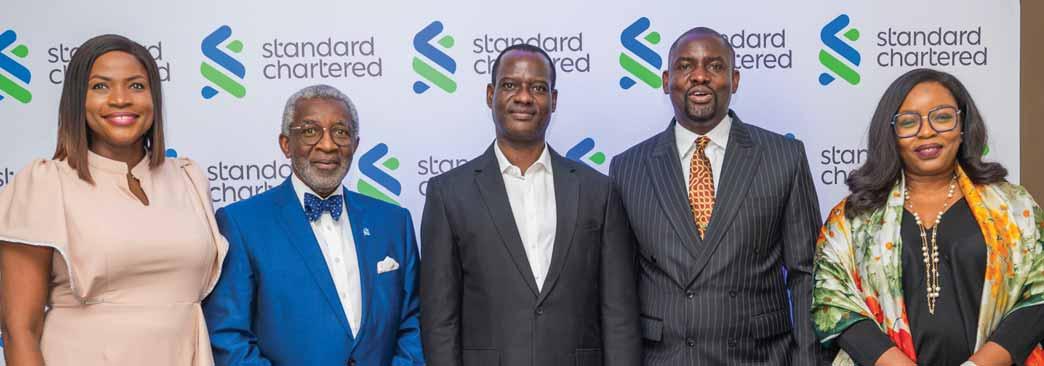
TREASURY LEADERSHIP FORUM...
Wike Entreats Church to Be Wary of Mark, Atiku, Amaechi, Obi’s Coalition Blackmail
Olawale Ajimotokan in Abuja
Minister of the Federal Capital Territory (FCT), Nyesom Wike, has warned church leaders across the country to tread with caution and not repeat their 2023 mistake by voting in 2027 for opposition forces led by former Senate President David Mark, ex Vice President Atiku Abubakar, and former Governor Chibuike Amaechi on the grounds of emotion and sentiment.
Wike made the appeal yesterday at a thanksgiving service at Saint James Anglican Church in Asokoro District, Abuja, to celebrate the successful commissioning of 16 projects by President Bola Tinubu in the six area councils of the FCT.
He warned that making similar mistakes could cause the country its future.
Speaking on the lectern at the service attended by Edo State Governor, Monday Okpebloho, and former governors Samuel Ortom of Benue State and Ifeanyi Ugwuanyi of Abia State, Wike was relentless as he bashed the coalition leaders of African Democratic Congress (ADC) as blackmailers and liars.
He said the commissioned projects were evidence of what the president promised, adding that FCT residents and Nigerians, in general, can attest
to the changes Mr. President has introduced in the country’s capital.
Wike stated, “Let me use this opportunity to tell us, particularly the church, they nearly made the worst mistake in 2023. We have to be very, very careful this time around. It would have been a decision that would have cost some of us our future.
“Ask us questions. We are the politicians. You have to be careful of what we tell you. If nothing had happened, some of us would not be here today. So, if you want us to educate you, call us to ask, what is going on? Don't allow people with propaganda blackmail you.”
Wike credited Tinubu for pulling the FCT out of the Treasury Single Account (TSA), saying it is the masterstroke that enabled funds to be accessed for the provision of projects for Anuja, which was already stagnating.
He stated, “Now, see what happened, the Bola Ahmed Tinubu International Conference Centre, you know they were the people who were running it. They were paying to the government N50 million every year and these are the people who want to rescue Nigeria!
“When we went there, Mr. President said this was an eyesore. He said this is not the quality that as Nigerians we should present. And we shut
Ex-GOC Sues Army, COAS for N16.5bn over Alleged Unlawful Retirement, Torture
Wale Igbintade
A former General Officer Commanding (GOC) of the 1 Mechanized Division of the Nigerian Army, Major General Danjuma Hamisu (rtd), has instituted a fundamental rights enforcement suit against the Nigerian Army and the Chief of Army Staff (COAS), challenging his compulsory retirement and alleged inhuman treatment while in military custody. In the suit marked NICN/ ABJ/194/2025, filed before the National Industrial Court, Abuja, by his lawyer, Prof. Agu Gab Agu, the decorated officer asked the court to declare his compulsory retirement unlawful, null and void, and to order his reinstatement.
He also sought a total of N16.5 billion in general, punitive, and exemplary damages. According to court documents, General Hamisu claimed that he served Nigeria for over three decades with distinction and rose through the ranks to the position of Major General. He was, until his removal, the
General Officer Commanding 1 Division, Kaduna, and Commander of “Operation Service Wide,” a covert presidential mission to combat insurgency and terrorism in the country.
The claimant recounted that his team achieved tremendous success, leading to the arrest of high-profile terrorism financiers and sponsors, as well as the elimination of several terrorist leaders.
However, he alleged that these successes made him a target, resulting in at least four assassination attempts, including a deadly ambush along the Kaduna-Abuja highway on June 7, 2023.
Despite these life-threatening circumstances, the former GOC said he continued to carry out his assignment until he was suddenly summoned for questioning at Army Headquarters in October 2021.
On arrival, he was allegedly arrested, stripped of personal items, and thrown into a “rickety cell” where he was held for 64 days without access to his family or legal counsel.
the place down. Now within six or seven months, we have rehabilitated the International Conference Centre.
“But for you know the shocking thing, the man who was running it was paying N50 million to government in a year. But now in three weeks after renovation and continued activities there, we have generated over N700 million.
“The same people will come and tell you that they want to rescue Nigeria. N700 million in three weeks! That's the kind of thing they want. When you say ‘no, we will not allow that’, they paint you all kinds of pictures and tell you stories.
“People had opportunity to be in government for several years, eight years, 20 years. People had opportunity to bring facilities and infrastructure to their states, they didn't do it. That time, Nigerians were not angry. It is only now when they are not in office that Nigerians are angry.
“If I say, ‘we want to rescue Nigeria’, what you should ask me, ‘when you had the opportunity, what happened?’ If you ask me today, ‘when I was governor of Rivers State, what happened’? I am able to say ‘yes, I did this, I did this, I did this, and today, in the FCT I'm able to do this, this, this, and that’.
“We were here when people were bombing trains to Kaduna, was it under the administration of Bola Tinubu that the trains were bombed? That time, they did not rescue Nigeria.
“We were here. This scam of oil subsidy, was President Tinubu (here) then? And somebody has come to say ‘this scamming, enough is enough. We can't continue’. Few people making money out of Nigeria.”
Wike added, “Today, look at the allocation of funding that is going to states. I was a governor. I never had more than N14 billion a month. But today, some states are getting over
N50 billion every month.
“The country was dead, it would take challenges, it would take hard decisions to be made. We are aware that there are challenges.
“Two years of a country that was run down and we expect a miracle worker? It is not prayer where you say, ‘somebody is sick in the name of God, I heal you’. It doesn't work that way.
“You are now confessing the changes because you have a government that is determined to make changes. If the Bola Tinubu government is not interested, it would be the same thing. But because it is interested to say, ‘this is not the kind of capital we should have’, ‘this is not the kind of city Nigerians should boast of’. ‘We have to be like other cities in the world’.
“Yes, we cannot say we have completely changed Abuja. But you can see the processes and the steps being taken to put Abuja where it’s
supposed to be.”
The minister assured the people that Abuja would wear a completely different look in the next one year. He pleaded with the church to forget about those who had lost their chances to correct Nigeria and be patient and continue to pray the president and his administration.
He said, “Ask yourself a question. Just ask yourself, I was a senate president for eight years. For example, I was unable to provide road to my local government, Otukpo, and I would fly helicopter to go to Otukpo. Eight years! Now, he said he is going to rescue Nigeria. Which Nigeria are you rescuing? Eight years as Senate President!
“Somebody was Speaker for eight years! Governor, eight years! Minister, eight years! He didn't know Nigerians were angry, it's just these two years that he left office, you are telling Nigerians that Nigerians are angry.
Survey: Trust in Tinubu’s Govt Low, Public Perception of N’Assembly, Judiciary Poor
Chuks Okocha in Abuja
A new survey by the Africa Polling Institute (API) has revealed a sharp decline in public trust and confidence in President Bola Tinubu’s administration, the National Assembly, and the judiciary, raising fresh concerns about Nigeria’s social cohesion.
According to the 2025 ‘Nigeria Social Cohesion Survey’ released at national dialogue in Abuja at the weekend, a staggering 83 per cent of Nigerians expressed little to no trust in the Tinubu-led federal government, while 82 per cent said the same about the National Assembly under Senate
President Godswill Akpabio and House, led by Speaker Abbas Tajudeen.
The judiciary, currently led by Chief Justice Kudirat Kekere-Ekun, also fared poorly, with 79 per cent of respondents saying they did not trust the institution to act independently or fairly.
“Overall, the Nigeria Social Cohesion Index (NSCI) was computed at 46.8 per cent, falling below the 50 per cent average benchmark for a socially cohesive nation, signaling a weak state of unity, trust, and shared identity among citizens.
“This year’s data shows that trust and confidence in public institutions are
at their lowest levels since we began tracking in 2019,” said the Executive Director of API, Prof. Bell Ihua.
The survey, conducted between January and February 2025, interviewed 5,465 Nigerians across the country using face-to-face household visits in major local languages. It measured citizens’ perceptions across 14 key indicators including identity, trust, civic participation, corruption, gender equity, and future expectations.
The report found that citizens, though divided by ethnicity and politics, appear united by a shared struggle – primarily economic hardship.
According to the report, many
Nigerians cited rising costs of food, transport, and basic services as significant daily concerns under the current economic realities dubbed the ‘Tinubu economy.’
“53 per cent of Nigerians feel ‘disappointed in Nigeria’, while only 33 per cent feel proud of the country,” the report noted. On ethnic identity, it said that only 11 per cent feel more Nigerian than ethnic, compared to 27 per cent who identify more with their ethnic group.
Despite widespread disillusionment, the report said a majority still show willingness to participate in nationbuilding efforts.
Benjamin Nworie in Abakaliki
Governor of Ebonyi State, Francis Nwifuru has said it was an injustice that the South East has not produced the president of the country since 1999. Nwifuru, who spoke when members of the Senate Committee on the Review of the 1999 Constitution paid him courtesy visit in Abakaliki, argued that the office of the president be rotated amongst the six geopolitical zones for equity and fairness.
The governor also called for the creation of additional state in the South East region to address the imbalance in the geopolitical structure.
According to him, "To end regional squabbles permanently, I urge the National Assembly to ensure marginalisation and structural imbalances are constitutionally addressed.
"Out of the six geo-political zones in the country, only this region has five states, a development that can trigger
resentment amongst the people.
"That the South East geo-political zone has not occupied the position of the president since 1999 is an injustice. What is the essence of the geo-political zone structure if the office of the president cannot be tested by all the zones?"
Also, the Senator representing Anambra Central, Senator Victor Umeh, has warmed that unless deliberate efforts were made to correct the inherited structural injustices against the South East zone, national
unity and equity would remain elusive.
“The first problem is that the constitution we operate today was not produced through a democratic, civilian process. “It was a military constitution, crafted by a government that imposed a structure which continues to disadvantage the Southeast. The injustices are not abstract—they are measurable, visible, and deeply entrenched," Umeh further stated.
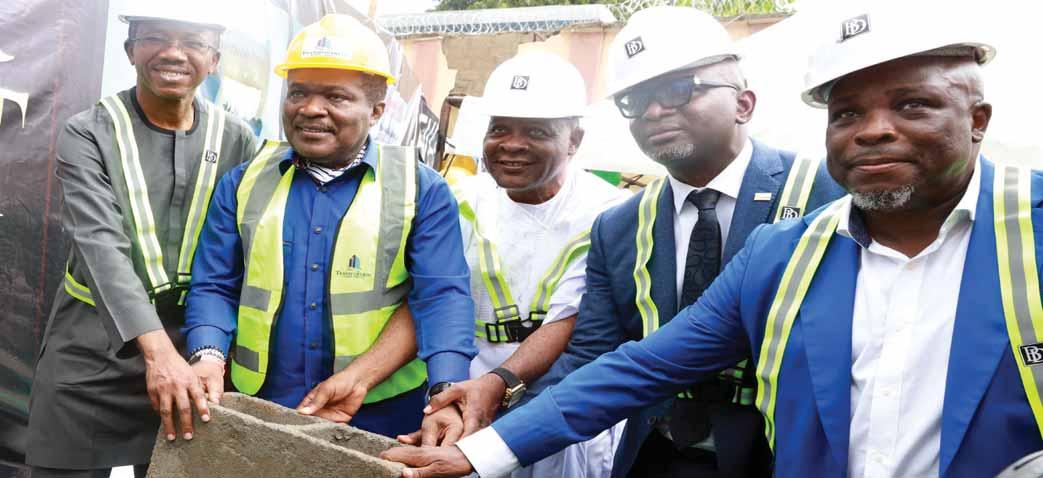
GROUND BREAKING OF ODU'A
COURT...
: Group Managing Director,
AbdulRazaq: Kwara Working with NSA’s Office to Tackle Banditry in Three LGAs
Hammed Shittu in Ilorin
Kwara State Governor and Chairman of Nigeria Governors' Forum, AbdulRahman AbdulRazaq, weekend, said, the state government was working with the office of the National Security Adviser to President Bola Ahmed Tinubu to rout bandits and other criminal elements out of the state.
AbdulRazaq, however, reassured the people of Edu Local Government and other parts of Kwara North senatorial district that, the ongoing efforts would bring those behind banditry into bay so as to bring lasting peace and development to the areas.
AbdulRazaq stated this in Ilorin while addressing key stakeholders in Lafiagi axis of Kwara North and
Ifelodun Local Government Area of the state on the many efforts of the government to rid the areas of criminal gangs involved in violent crimes in the region.
The meeting was held in Ilorin, the capital city, attended by the leadership of the Lafiagi Descendants’ Development Union (LADDU) headed by Dr. Abdullahi Jibril Mohammed Lafiagi.
The governor acknowledged the concerns of the communities and reassured them of the government-led multi-stakeholders' response to the situation.
The meeting came as the Nigerian army concluded arrangements to launch sustained operations in the forests identified as the fortress of the criminal gangs in Kwara North and South.
2027: PRESIDENCY IN PANIC MODE, ADC COALITION ALLEGES
to disclose to Nigerians where it was spending savings from the fuel subsidy removal.
Obi said, “If your people are dying, you should be ready to die. That's the job, it's yours. If your people are dying, why should you have security as the government? Who is protecting you in the air? If you crash, everybody dies there.”
He queried the logic behind Tinubu's purchase of a president jet.
Obi stated that if he was president, he would have removed the corruption associated with the petrol subsidy without necessarily burdening Nigerians. He criticised the Tinubu administration for acting in a “disorganised manner”.
The former presidential candidate of LP stated, “Everything is about organisation. If there is corruption associated with it, you need to remove it first, to remove the actual subsidy, to organise the economy, to gradually deal with whatever is remaining, and for people also to see the alternative.
“When this government removed subsidies, do you know what they said? They said it was to stop borrowing for subsidy. This government has borrowed more than the government of Jonathan and Buhari. As of the time Buhari was leaving, our debt was about N80 trillion.
“Today, we are almost N180 trillion. We have nothing to show for it. Is that what you want as a government? No. These are part of what I want to change. We must make a law that all borrowing must be for investments in critical areas of development, you don't borrow for consumption.”
Obi stated that he would ensure incremental improvement in Nigeria's electricity supply, if elected, explaining that those are some of the things he is ready to borrow to improve, instead of commissioning bus stations, like the president has been doing.
He also promised to strengthen the
opposition political parties as president, unlike what he alleged Tinubu was doing to weaken the opposition, stressing that it is a way of ensuring that democracy thrives.
Zulum Dismisses Defection Rumour, Affirms Loyalty to APC
Zulum dismissed speculations in some sections of the media that he planned to lead five other governors to the opposition ADC.
Zulum, in a statement by his spokesperson, Dauda Iliya, weekend, described the rumour as unfounded and a baseless fabrication by unscrupulous elements seeking relevance.
He affirmed his unalloyed loyalty to the ruling APC.
The governor said in the statement, “We have become aware of a fictitious and mischievous social media report circulating in certain quarters, alleging plans by me to decamp from the All Progressives Congress (APC) to the African Democratic Congress (ADC), alongside five other governors.
“This is entirely false and exists only in the imagination of its sponsors. They are detractors who have made no meaningful contribution to the progress of Borno State or Nigeria. It is a classic example of cheap, politically motivated speculation designed solely to distract us and create unnecessary political tension.
"My loyalty to the APC remains firm and my dedication is solely to the welfare and progress of Borno State. I urge the good people of Borno and the general public to disregard this fabrication. We have no time for cheap politics. Our hands are full with the noble task of rebuilding and developing our dear state.”
The governor said, “I call on
media outlets and the public to verify information from credible official sources and to ignore the desperate fabrications of those seeking relevance through disinformation.
“We remain resolute in our commitment to serving Borno State under the banner of our great party, the APC.”
Ex-Police Minister, Waziri, Other PDP Members Move to Join ADC in Yobe State
Former Minister of Police Affairs, Hon. Adamu Maina Waziri, allegedly, concluded plans to join ADC along with several PDP members.
Waziri, who was seen with members of the coalition, was perhaps the strongest political figure in Yobe APC since its formation in 1999, having won the governorship ticket of the party for record four times (1999, 2003, 2007 and 2015). He lost at the 2011 primary to now late Usman Albishir.
He is believed to have over half of the members of the party as supporters, which led to his defeat of Tinubu in the state during the last presidential election.
Some residents of Damaturu, the state capital, told THISDAY that ADC was on Sunday seen in a show of might as supporters drove round the town in a convoy of vehicles blaring loud music to celebrate the emergence of ADC.
However, a politician, Abubakar Sani, told THISDAY that the PDP structure still remained intact for now, but “it was only the former Minister of Police Affairs, Hon. Adamu Maina Waziri, who happened to be the party leader in the state and his supporters/followers that defected to ADC. But the party structure led by Damagum's people are still in PDP.”
Reacting to the alleged mass movement within the PDP rank in the
state, also, the party issued a statement yesterday, saying the PDP structure has not been collapsed into ADC.
The statement signed by Yobe State Publicity Secretary of PDP, Salihu Baba, read, “The Peoples Democratic Party (PDP) in Yobe State has categorically dismissed reports suggesting the collapse or weakening of the party following the exit of one of its former chieftains, Adamu Maina Waziri.”
PDP described the reports as misleading, unfounded, and a deliberate attempt to misinform the public and undermine the renewed vigour within the party.
The party said, “The Yobe State PDP chapter and its entire structure from wards, local government and state remains intact and waxing stronger and has no desire whatsoever of joining any coalition. However, our doors are open and we welcome new interested members joining the party.”
Labour Party Collapses Structure into ADC
The entire structure of Labour Party (LP) in Ogbadibo Local Government Area of Benue State officially dissolved and integrated into ADC. This was announced during an expanded stakeholders’ meeting held on Saturday, July 5.
The development showed realignment in the political landscape of the area, as prominent leaders, members, and grassroots supporters of LP declared their full support for ADC.
The decision, according to party insiders, was reached after weeks of consultation and reflection on the current state of national affairs.
A communique issued after the meeting stated that the mass defection was a “bold and strategic decision” motivated by a shared determination
"The operations would involve the newly trained forest guards in the isolated areas. These operations will rout the criminals from their hideouts and restore lasting calm in the affected areas, while care would be taken to prevent the violent elements from hibernating elsewhere.
"The government has been working with the Office of the National Security Adviser to eliminate these threats in parts of the state, especially in identified settlements in Ifelodun, Edu and Patigi. “No one can dismiss the worries of our community folks. However, it is important to note that sensitive security issues require careful and realistic analysis of the situation, planning, and execution of plans for sustainable success."
to salvage Nigeria from the persistent hardship and failed governance under the All Progressives Congress (APC)-led federal administration.
A stakeholder, who elected anonymity, said. “The decision to collapse the Labour Party structure into the ADC in Ogbadibo LGA is a result of deep reflection and collective willpower. We believe the ADC offers a more people-oriented, transparent, and progressive political alternative.”
South-south Groups Trade Tackles over Support for ADC
Two groups, South-South Coalition for Aregbesola and South-South Youth Amalgamation (SSYA), traded attacks over support for ADC.
South-South Coalition for Aregbesola, yesterday, declared support for former Minister of Interior and now National Secretary of ADC, Ogbeni Rauf Aregbesola, for teaming up with the likes of former Vice President, Atiku Abubakar, Nasir El-Rufai, Chibuike Amaechi, and others in the new opposition party opposing Tinubu’s re-election in 2027.
A statement issued in Benin City by Convener of the group, Mr Sunday Oleghe, said Aregbesola possessed the required capacity to lead the party to victory.
Oleghe said as governor of Osun State and as Minister of Interior, he brought many innovations that remained legacy actions till date.
He stated, “There is no better time for the coalition of political bigwigs to come together to save our country and democracy and with Ogbeni Rauf Aregbesola being part of this history making decisions.
“As governor of Osun State, Aregbesola introduced Sukuk projects to Nigeria at a time when Christian
Association of Nigeria opposed it in the name of Islamising Nigeria. In the last administration till date, Sukuk loans have been used to finance several projects. He saw what many then did not see in Sukuk.”
The group also said of Aregbesola, “He introduced school feeding as governor where he ensured that the food for the school children were produced by the farmers in the state, which also became a source of empowerment for the farmers in the state. Today, the federal government and several other states have adopted this school feeding initiative."
But South-South Youth Amalgamation (SSYA) emphasised that Nigeria's political trajectory was shaped not by the personal ambitions of a few, but by the will of the people and a tradition that reflected the country’s federal character and democratic values.
In a statement by its Chairman, John Carlkson, the group acknowledged the democratic right of political actors to form alliances but questioned the motives and viability of this particular coalition ahead of the 2027 general election.
Carlkson stated, “While we acknowledge the right of individuals and groups to pursue political alliances, we must express our grave concerns regarding the motivations and viability of this particular coalition.
“At the heart of this new alliance lies an inordinate ambition that appears to prioritise personal gain over the collective good of the Nigerian populace. It is imperative to recognise that the coalition lacks the necessary capacity to unseat President Bola Tinubu in the upcoming 2027 elections.
“The political landscape of Nigeria is not merely a chessboard for the ambitions of a few; it is a complex system governed by historical precedents and the will of the people.”

VISIT TO SEFLAM’S BOOTH…
L-R: Director of Projects, Seflam SGL Limited, Bimbo Bukoye; Minister of State Petroleum Resources (Gas), Ekperikpe Ekpo; Managing Director, Seflam SGL Limited, Gbenga Oshe; Minister of State Petroleum Resources (Oil), Heineken Lokpobri; Executive Secretary, Petroleum Technology Development Fund (PTDF), Ahmed Aminu, Group CEO, NNPC Limited, Bayo Ojulari, and others, during a tour of Seflam’s booth at the Nigerian Oil and Gas Energy Week in Abuja…recently
Attack on LGA Administrator: Police Declare Council CSO, Others Wanted in Rivers
Blessing Ibunge in Port Harcourt Rivers State Police Command has declared the Chief Security Officer and Chief of Staff of the Ahoada East Local Government Area wanted following an alleged attack on the administrator of the council. The Sole Administrator of Ahoada East, Hon. Goodluck Iheanachor, was brutalised by
some thugs in his office at the secretariat on June 20, 2025.
Following the attack, the state Police Command invited the CSO, Hector Ekakita, and CoS, Aloni Olodifor, for questioning, which they were yet to honour.
Meanwhile, the Command led by the Commissioner of Police, Olugbenga Adepoju, has declared the suspects wanted for alleged criminal conspiracy, stealing, assault, and attempted
Ngige Mourns Agunwa Anaekwe
Former Governor of Anambra State and two times Honourable Minister of Labour and Employment, Chris Ngige, has expressed great shock and sadness over the death of the former Speaker of the House of Representatives of the third National Assembly 1992November 17TH 1993),Agunwa Anaekwe, describing it as the uprooting of a big political iroko tree from Ibo land and Nigeria in general.
Ngige said: Late Agunwa was my friend, trusted political ally, who aligned himself with progressive politics since he joined partisan politics in 1991 through the defunct Social Democratic Party [SDP] emerging the Speaker of the House in a keenly contested
Speakership race between the SDP and opposition National Republican Convention (NRC). Agunwa steered the House with a lot of dexterity, wisdom and patience and situation that saw that House having more stability than it’s Senate counterpart before the Military led by General Sani Abacha struck on 17th November 1993,after the annulment of the Presidential election won by Aare MKO Abiola of the SDP.
“He lost his seat when all the democratic structure were pulled down by Gen Abacha. He took the situation with equanimity but still joined us and the then former Anambra Governor HE Chukwemeka Ezeife in the fight for restoration of democracy.”
Winner Emerges in Tolaram Science Challenge
Iwerekun Community Senior High School, Lakowe, has,for the second consecutive year, emerged winner of the 2025Tolaram Science Challenge (TSC), defeating Ibeju Senior High School, Ibeju Agbe, at the grand finale of the competition sponsored by Lagos Free Zone (LFZ).
The Tolaram Science Challenge, an annual science competition for schools located within the IbejuLekki axis of Lagos of the Lagos Free Zone, is the flagship corporate social responsibility(CSR) initiative of LFZ, aimed at developing and promoting science education amongst the students within the area. The 16 secondary schools, each represented by six students, in this year’s edition were Ibeju
Senior High School, Ibeju Agbe; Community Senior Secondary School, Debojo; Community Senior Secondary School, Akodo/Orofun; Royal Triple Dee School, Ibeju Lekki; Community Senior High School, Lekki, Ibeju-Lekki; Igbogun Senior High School, Igbogun; Laborc Schools, Orimedu; Community Senior High School, Magbon Segun; Jona Josh Schools Orofun; Iwerekun Community High school, Lakowe; Ise Senior High School, Epe; Lacaperia Academy, Obadore; Magbon-Alade Senior Grammar School; Orimedu Community Senior High School, Orimedu; Eagle Vision College, Orofun; and Community Senior High School, Idata/Ilagbo.
Pepsodent Schools Campaign Targets 2.7m Pupils
In its drive towards deepening oral hygiene among kids, Pepsodent, a leading global toothpaste brand, has begun 2025 Brush Day & Night awareness campaign in three locations across the country with the target of reaching 2.7million pupils.
The initiative, which is part of Pepsodent’s ongoing move to sensitise pupils about oral hygiene, will be carried out in a total of 4,567 schools across six locations that include Lagos, Abuja, Kano
in this current term and Enugu, Owerri and Port Harcourt in the next term.
The campaign features the 21-Day Brush Day and Night Challenge, aimed at encouraging children to brush their teeth in the morning and at night for at least two minutes daily for 21-days.
This will help pupils imbibe the habit of brushing day and night and increase their chances of being cavity free all through their lifetime.
murder.
A statement signed by the state Police spokesperson, SP Grace Iringe-Koko, yesterday said despite a prior public notice
and formal invitation to report to the Police State headquarters for questioning, the suspects ignored the directive.
Iringe-Koko said: “These
individuals, alongside a gang of about 30 persons are alleged to have conspired to assault the sole administrator, inflicted bodily harm on him, forcefully
obtained his signature under duress, stole his mobile phones and vital documents, and carted away both personal and official property from his office.
Police Arrest Robbery Syndicate, Recover N14m Livestock in Ondo
Fidelis David in Akure
Ondo State Police Command has arrested a four-man armed robbery gang notorious for orchestrating violent attacks and vehicle thefts in Akure, Owo, and surrounding areas. The state Commissioner of
Police, Adebowale Lawal, made this announcement in Akure at the weekend while speaking with journalists on the achievements recorded over the past two weeks.
Lawal said that the arrest was made following a reported armed robbery incident in Akure involving the theft of a vehicle
and other valuables on June 27.
He said: “On June 27, 2025, following a reported armed robbery incident in Akure involving the theft of a vehicle and other valuables, the Command’s Tactical Intelligence and Response Squad (TIRS) swiftly launched a coordinated investigation.
Acting on credible intelligence, operatives of the squad tracked and apprehended two key suspects outside Ondo State.
“Subsequent intelligence breakthroughs led to the arrest of two additional members of the gang, including a suspected habitual receiver of stolen items.
Ekiti Releases N1.2bn Grants to Schools, Others for 2024/2025 Session
Oyebanji inaugurates Ekiti builders’market
Gbenga Sodeinde in Ado Ekiti
Ekiti State Government will expend a total of N1,179,235,500.00 as running grants for primary and secondary schools as well as Technical Colleges and the three Government Special Schools
in the state for the 2024/2025 session alone.
Also, in a bid to enhance commercial activities and provide a central location for sourcing building materials in the state, Ekiti State Governor, Biodun Oyebanji, has inaugurated a newly
completed ultra-modern market for building materials, describing it as a milestone achievement in the state drive towards economic growth and infrastructure development.
The state Commissioner for Information, Mr. Taiwo Olatunbosun, who made this
known in Ado Ekiti, said that N11,306,760,012.54 was expended on renovation and construction of facilities in all the 203 public secondary schools under the World Bank supported Adolescent Girls’ Initiative for Learning and Empowerment (AGILE) project.
Delta Community Leader Cautions Urhobos over Protest against Tantita
A prominent community leader in the oil producing Ogulagha Kingdom of Warri South-West Local Government Area of Delta state, Chief Larry Adanike, has cautioned Urhobo communities against sponsored protests against Tantita Security Services Limited(TSSL).
TSSL, which plays a critical role
in securing the nation’s pipelines is owned by High Chief Government Ekpemupolo alias Tompolo, an Ijaw from Delta State.
Adanike, who made the appeal for caution yesterday, noted that the same contract, part of which is being handled by TSSL today, was previously managed by the
late Capt Hosa from Edo State, in Urhobo territories for eight years without protests.
Adanike stressed that even when there were rampant incidents of massive pipeline vandalism and its attendant effect on the environment of host communities, there were no such protests.
He recalled that during period before advent of Tantita, the nation’s daily oil production crashed to 650,000 barrels per day as companies could not pump crude oil from their flow stations because over 85 per cent of products were lost to breaches on the pipelines by oil thieves.
21 Killed in Road Accident on Zaria-Kano Highway
Ahmad Sorondinki in Kano
The Federal Road Safety Commission (FRSC), Kano State Sector Command, has confirmed a fatal road crash which occurred at Dakatsalle market on the Zaria-Kano highway.
The crash, which occurred yesterday, involved a trailer with registration number GWL 422 ZE, and Toyota Hummer bus with registration number KMC 171 YM.
Raheem Akingbolu
The management of Nigerian Breweries Plc has expressed profound gratitude to both lead and supporting sponsors of the Maltina Teacher of the Year(MTOTY) competition; Union Bank of Nigeria Plc, Air Peace, and First
According to the Public Relations Officer of the Commission in Kano, Abdullahi Labaran, preliminary investigation conducted by the FRSC rescue team revealed that the crash was caused by route violation by the driver of the Toyota Hummer bus, which led to a head-on collision with the trailer.
The impact resulted in a fire outbreak that engulfed the two vehicles which led to the fatal death of the passengers.
MTOTY: Nigerian Breweries Commends Union Bank,
City Monument Bank for their consistent support and belief in the project.
Speaking during the flag-off ceremony of the 11th edition of the competition, Managing Director, Nigerian Breweries Plc, Hans Essaadi, noted that the partnership has significantly helped to sustain
and grow the initiative year after year. Essaadi, who was represented by the Corporate Affairs Director, NB Plc, Uzodinma Odenigbo, reiterated the company’s steadfast commitment to honouring the invaluable contributions of teachers.
The MTOTY competition, a brainchild of the Nigerian Breweries-
Upon receiving the crash report, the Sector Commander, Corps Commander MB Bature, immediately contacted the Federal and State Fire Services to assist in extinguishing the fire, while the FRSC rescue team proceeded to the scene for rescue and evacuation operations.
Air Peace, Others
Felix Ohiwerei Education Trust Fund, is an initiative that aims to recognise, celebrate and reward exceptional teachers in Nigeria’s public and private secondary schools while inspiring excellence in teaching. Entry submissions are open from Tuesday, 24 June, 2025, to Friday, 22 August, 2025.
Family, Monarchs, Global Dignitaries to Celebrate Oba Sijuwade’s Legacy
A decade after the passing of one of Africa’s most revered monarchs, preparations are in top gear for a grand memorial in honour of His Imperial Majesty, Oba Okunade Sijuwade, Olubuse II , the 50th Ooni of Ife, who reigned from 1980 until his transition in 2015.
Organised by the Sijuwade Royal Family in collaboration with the National Council of Traditional Rulers of Nigeria (NCTRN), the 10th year memorial commemoration is set to hold on Friday, July 25, 2025, at Harbour Point, Victoria Island, Lagos. The commemorative events are designed to reflect the towering legacy of Oba Sijuwade, a monarch widely remembered for his diplomacy, cultural advocacy, and unrelenting commitment to the unity and progress of Nigeria and Africa.
According to a statement, one
of the major highlights is “The Life & Times of Oba Okunade Sijuwade”, an exclusive exhibition featuring personal artifacts, royal heirlooms, and rare memorabilia that tell the story of the monarch’s personal journey, reign, and enduring influence.
08097710984 (WhatsApp only)
This Week In Tech Tech Top 5 News
NIGERIA LEADS AFRICA IN REAL-TIME PAYMENTS WITH 7.9BN TRANSACTIONS IN 2024
Nigeria has cemented its position as Africa’s digital payment leader, processing 7.9 billion real-time transactions in 2024, according to The State of Enterprise 2025 report by EnterpriseNGR. This figure places Nigeria sixth globally, trailing only India, Brazil, Thailand, China, and South Korea.
The country’s real-time transactions accounted for 2.97% of the global total of 266.2 billion. In comparison, South Africa processed 284 million, while Egypt and Kenya recorded 39 million and 20 million, respectively. “Nigeria is now a continental powerhouse in digital finance,” the report stated.
The surge is driven by fintech innovation, the adoption of mobile banking, and the widespread use of point-of-sale (POS) terminals. These digital tools have reshaped everyday banking, enhancing convenience for users and increasing revenue opportunities for financial institutions.
Still, challenges persist. While Nigeria achieved a 74% financial inclusion rate in 2023, it fell short of the 95% target set by the Central Bank of Nigeria (CBN). The report recommends expanding payment infrastructure in underserved areas, enhancing interoperability among banks, mobile operators, and fintechs, and strengthening regulatory support to accelerate the adoption of these solutions.
With its growing momentum, Nigeria is poised further to solidify its role as Africa’s digital finance trailblazer if it can close the remaining access gaps.
9MOBILE PARTNERS MTN TO REGAIN 22M SUBSCRIBERS THROUGH NATIONAL ROAMING
In a bold move to revive its market presence, 9mobile has entered a national roaming agreement with MTN Nigeria, enabling its customers to access MTN’s network in areas where 9mobile’s infrastructure is limited. Approved by the Nigerian Communications Commission (NCC), the deal is set to be fully operational by the end of July 2025.
Once a major player in Nigeria’s telecom space, 9mobile now holds just two million active users, down from over 24 million. With this strategic partnership, the company hopes to reconnect with more than 22 million former subscribers and re-establish nationwide service coverage.
“This partnership gives us the scale and speed to compete again,” said 9mobile CEO Obafemi Banigbe during a press briefing in Lagos recently. He noted that 9mobile is restructuring its business to focus on core network investment, while relying on shared infrastructure to accelerate expansion.
“We build where we must and share where we can,” Banigbe added.
The initial roaming agreement will last for three years, with services already live in Lagos and several states. Full national coverage is expected in the coming weeks.
MTN also welcomed the collaboration. Speaking on behalf of MTN’s CEO, Karl Toriola, Lynda Saint-Nwafor, the Chief Enterprise Business Officer, described the deal as a win-win for consumers and the broader telecom sector.
“This aligns with the NCC’s vision of deepening digital inclusion and promoting long-term industry sustainability,” she said.
AFRICAN STARTUPS RAISE $365M IN JUNE, MARKING STRONGEST MONTH SINCE 2024
African startups secured $365 million in June 2025, their best funding month this year and the strongest single-month performance since mid-2024, according to the latest Africa: The Big Deal report.
The surge pushed H1 2025 funding to $1.35 billion, up 78% from $800 million in the same period last year. The growth was not a one-off. Four of the six months in H1 saw startups raise over $250 million, pushing the monthly average to $237 million, well ahead of H1
• TECH PERSONALITY
OF THE WEEK

Jennifer Awirigwe: Building a Tribe of Financially Empowered Women
In a world where financial systems often feel complex and exclusionary, Jennifer Awirigwe is changing the narrative one woman at a time. She is the founder of FinTribe, Nigeria’s first women-only finance platform, and a leading voice in the movement for financial empowerment among women.
What began as a small digital idea has grown into a powerful community of over 250,000 women in under five years. FinTribe is not just about money tips. It is an ecosystem combining financial education, tech-enabled savings tools, peer-driven investing, and mentorship. Collectively, members have saved and invested over $3 million, proving that transformation is possible when community meets clarity.
Awirigwe’s strength lies in making finance accessible. Through social media, she simplifies topics like budgeting, investing, and wealth-building in plain language, helping women, especially those previously excluded from traditional finance systems, take control of their money for the first time. In a country where millions of women remain underbanked and underserved, FinTribe is often their first step into structured saving and smart investing.
She is also the convener of the Africa Finance Fair, one of the largest women-led finance gatherings on the continent. With over 7,000 in-person attendees, the fair connects women with expert-led insights on financial growth, money management, and investing.
With over a decade of experience in auditing, FMCG, fintech, and investment banking, Jennifer brings both technical expertise and deep empathy to her work. She is a chartered accountant, chartered stockbroker, and an authorised dealing clerk of the Nigerian Exchange.
In 2023, she was named Financial Coach of the Year by the Eloy Awards, Under 30 Finance Person of the Year by the CEO’s Network, and Finance Founder of the Year at the SHE Awards. In 2024, Leading Ladies Africa listed her among the 100 Most Inspiring Women, and TechUnwinding named her one of the Top 25 Women in Tech.
Awirigwe believes that women do not need to be “good with numbers” to build wealth. They just need clarity, access, and belief. Through FinTribe, she delivers all three. And the results speak volumes: from first-time investment accounts to emergency savings, debt-free milestones, and thriving businesses, women across Nigeria are rewriting their financial futures because someone has shown them what is possible.
2024’s $133 million and above 2024’s full-year average of $187 million.
Equity funding led the charge with $950 million, a 79% year-on-year increase, though slightly below H2 2024’s total by 7%. Debt financing also staged a strong comeback. In June alone, startups raised $227 million in debt, the highest monthly total in over two years. This brought H1 2025 debt funding to $400 million, just shy of H2 2024’s $405 million and up 55% year-on-year.
Leading the charge was Senegalese fintech Wave, which secured a $137 million debt deal, signalling West Africa’s growing appetite for alternative capital.
Despite the continent’s rebound, Nigeria, the former funding frontrunner, lags behind.
In May, no Nigerian startup made the top 10 fundraisers, with Egyptian startups taking the front row.
NIGERIA’S OPEN BANKING PIONEER, OKRA, SHUTS DOWN
Okra, one of Nigeria’s most prominent open banking startups, has officially ceased operations.
Co-founder and former CEO Fara Ashiru Jituboh confirmed the shutdown in May 2025, shortly before assuming her new role as head of engineering at UK-based startup Kernel in June.
Founded in 2019, Okra developed APIs that enabled users to securely link their bank accounts to third-party apps, a foundational technology for fintech


services across lending, investing, and insurance. The company quickly gained traction, forging partnerships with key players like Renmoney, Branch, Bamboo, and AIICO Insurance. In early 2020, API usage surged 175%, positioning Okra as a trailblazer in Africa’s digital finance space.
“We built impactful technology and pioneered open banking in Africa,” Ashiru told Techpoint Africa. “I’m grateful for the team, community, and partners who believed in us.”
Backed by more than $16.5 million in venture funding, including a $3.5 million seed round led by Susa Ventures and early support from TLcom Capital, Okra was once seen as a cornerstone of Nigeria’s fintech infrastructure. Co-founder David Peterside exited the company in 2022. The closure highlights broader challenges facing African fintechs, including tightening regulatory environments, investor caution, and the need for sustainable business models.
MTN LAUNCHES NAIRA-PRICED CLOUD SERVICES TO EASE FX, CHALLENGE GIANTS
MTN Nigeria has officially entered the cloud computing market with a nairapriced service designed to help local businesses reduce costs and minimise their reliance on dollar-denominated platforms. The move comes as companies grapple with rising foreign exchange rates that have driven up cloud costs by over 200% since 2023.
With 90.5 million subscribers and a $20 million investment in its cloud offering, MTN is positioning itself as a strong local alternative to global providers such as Amazon Web Services (AWS), Google Cloud, and Microsoft Azure. The company’s cloud service will be hosted locally and backed by a $100 million data centre in Lagos, offering data residency, lower latency, and faster local access.
As Nigeria’s 850 million cloud market grows, MTN’s entry offers pricing relief. Since early 2023, the naira has depreciated from 471 to 1,529.71 per $1 as of June 2025, translating to a 224% rise in cloud costs for Nigerian firms billed in dollars. MTN’s naira-denominated pricing, which is 15–20% cheaper than that of foreign competitors, offers a timely solution.
The launch also supports broader national priorities. Bosun Tijani, Nigeria’s Minister of Communications and Digital Economy, praised the initiative.
“We need infrastructure like this to ensure data sovereignty and national productivity,” said Tijani.
MTN’s platform is designed for fintechs, AI startups, and edtechs, offering scalable, self-managed infrastructure that reduces time to market and fosters innovation.
With cloud spending in Nigeria projected to reach $1.63 billion by 2025, including $500 million in infrastructure-as-a-service, MTN’s entry could mark a pivotal shift. Local businesses now have access to cost-efficient, regulation-compliant cloud services tailored to Nigeria’s unique economic landscape.
Super Falcons Open WAFCON Campaign with Resounding Win Against Tunisia
Oshoala pays tributes to Peter Rufai with wrists bands Babajide mourns Diogo Jota with celebration
Duro Ikhazuagbe
Nigeria’s Super Falcons opened their quest to win the country’s 10th Women’s Africa Cup of Nations (WAFCON) title with a resounding 3-0 win against Tunisia in Casablanca, Morocco on Sunday evening.
It was however Rinsola Babajide’s celebrations of her debut WAFCON goal that brought tears to fans of Liverpool FC as the Falcons’ forward adopted late Diogo Jota’s signature pose to pay tribute to the Portuguese who died in a car crash along with his brother, Andre Silva, 25, last Thursday.
Babajide who is former England international at youth level before switching allegiance to Nigeria in 2023, doubled Super Falcons lead in the first minute of first-half stoppage time. It was a beautiful of a goal.
She blitzed past two Tunisian defenders inside the box before unleashing a right foot to the near
post that Tunisian goalkeeper, Soulaima Jobrani, has no chance of stopping from hitting back of the net.
Super Falcons Coach, Justin Madugu and some of the players wore black armbands in memory of late Super Eagles goalkeeper, Peter Rufai who also died same Thursday after brief illness.
Before that Nigeria’s second goal, former Barcelona Femeni forward, Asisat Oshoala, who wore two white wrist bands with inscription “Peter Rufai” opened the scoring for the Super Falcons in the fourth minute.
The 30-year-old pounced on a low in-swinging free-kick delivered by Babajide from the left flank to deliver the opener. It was initially credited to Ashleigh Plumptre but VAR showed it was Oshoala’s goal.
Substitute Chinwendu Ihezuo got Nigeria’s third at the Stade Larbi Zaouli Stadium with six minutes remaining after converting a cross from Plumptre.
Although the Super Falcons player below their 2023 World Cup strength, the win puts Nigeria top of Group B ahead of Sunday’s late game between Algeria and Botswana.
Nigeria will face Botswana at the same Stade Larbi Zaouli on Thursday, with Tunisia seeking their first point against North African rivals Algeria the same day.
Elsewhere, defending champions Senegal produced a first-half demolition of DR Congo to register a comfortable 4-0 win and move top of Group A in Morocco.
Played in searing heat in Mohammedia, the only early afternoon kick-off of the tournament was effectively over as a contest even before the first cooling break.
Forwards Mama Diop and Ngeunar Ndiaye both scored two goals before half-time as the powerful Lionesses of Teranga frontline ripped into a fragile and disorganised rearguard of the Congolese.

AFN Clears Air on Ima obong Uko’s AIU Two-year Ban Ordeal
Duro Ikhazuagbe
Against attempts by Nigerian quarter miler, Imaobong Nse Uko, to bulk pass her two-year ban by the Athletics Integrity Unit (AIU) for three missed whereabouts dope testing, the Athletics Federation of Nigeria (AFN), has laid blames squarely at the doorsteps of the athlete.
In a statement issued by the AFN yesterday, the federation said that the whereabouts filling was the responsibility of any elite athlete.
“Athletes are required to provide the following whereabouts information on a quarterly basis: Home address, Email address, Phone number, An address for overnight accommodations, Regular activities, such as training, work, and school, the locations and the times of these activities.
“Her failure to do the needful is the reason why she was handed a two years ban to expire in July 2026.
AFN insisted that athletes “are role models and they have important responsibilities to protect the integrity of their sport. Providing whereabouts is about protecting the athlete’s right to clean sport,” observed the AFN in

the statement posted on its official WhatsApp page by Chairman of its Media and Publicity Committee, Maxwell Kumoye. The statement stressed that “ It
is the International Federations and National Anti-Doping Organizations that are responsible for determining if an athlete is required to provide whereabouts information or not, it’s
not part of AFN’s duties. Ours is more of advisory role.”
The AFN however said that it will continue to carry out its drug advocacy campaign to the athletes, coaches and technical officials.
“We will stick to our due diligence in communicating anti-doping rules to athletes through our Doping Department headed by Professor Ken Anugweje.”
The last of such seminars took place during the just concluded National Sports Festival (NSF), tagged Gateway Games 2024 in Abeokuta, Ogun State.
Some of Nigeria’s former athletes equally exonerated the AFN from blame, insisting that AIU has made the process of getting tested easy.
“AIU has made the process super easy to follow. They even have recorded step by step videos to follow. If somehow that should fail, they have FAQ section and a site an athlete can go to for any needed assistance. An athlete is notified of any missed test.
“How can Imaobong or anyone explain making the same mistake several times? Nigeria did not fail her, she failed herself,” observed one of the ex internationals.

Arsenal have completed the signing of Martin Zubimendi from Real Sociedad in a deal worth almost £60m.
The Spain midfielder is the Gunners’ second signing of the summer transfer window, following the arrival of goalkeeper Kepa Arrizabalagafrom Chelsea for £5m.
They are also in talks to sign Sporting striker Viktor Gyokeresfor £70m. Zubimendi, who rejected an approach from Liverpool last summer, came through the ranks at Real Sociedad before becoming a regular in their first team.
The 26-year-old deep-lying midfielder - who played 236 times
for the Spanish club, scoring 10 goals - has signed a five-year deal.
“This is a huge moment in my career,” said Zubimendi. “It’s the move I was looking for and one I wanted to make. As soon as you set foot here, you realise how big this club and this team are.
“I set my sights on Arsenal because their style of play is a good fit for me. They have shown their potential recently and the best is yet to come.”
Last season Zubimendi was part of the side beaten 4-1 at Old Trafford as Sociedad, who finished 11th in La Liga, were knocked out of the Europa League by Manchester United.
The Nigeria Basketball Federation (NBBF) is quite disappointed that despite the laudable achievements of the country’s women’s national basketball team, D’Tigress, getting quality sponsorship for the team remains very challenging.
Chairman of the NBBF’s Marketing Committee, Ugo Udezue, who spoke on behalf of the federation told journalists in Lagos at the weekend that he is deeply saddened by the way organizations in Nigeria treat the women’s team.
He said, “Let’s move over to football first as I believe it will help us to understand the situation better. The Super Falcons are the most successful football team in Nigeria, but do they get real-time sponsorship? The answer is no,
as we know the corporate world tilts exceptionally towards men.
“This is the case with D’Tigress, and this is even worse than imagined. Each time these ladies step out for a competition they always leave there with a record. They have done well on the continent and at the world level. Let’s review their performance last year at the Olympics against the world greats. They finished well to the joy of Nigerians, but still, you have to keep introducing them to the corporate world like they are rookies. No, these are achievers. The only thing standing against them is that they are ladies, and they are a part of the so-called lesser sports in Nigeria.”
Adibe Emenyonu in Benin City
Executive Chairman of the Edo State Sports Commission, Amadin Desmond Enabulele, has congratulated Team Edo athletes for their outstanding performance at the 4th Edition of the EKUS Judo Championship, organised by the National Judo Federation (NJF), which concluded on Saturday, July 5th, 2025, at the Indoor Sports Hall of Samuel Ogbemudia Stadium.
In a statement issued by his Media Officer, Edoko Wilson Edoko, Hon. Enabulele expressed his excitement and pride in the remarkable achievements of the athletes, celebrating them for emerging overall champions across the Under-13, Under-17, and senior categories.
“I am impressed by the sterling performances of our Team Edo athletes. We finished the competition with a total of 32 medals — clinching 12 gold, 6 silver, and 14 bronze medals in both junior and senior cadet categories,” Enabulele stated.
He further emphasized the importance of the event, which aims to identify and nurture young judo talents within Edo State and beyond. “This initiative will help our athletes represent Edo and compete favorably in international competitions, especially in under-age categories,” he added.
Enabulele affirmed that the success of such grassroots sports programmes aligns with Governor Monday Okpebholo’s vision for sports development and youth empowerment in Edo.
St Saviour’s School, Ikoyi, and Grange School, Ikeja, have emerged champions of Season 6 of the Dolphin Swimming League, Nigeria’s premier inter-school swimming competition.
The two schools amassed 1,121.5 and 1,335 points, respectively, across the four legs of the season to top the elementary and secondary school categories.
At the award ceremony held over the weekend in Lagos, St Saviour’s reaffirmed its dominance in the elementary division, finishing ahead of Grange School and Children’s International School, who placed second and third, respectively. In the secondary school category, Grange School took top honours, thanks in part to standout performances from Aidan
Demuje-Abili and Chioma Kanu. Children’s International School and Greensprings School followed in second and third place. In the club division, Boken Aquatics of Lagos swept both the elementary and secondary titles. Meanwhile, Zoe Adeyemi of Riverbank School and Temilayo Onabolu of Corona School were named Discoveries of the Year in the girls’ and boys’ categories.
St Saviour’s also received the Most Organised Team award, while Riverbank School and Lagos Preparatory and Secondary School were honoured with Fair Play Awards.
The Best Productive Coach awards went to Nkechi Modupeola Ofonedu of St Saviour’s and Alade Ebimowei Simon of Grange School.
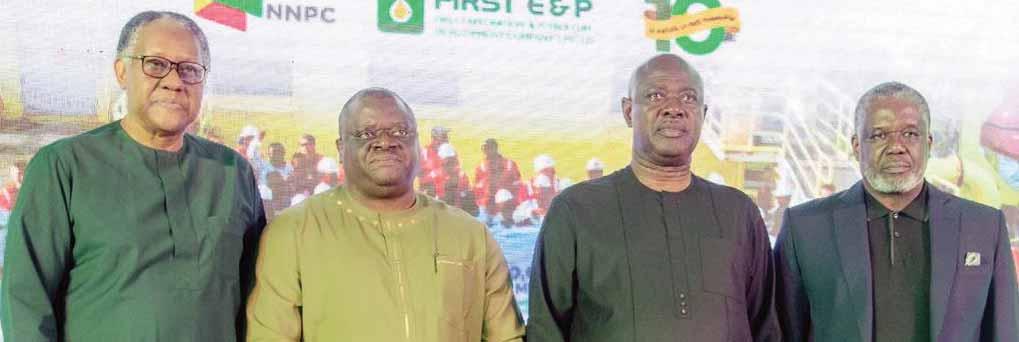
FIRST E&P CELEBRATES 10M MAN-HOURS OF LOST TIME...
L–R: Chairman, Board of Directors, FIRST Exploration and Petroleum Development Company Limited (FIRST E&P), Odein Ajumogobia; Chief Upstream Investment Officer, NNPC Upstream Investment Services (NUIMS), Engr. Oluwaseyi Omotowa; Honourable Minister of State for Petroleum Resources (Oil), Senator Heineken Lokpobiri, Ph.D; and Managing Director/CEO, FIRST E&P, Ademola Adeyemi-Bero, at an event to commemorate the NNPC/FIRST E&P Joint Venture’s achievement of 10 million man-hours of Lost Time Incident (LTI)-free operations in Lagos …recently
MAHMUDJEGA
VIEW FROM THE GALLERY
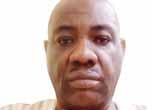
How Did She Recognise Me?
Politicians in Nigeria said several things last week that reminded me of a story told many years ago on a BBC radio program. It said a man who robbed a bank was arrested just outside the bank, with a gun, and with the loot still in his hands. It looked like an open and shut case but when he was charged to court and convicted, he appealed the conviction. His one ground of appeal was that a prosecution witness, a female bank clerk from whom he seized the money, identified him in the dock. The enraged robber said, “How could she identify me? I was wearing a mask when I did the job!”
Minister of the Federal Capital Territory FCT Nyesom Wike, probably the most voluble man of power on the Nigerian political scene right now, said on a Channels TV program last week that he loves money. He was defending his lifestyle, characterized by ownership of a Rolls Royce limousine, the ultimate sign of luxury transport all over the world. Even the US President’s Lincoln Continental, known as “The Beast,” is better known for security than for opulence.
Wike said, “I like money. Nobody can do without money. You cannot say because I said I need money to solve problems, therefore I am corrupt. No. I need money to pay my children’s school fees. I need money for my family’s healthcare. Does that make me corrupt? No.” To begin with, it is not true that nobody can do without money. Monks living in some Buddhist monasteries in Vietnam, Thailand and Cambodia almost never touch money as part of their codes of modesty and chastity. All they own in their lives is the simple cloth they wear and a begging bowl.
If the money one needs is to pay his children’s school fees and his family’s hospital bills, how much money is that, even by today’s Nigerian conditions where private school fees and private hospital bills have sky rocketed? How does that justify driving around in a Rolls Royce or a Mercedes 600? Now, that, is money. Nigerians make excuses for businessmen who live in opulence, but not public officers, who must avoid the appearance of corruption. Even some of the world’s richest businessmen know that modesty is a virtue; Warren Buffet of the great investment firm Berkshire Hathaway has lived in a three-bedroom house in Omaha, Nebraska since 1953 and he drives a very old car.
Actually, modesty, not opulence, is the stuff of greatness. The late Malam Dalhatu Bayero told a story, that when he was Group Managing Director of Nigeria National Petroleum Corporation [NNPC] in the 1990s, he received the President of an international oil firm. As they drove from
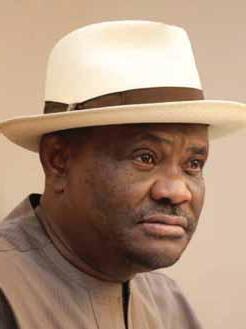
Lagos airport into the city, the American oil man was impressed by the dilapidated danfo buses and other wrecked vehicles sputtering on the streets. He thought it was great stuff; he said to Bayero, “Oh, lovely! Nigerians really love antique vehicles!” The NNPC boss smiled inwardly and thought, “Which antique vehicles? It is because we do not have money.” Will the American oil man, quite likely a billionaire, had been so impressed if he saw Mr. Wike’s Rolls Royce on Lagos streets?
Today, nearly 70 years since his death, Mahatma Mohandas Karamchand Gandhi is renown all over the world, even though he wore the simplest loin cloth and dragged his goat around so that he could drink its milk. When Muammar Gaddafi ruled Libya for 42 years, he lived in a tent in Bab Aziza Barracks outside Tripoli. When US President Ronald Reagan sent planes to bomb him in 1986, they identified Gaddafi’s tent because he had a camel and goats tied nearby because his breakfast was dates, camel and goat milk. It would have been much easier for US Strategic Bomber Command to identify a Rolls Royce in a Port Harcourt garage than a goat in the desert. And, what becomes of the need for leaders to set examples? All around people are complaining of high food prices, high transport fares, unaffordable medical bills and school fees etc. How does it look when leaders ride around in the most luxurious cars, while at the same time urging impoverished citizens to gird their loins, make more sacrifices and wait for the good times to return? Even if
Minister Wike was from a comfortable background as he said, with his father owning one of the few duplex houses in the community, having been a public servant for the last three decades, he ought to worry about public perception. And also not spilling words that injure citizens’ psyche.
And also setting good examples. For example, when former Sokoto State Governor and ADC chieftain Aminu Waziri Tambuwal was asked last week whether he has quit his membership of PDP, he reportedly said, "We're still members of PDP, and we're going nowhere, but we will work for ADC.” Before anyone could say that is absurd, Tambuwal said he is only borrowing a template from Minister Wike, who sits smugly in the APC Federal Cabinet, while his legislative and other supporters in Rivers all defected to APC, but he still claims to be a PDP member and in fact is said to control its top national officials. He recently consolidated his gains by forcing the party’s governors to reinstate his associate, Samuel Anyanwu, as PDP national secretary. Ok, so that is the new template in Nigerian politics, running with the hare and hunting with the hound. In the olden days, such a posture will quickly earn you expulsion from the party on charges of anti-party activity. Two years after his governorship tenure ended, Tambuwal is still the leader of PDP in Sokoto State and none of its members has as yet raised a finger after seeing him prominently at last week’s ADC meeting. It is the Wike template, after all.
The gale of endorsements of “sole candidates” for primary elections that are a year away continued at the weekend when the South South Zonal Congress of APC adopted President Tinubu and four APC governors in the zone as sole candidates in next year’s primaries. The governors of Cross River, Akwa Ibom, Delta and Edo were endorsed as sole candidates, even though Governor Monday Okpebholo hardly needs any endorsement, with more than three years to go in tenure. The zonal congress also urged the remaining non-APC South South governors, of Rivers and Bayelsa, to quickly defect to APC, with the broad hint that they could also benefit from this early endorsement. It is possible that Governor Simi Fubara, who APC and Presidency hold by the jugular, will accept the offer as his tenure insurance policy.
Like the British bank robber who protested at his identification by a bank clerk despite his wearing a mask, these early endorsements also wear a political mask and do not believe their sycophantic motives will be recognized by party members. What are people in politics for, if not to contest for elective offices? It reminds me of an event in 2000 AD, when Zamfara PDP chieftains met at
the Mairuwa Dam resort in nearby Katsina State to deliberate on the upcoming local government elections in their state. Some chieftains advocated a boycott, saying ANPP-controlled state government of Governor Ahmed Sani will rig them. One party elder however stood up. He said, “To a political party and a politician, contesting elections is like five daily prayers to a Muslim. You have no other work higher than that.” When party structures and officials endorse sole candidates ahead of primaries, then what is the use of primaries and what are other aspirants supposed to do?
Early endorsement is a dangerous political gamble. Even some of the greatest politicians in Nigeria once paid a price for early endorsements. Before UPN’s 1983 primaries, party leader Chief Obafemi Awolowo had no challenge as presidential candidate. He however extended the same gesture to the party’s five governors, endorsing them to run for second terms. Overwhelming as Awo was, that decision did not go down well with many aspirants, and it precipitated rebellions especially by deputy governors of Oyo and Ondo States. Maybe no one from within APC will contest against President Tinubu in the party’s primaries next year, but there is real possibility that the same endorsement gesture will soon be extended to APC governors. In some states at least, that will trigger defections to other parties. Besides, if no one contests against President Tinubu in the primaries does not necessarily speak well of internal democracy in APC, because in 2003, overwhelming as President Obasanjo was, some aspirants ran against him at the PDP convention.
And then, at the weekend, Minister of Power Adebayo Adelabu toured Oyo and Ogbomosho areas of Oyo State, declared his intention to run for Governor in 2027 and sought their support. He is probably the first person anywhere in the country to openly declare a governorship ambition so early in the day. Some social media activists quickly said, “No wonder that power supply is epileptic and Band A customers are loudly complaining. The man in charge, instead of visiting Gencos, transmission lines and Discos, he is there campaigning for governor. How will there be light in this situation? Or has he diverted all the power to Oyo State as part of his campaign?” Adelabu has reason to be in a hurry. Governor Makinde is in his final term and must vacate office in 2027. Besides, he belongs to PDP, so an APC man has no scruples in openly coveting his seat at this point. Besides, he will say to those Nigerians who are making allegations against him about the power sector, “How did you recognize me? I was wearing a politician’s mask when I went on those early campaigns.”
